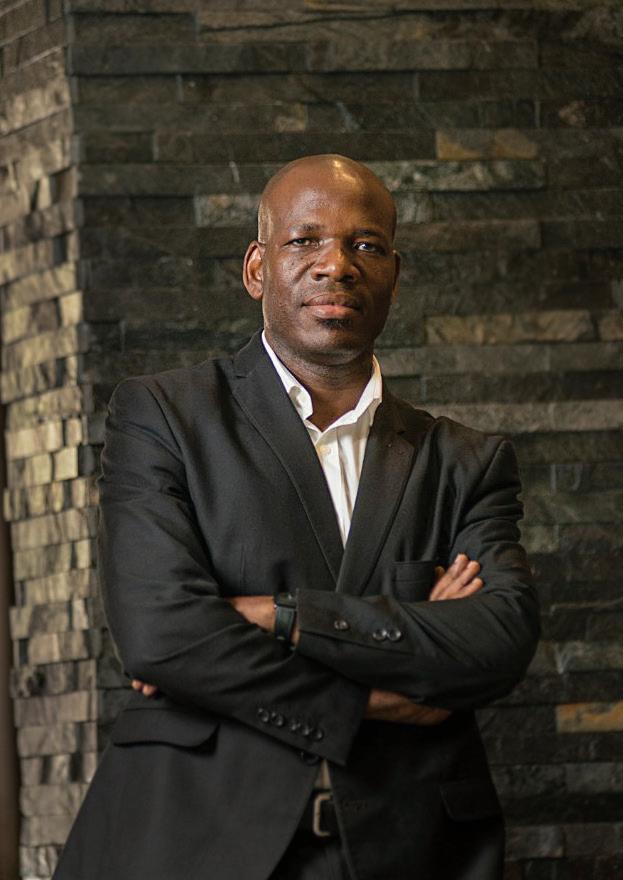





BUSINESS QUARTERLY INSIDE ISSUE 12 RSA R45.00 Africa50 calls for global investments in infrastructure Addressing energy poverty and the case for coal Market research is essential for entrepreneurs Univen Innovative Growth-Connect is bringing fibre connectivity to the Vhembe District Municipality Cryptocurrencies gaining ground —that’s both good news and bad Univen Innovative Growth Company Group CEO, Dr John Mudau

COME HOME TO EXTRAORDINARY LUXURY FAMILY RESIDENCES | STANDS | APARTMENTS
A haven where you and your family will enjoy a lifestyle like no other. Get your adrenaline pumping on the 50km mountain bike trail, jog on the 45km promenade or take an outride on your favourite steed along our bridle paths. Enjoy the crystal waters of the 300m lagoon, take a scenic flight to your weekend getaway from the Ultimate Helistop or play a round of golf on our Nicklaus design championship golf course all nestled in our 2000 acres of indigenous parkland. This piece of paradise has 24/7 security to provide peace of mind while you enjoy all the amenities you could ever wish for.



Book your exclusive viewing at www.steyncity.co.za or email sales@steyncity.co.za and marvel at the ultimate luxurious lifestyle on offer in Gauteng.
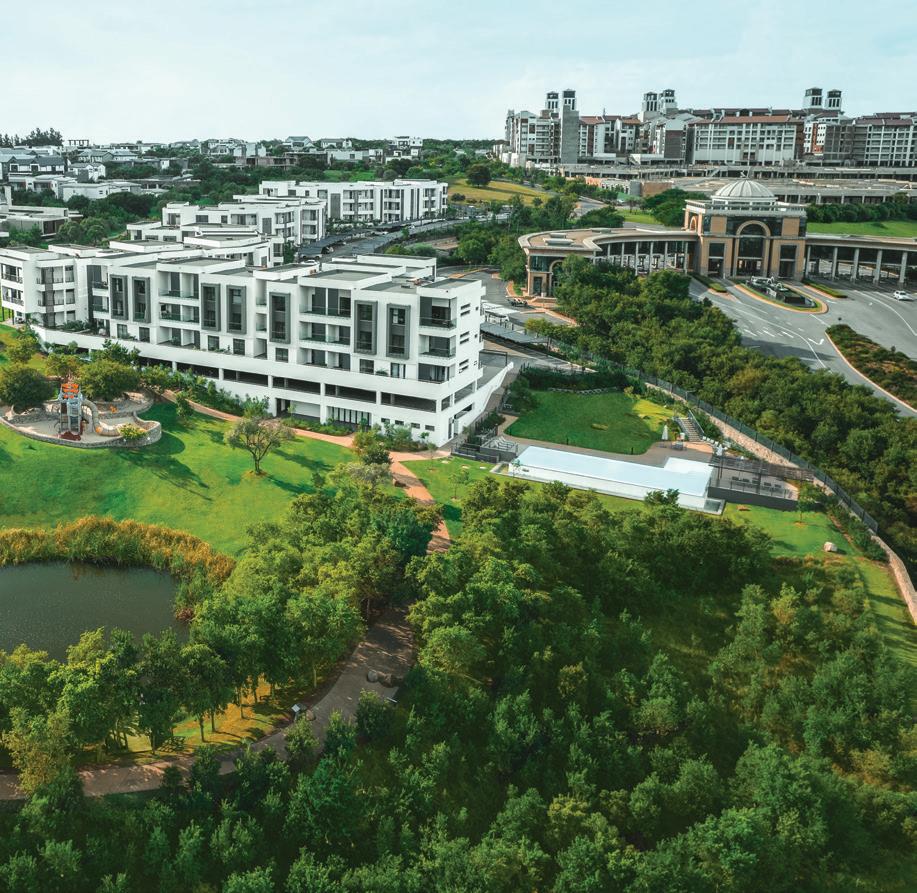
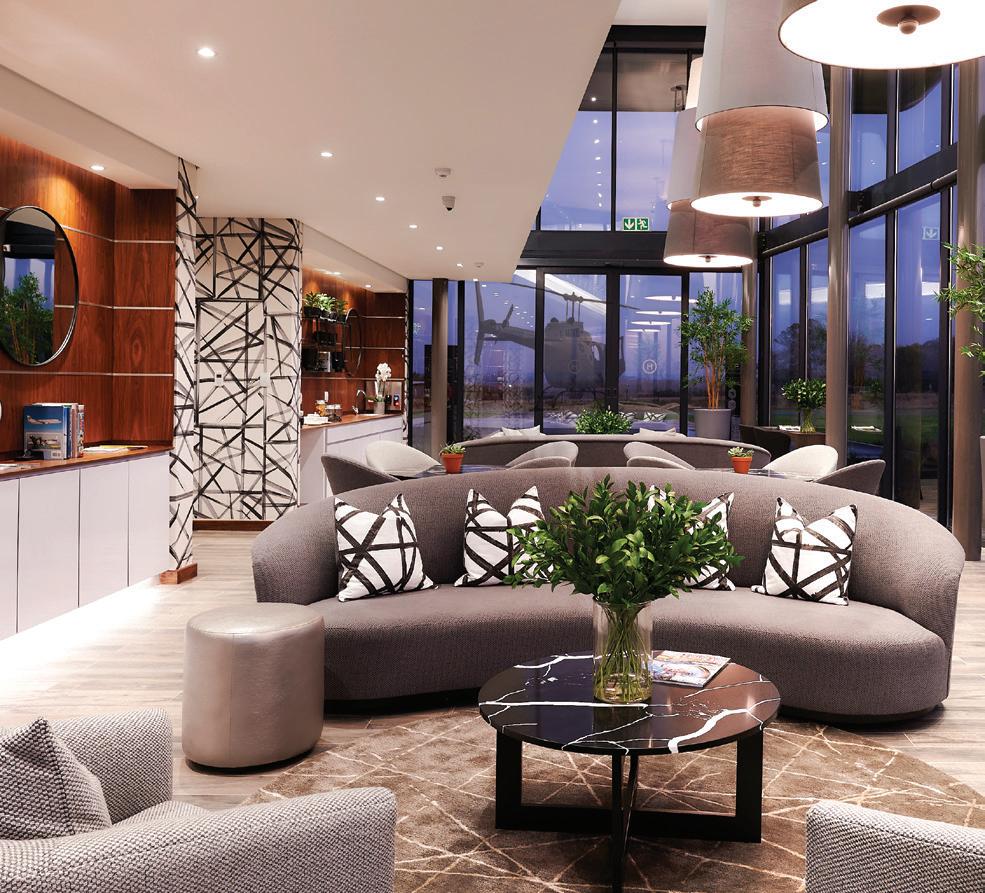

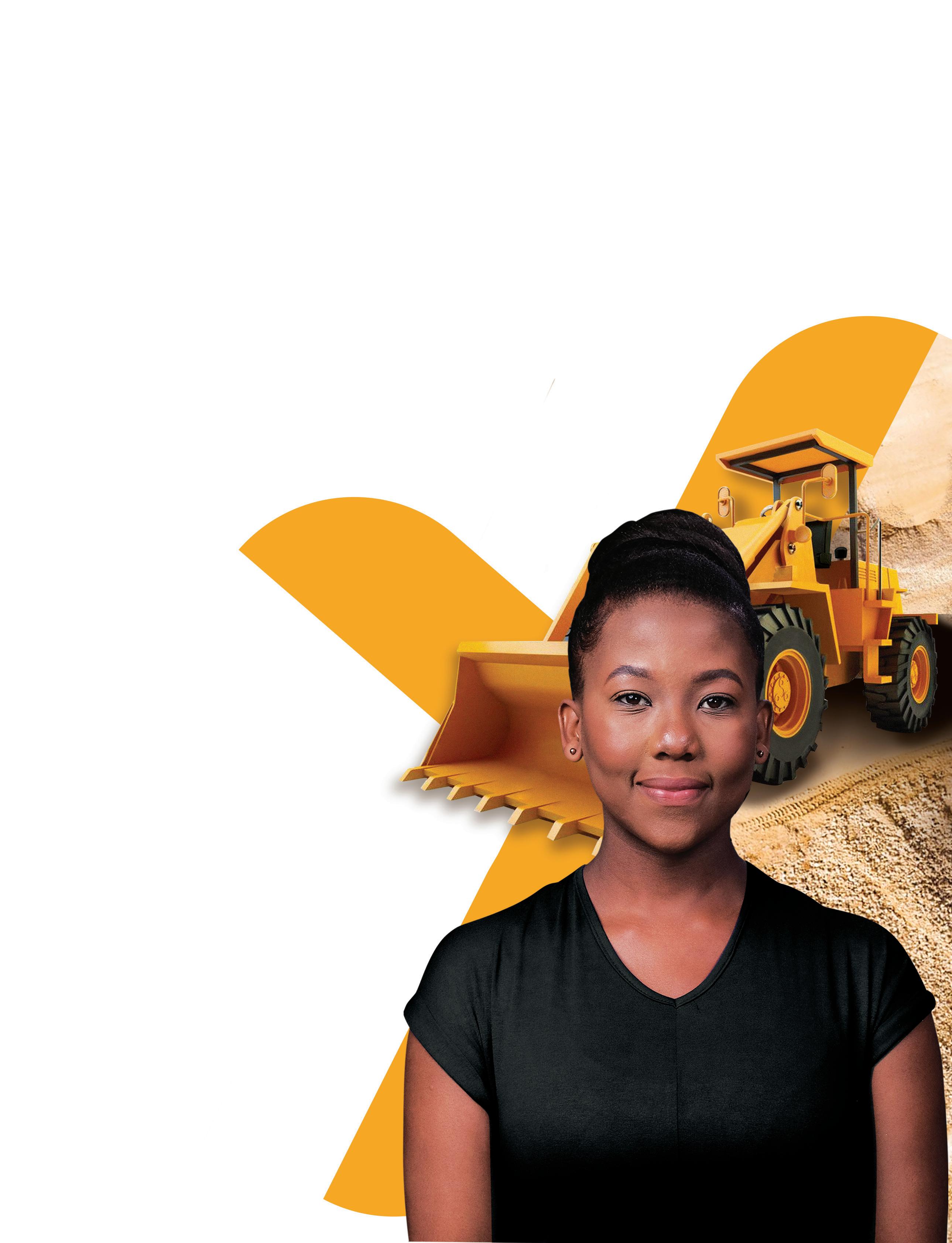
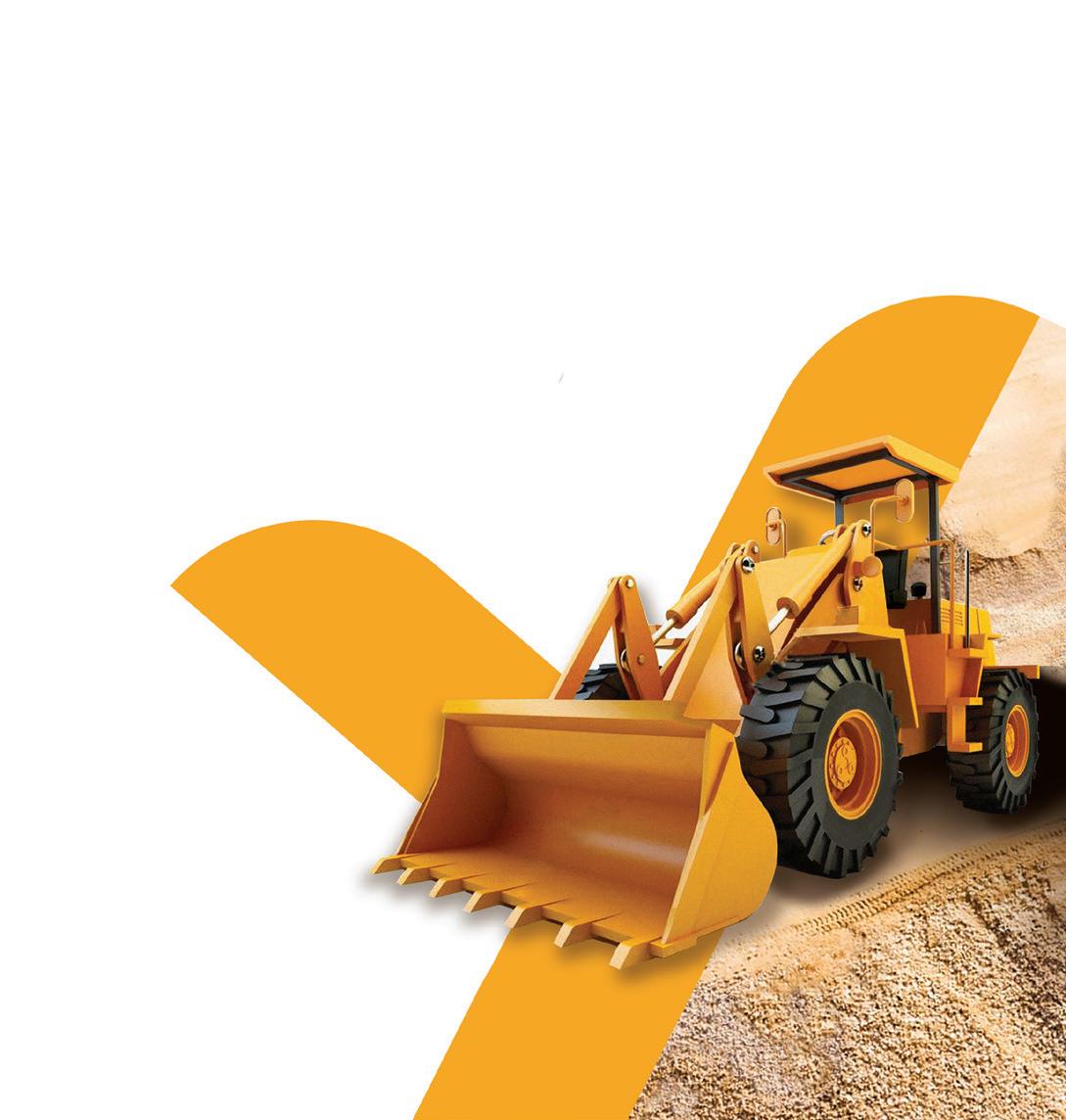
ACCESS TO THE WORLD
The Univen Innovative Growth Company (UIGC) is a group of companies solely owned by the University of Venda in the Limpopo Province of South Africa. Its newest unit, UIGC-Connect, builds, operates and maintains its own Internet infrastructure within the Vhembe District Municipality—bringing fibre connectivity to students and the broader public. We spoke to group CEO, Dr John Mudau.
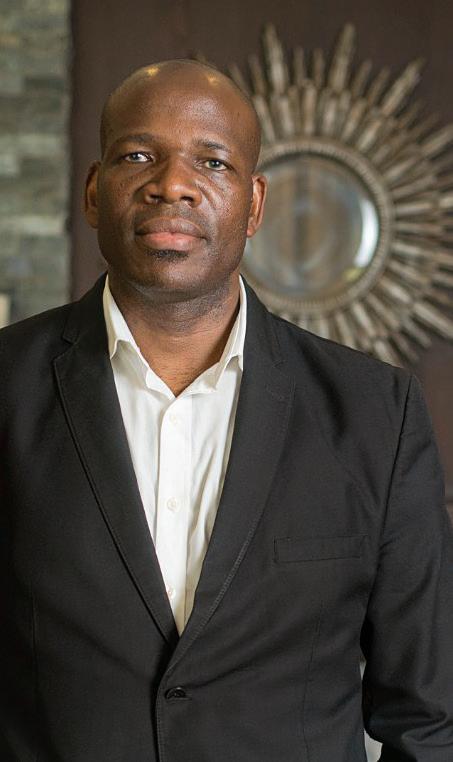
POWER PLAN
NEEDS
VISION OF A NEW ERA
The

DIGGING A HOLE FOR ITSELF
Artisanal gold mining in South Africa is out of control—mistakes that got it here

MAKE THE RIGHT MOVES
MEET UP
FOSTER A CULTURE OF LEARNING
Innovative approaches that will allow companies to not just curate the right skills but grow employees as well

ON THE COVER CONTENTS ISSUE 12
12 08
10
34 42 22 BLACK COULD
GREEN
energy poverty and the case for coal in Africa 26
FROM THE EDITOR Keep moving forward
EVENTS:
Rub shoulders and conduct business with the high-flyers in African business at these upcoming events
BE
Addressing
30
President Cyril Ramaphosa acts to ease South Africa’s energy crisis: impact will be felt in renewables
34
PRESSING
Senegal and Mauritania must capitalise on their vast natural gas resources as quickly as possible
38
East African Crude Oil Pipeline will help make energy poverty history in Africa by 2030
42
South Africa’s reform process is crucial to improving supply chain performance 46
4 AFRICAN Business Quarterly • Issue 12
ALL ABOUT THE NUMBERS
ETax & Financial Services is a boutique firm that provides tax and accounting services to individuals and companies. It aims to help individuals and business owners make sound financial decisions as well as help them maintain their cash flow, management accounts, budgeting and tax affairs while remaining compliant to the statutory bodies i.e. the South African Revenue Service and the Companies and Intellectual Property Commission.
The company is equipped with highly knowledgeable and qualified tax and accounting professionals who provide only the best quality services. The woman who leads this adept team is founder and executive director, Elona Kukulela. We spoke to her about the establishment of the company and its work.
Born and bred in the Eastern Cape, but residing now in Gauteng, Kukulela is registered with the South African Institute of Taxation (SAIT) as a general tax practitioner, and with the Chartered Institute for Business Accountants (formerly SAIBA) as a business accountant.

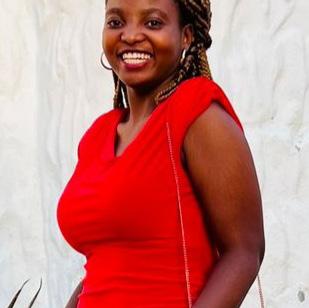
ETax & Financial Services is based in Gauteng, but operates in all parts of the country and internationally; it also operates virtually. Kukulela notes that the company specialises in all tax types (local and international) including tax registrations, payment arrangements and tax disputes, tax structuring and planning, and submission of tax returns, among others. Accounting services include, but are not limited to, annual financial statements, bookkeeping, payroll & UIF, financial forecasts and budgeting. She describes herself as an entrepreneur who always encourages a culture of smart working—and she has excellent skills in working with numbers. It is these skills, together with her in-depth knowledge of tax and the law, which led her to establishing ETax & Financial Services. “I am smart and add value to every task that I do, so I felt the need to specialise my services under this company and ensure tax compliance for corporate and individual clients,” she says.

Founding and building up her company has been a learning journey—intellectually, personally and as an entrepreneur. “It has become very exciting for me, and pushes me to do my best at all times.”
Kukulela believes ETax & Financial Services stands apart from its competitors due to its expertise and acting in the best interest of its clients when dealing with tax affairs. “We pride ourselves on our ethics and standards, equipped by the SAIT and the Chartered Institute for Business Accountants.
In this way, our clients are able to rely on us in helping them pay only what they are required to pay, while ensuring they can claim or are refunded the legally appropriate (tax) refunds,” she explains, adding that her company “provides accounting and taxation services that can withstand any types of audits required by law.”
Furthermore, ETax & Financial Services always uses effective and efficient communication channels that are userfriendly to clients. It has become known for its specialised services that assist individuals and businesses stay compliant with tax authorities.
Kukulela is proud of the fact that her company has “grown drastically and is still continuing to grow, and has expanded globally”. But she has more planned for the future, such as providing more specialised tax and accounting services to international clients; remaining cost-effective while ensuring a greater number of companies and individuals do not shy away from being tax-complaint; and adding value to clients’ day-to-day corporate operations and their accounting systems so that they can fully focus on the development of their business.
One can only expect great things from a tax & accounting professional who was born on 28 February—the date of the individual’s tax financial year-end...
Elona Kukulela is leading from the front to provide the very best in tax and accounting services to individuals and businesses
073 742 5047 | contact@etaxandfinance.co.za | www.etaxandfinance.co.za Issue 12 • AFRICAN Business Quarterly 5 ADVERTORIAL
DIGITAL DILEMMA


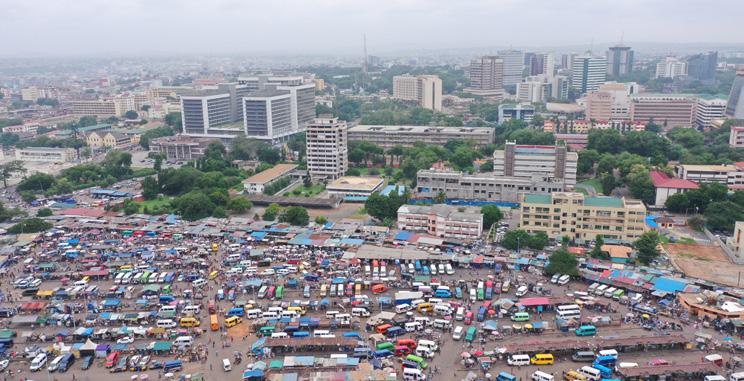
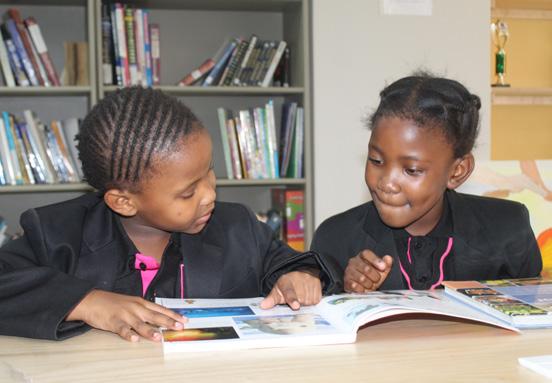
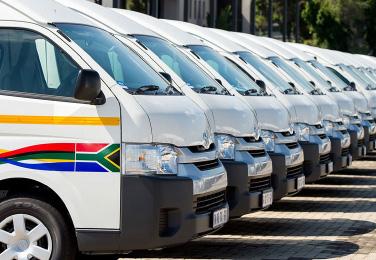
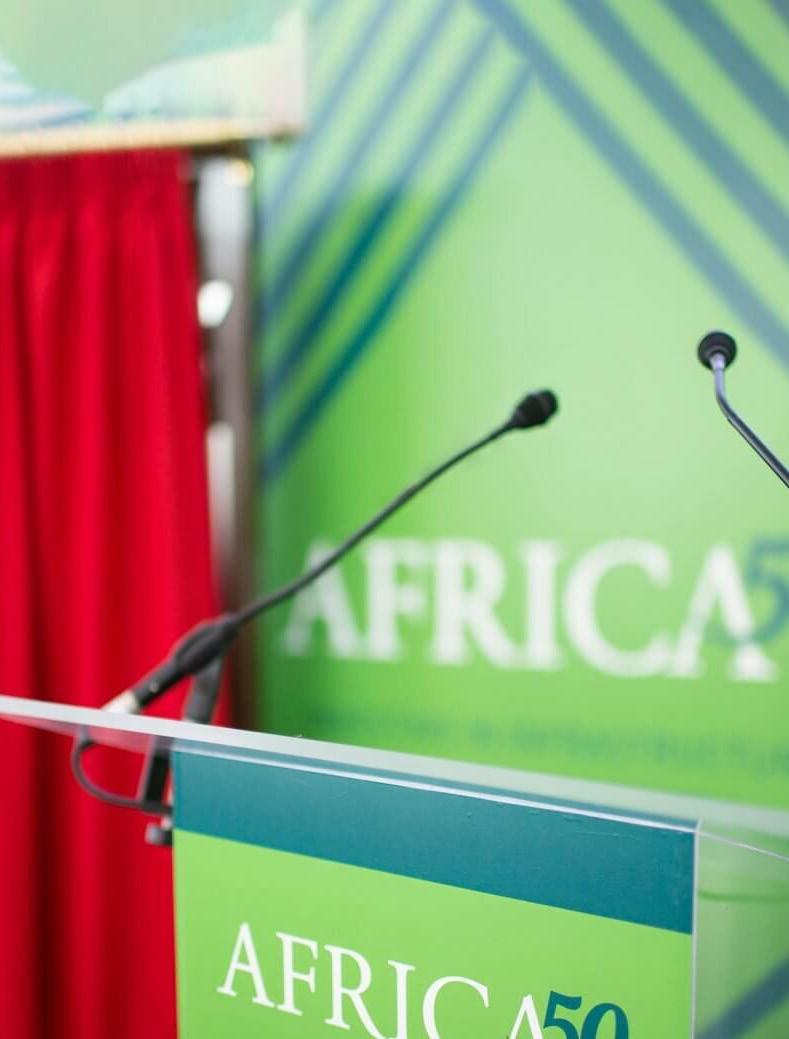
CONTENTS 58 66 74 54 50 62 50 IN A NEW DIRECTION The first electric minibus taxi is coming to South Africa—with the aim of accelerating green mobility adoption 54 RISING ABOVE CIRCUMSTANCES Decade-long partnership achieves massive successes in rural education development 58
RETURNS Africa50 calls for global investments in African infrastructure, as there is still much to do to meet the continent’s needs 62 DEPTH OF DEBT Ghana’s return to the International Monetary Fund within three years underscores its deeper economic problems 66
Cryptocurrencies are gaining ground across Africa—that’s both good news and bad 70 HIT YOUR TARGET Market research is essential for entrepreneurs who want their businesses to succeed 74 TESTING ITS METAL Nigeria has not been able to produce steel: remanufacturing could be the solution 78
South Africa must reinvigorate sorghum as a key food before it is lost 84
Greater investments are needed to unlock the power of the digital economy 6 AFRICAN Business Quarterly • Issue 12
HUGE OPPORTUNITIES, HUGE
AMAZING TING
THE INNOVATORS ARE WAITING





WE LOVE RELIABLE VALUES. JUST LIKE OUR RADAR LEVEL SENSOR. THE 6X ®. OUT NOW! For over 60 years we have only had one thing in mind: making measured values ever more precise. But we also never lost sight of the need for human values, too. By combining these it makes a remarkable radar level sensor possible. The best value there is: VEGAPULS 6X. VEGA. HOME OF VALUES. www.vega.com/radar
As the year winds down, I’d like to welcome you to African Business Quarterly 12, our final edition of 2022. That being said, the work doesn’t stop, as we’re already hard at work on edition 13 slated for the end of January 2023.
It’s been a tough year, with many industries still striving to overcome the ravages of the COVID-19 pandemic. We’ve been there, too. It’s with this in mind that I’d like to thank all our advertisers for their support throughout the year. It hasn’t been easy for anyone financially, so we appreciate that you would trust us with your ad spend.
What the new year holds we can only speculate, but I think we can safely say it’s going to be a long road filled with potholes, and bumps and bruises.
However, what fills me with confidence that we’ll come out the other side is the interviews with businesspeople I’ve done this year. Sitting face to face or via virtual platform with numerous CEOs and MDs, listening to them speak with such passion and conviction about their future projects, gives me hope.
It’s easy to become despondent when you’re constantly being pummelled by body blows. I suppose Sylvester Stallone said it best in Rocky Balboa when he told his son: “It ain’t about how hard you hit, it’s about how hard you can get hit —and keep moving forward.”
Enjoy the read, stay safe, and may you have a blessed festive season with your family and friends.
Ashley van Schalkwyk
ADDRESS:

Donovan Abrahams Ashley van Schalkwyk ashley@avengmedia.co.za

Tania Griffin tania@avengmedia.co.za
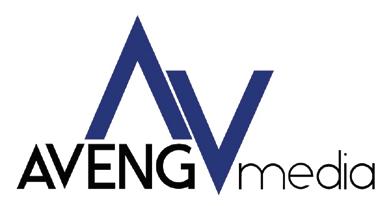
Christine Siljeur
African Energy Chamber NJ Ayuk, Dr Andrew de Vries Mariska Burger African Development Bank Datatec, CIPS TheConversation.com
Adobe Stock, Flickr
Donovan Abrahams Cheryl Pinter Viwe Ncapai Lunga Ziwele Melinda Schoeman Charlton Peters

Benita Abrahams Bianca Alfos
Majdah Rogers
Majdah Rogers, Ashley van Schalkwyk Colin Samuels Print on Demand www.abizq.co.za
Donovan Abrahams Colin Samuels
8 AFRICAN Business Quarterly • Issue 12
TEAM BUSINESS QUARTERLY
THE
EDITOR’S NOTE
Boland Bank Building, 5th Floor, 18 Lower Burg Street, Cape Town, 8000 Tel: 021 418 3090 | Fax: 021 418 3064 Email: majdah@avengmedia.co.za Website: www.abizq.co.za
DISCLAIMER: © 2022 African Business Quarterly magazine is published by Aveng Media (Pty) Ltd. The Publisher and Editor are not responsible for any unsolicited material. All information correct at time of going to print.
PUBLISHER MANAGING EDITOR COPY EDITOR DESIGN EDITORIAL SOURCES PHOTOGRAPHIC SOURCES PROJECT MANAGER ADVERTISING SALES ACCOUNTS CLIENT LIAISON ONLINE CO-ORDINATORS HR MANAGER PRINTER DISTRIBUTION DIRECTORS PUBLISHED BY
KEEP MOVING FORWARD
Aveng Media
Enabling transformation of the economy
The Assurance Verification Agency does important work in promoting South Africa’s B-BBEE strategy, enabling black people to own companies and hold management positions.
Company history
Assurance Verification Agency (AVA) is a 100% black-youth-owned-by-women company and Level 1 B-BBEE contributor. AVA was established with the main objective facilitating economic empowerment in South Africa through BBEE legislation transformation.
As she recalls, “I wanted to assist in reducing youth unemployment by employing more youth and teaching them skills so they could own their own companies.” The competitive market when the firm started out in 2011 proved challenging, but support came from family, friends and associates and slowly the company grew and achieved brand recognition.
Today, some of AVA’s clients are JSE-listed companies.
Busie outlines the qualities that have served her well in building AVA as a business: “I was willing to make mistakes and learn from them. The most vital thing is to have you main objective and your own 'why' for doing something.”
Services
AVA facilitates transformation by assessing, verifying and validating the B-BBEE contributions that are made by entities in supporting the B-BBEE strategy.
Among the services that AVA offers are:
• Issuing of B-BBEE certificates to audited EMEs, QSEs and large entities upon completion of the verification process which assesses compliance on black ownership of the company, management control, skills development, enterprise and supplier development and socioeconomic development.
Managing Director
Being forced to take two “gap” years while studying because of a shortage of funds did not hold Busie Yekwayo back.
Instead, she used the experience as inspiration when her parents gave her the opportunity to study again.
She now advises and assists young people to avoid what she went through.
Busie holds an Accountant designation (Professional Accountant), Economic Empowerment Professional, MBA and is a member of the Institute of Internal Auditors South Africa. She is also a director of the accounting firm, Emiyoli Consultants.

• Verifying enterprise and supplier development contributions, complex ownership structures, including JSE-listed companies, and issuing B-BBEE reports.
• Issuing of Joint Ventures B-BBEE certificates.
• Training of individuals and companies.
• Ownership Analysis.
Email: Info@assuranceva.co.za
Tel: 031 942 6604
Cell: 071 493 9423
Website: https://assuranceva.co.za
Your efficient and accurate partner.
CONTACT INFORMATION
Your efficient and accurate partner.
Meet up
EVENTS
OCTOBER — DECEMBER 2022
Rub shoulders and conduct business with the high-flyers in African business
MWC AFRICA 2022
25 to 27 October
Kigali Convention Centre, Rwanda www.mwc-africa.com
MWC Africa 2022 will showcase the cutting-edge trends in connectivity and mobile innovation.
This is where the entire ecosystem meets face-to-face to build strong relationships, to explore the latest technology as well as learn from the thought leaders who guide the industry forward. MWC Africa is co-located with Shared Value Initiative Africa and Smart Africa—three powerhouse events in one.

DIGIMARCON SOUTH AFRICA 2022
2 & 3 November
Hyatt Regency Johannesburg Hotel, South Africa digimarconsouthafrica.co.za
Join your peers in-person or online for two days jam-packed with digital marketing best practices, latest trends, practical solutions, strategy and networking. Also check out the next generation of technology and innovation: Internet, Mobile, AdTech, MarTech & SaaS Technology. Discover how to thrive and succeed as a marketer in a rapidly evolving digital world.
AFRICA EARLY-STAGE INVESTOR SUMMIT
2 to 4 November Hybrid event
vc4a.com/aesis/africa-earlystage-investor-summit-2022

The ninth edition of this event will be held online and complemented by in-person Investor Meetups hosted in cities around the world. Join the event to meet and connect with the leaders from the Africa startup, innovation and investment industry, the latest trends, insights and industry research, workshops and masterclasses for both aspiring and practising investors by investors, exclusive virtual networking and co-investment opportunities, and an opportunity to nominate startups in your portfolio to attend this event.
AFRICA TECH FESTIVAL
7 to 11 November
Cape Town International Convention Centre, South Africa tmt.knect365.com/africatech-festival
Africa Tech Festival is the new name for a week of world-class tech events including AfricaCom, AfricaTech, the AHUB, the AFest and the AfricaCom Awards—uniting business and technology to create a better, more inclusive digital world. Everybody who is anybody in African tech will be there, giving a 360-degree view of technology transformation.
AFRICAN AGRI INVESTMENT INDABA

14 to 16 November
Cape Town International Convention Centre, South Africa www.agri-indaba.com
The African Agri Investment Indaba is the global meeting place for agrifood investment in Africa. Bringing together over 1 100 key stakeholders— from governments, banks, financiers, investors, project owners, project developers, commercial farmers, and the agro and food processing industry—to discuss trends that will likely influence food and agribusiness economics over the next decade in Africa.
OFFSHORE TECHNOLOGY AFRICA
30 November to 2 December
The Westin Cape Town, South Africa
offshoretechnologyafrica.com
With 18 950 miles of coastline, shared by 38 countries, newly discovered offshore gas reserves, extensive offshore wind potential, technological advancements in tidal power, ocean current power, OTEC, and marine floating PV—Africa’s offshore energy potential is perhaps the most underdeveloped resource across the continent. This event will enable governments, financiers, developers, solution and technology providers to come together to expedite the unlocking of Africa’s vast and transformative offshore energy potential.
10 AFRICAN Business Quarterly • Issue 12
THEM SMILING
SMILING
For over 85 years, St Joseph’s Home has given thousands of medically fragile children a second chance at childhood. We provide much-needed post-acute, chronic, palliative and respite care to children with life-threatening illnesses. Want to know how you can support? Visit our website and follow us on social media!
For over 85 years, St Joseph’s Home has given thousands of medically fragile children a second chance at childhood. We provide much-needed post-acute, chronic, palliative and respite care to children with life-threatening illnesses. Want to know how you can support? Visit our website and follow us on social media!
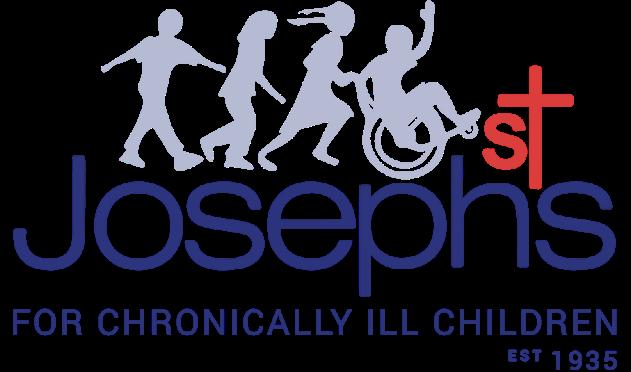
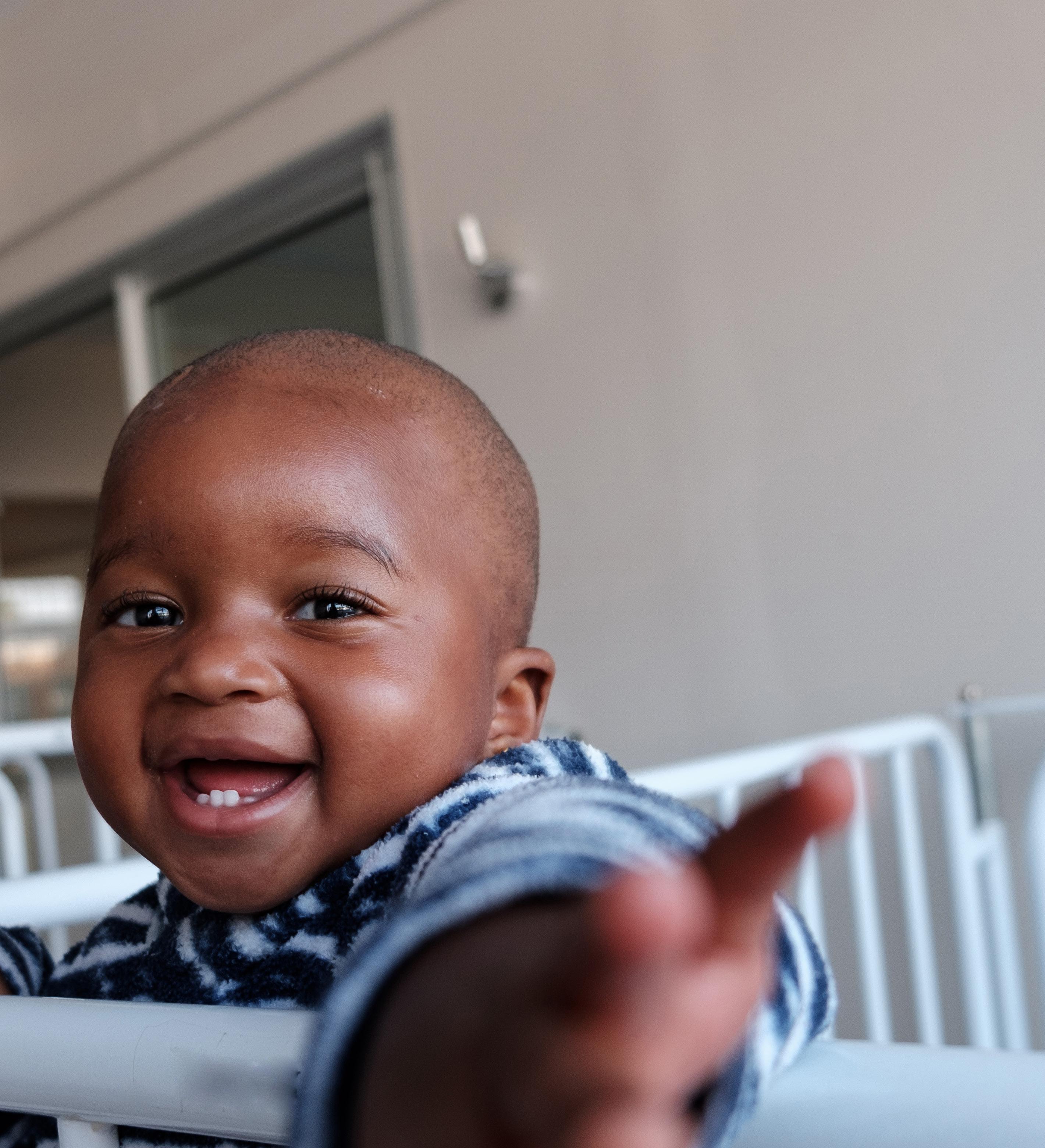

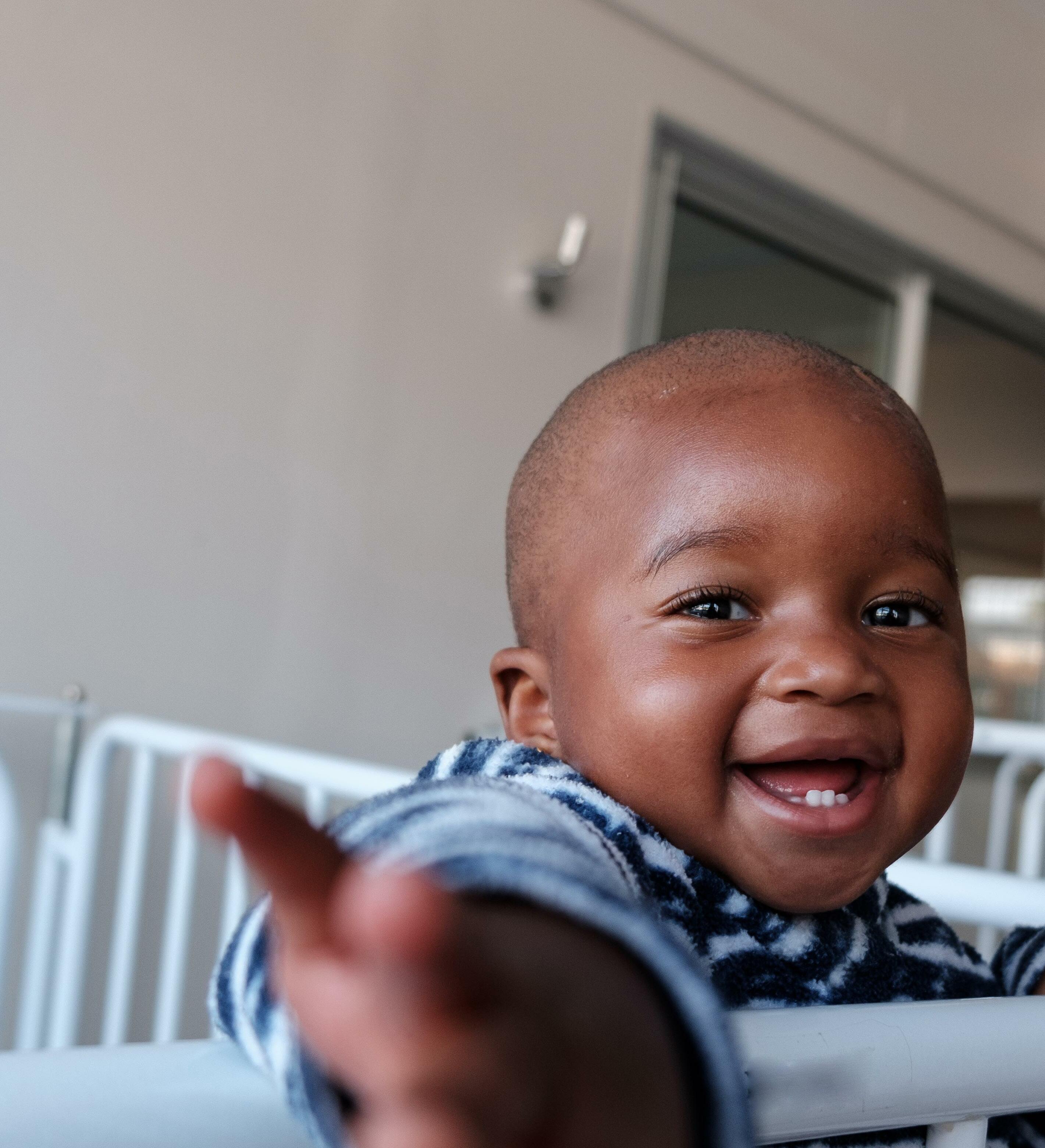

Here’s
DONATE
Follow us on social media! • @stjosephshome • @stjosephshomeofficial • @st_josephshome
KEEP
Visit www.stjosephshome.org.za/donate Sign-up for our quarterly mailer, scan the QR code to the left.
how you can help:
scan to donate with
DONATE
Follow us on social media! • @stjosephshome • @stjosephshomeofficial • @st_josephshome
KEEP THEM
Visit www.stjosephshome.org.za/donate Sign-up for our quarterly mailer, scan the QR code to the left. Here’s how you can help:
scan to donate with



COVER PROFILE 12 AFRICAN Business Quarterly • Issue 12
THE WORLD ACCESS TO
The Univen Innovative Growth Company (UIGC) is a group of companies solely owned by the University of Venda in the Limpopo Province of South Africa. It has a robust database of professional consultants and trainers within different business units that are responsible for the management and administration of various services. The newest unit, UIGC-Connect, was launched in February 2022. We spoke to Dr John Mudau, group CEO of UIGC, about this one-of-a-kind project.
strategic direction’
It is the aim of the UIGC-Connect project to benefit the university’s students as well as the surrounding communities. In his speech at the launch of UIGC-Connect, the university’s vice-chancellor and principal, Dr Bernard
Nthambeleni, said: “We took a deliberate strategic direction of being an impactful and resourceful university to communities around us... We have mandated our company, UIGC, to position itself in manners that do not pose competition to the local communities but rather provide both a business-enabling and supporting environment.”
Dr Mudau explains, “We are an Internet service provider operating as UIGC-Connect. We build, operate and maintain our own Internet infrastructure within the Vhembe District Municipality [with its headquarters in Thohoyandou].” The university wants to ensure its students, particularly those who are in private residences, have a stable Internet connectivity. UIGC-Connect will operate in phases, he says: Phase 1 will benefit almost 65 accredited private student accommodations (servicing more than 6 000 students), while phase 2 will cater for the general public.
“We have made provision for fibre for about 10 000 homes [homes passed], in partnership with Vumatel,” says Dr Mudau. “Our target is to connect about 40 000 homes in Thulamela— with the possibility of connecting more than 20 000 homes before the end of this year.”
The build infrastructure is the only delay, says Dr Mudau. “We decided in August to double up on the build, so we’re going to connect homes as we build. We are not going to wait till we finish the building of the infrastructure to connect. We started connecting the 4 000 in September and we’re ensuring we move the pace quicker so that in the next 12 to 18 months we’ll have connected 14 000 homes. We are increasing the teams to go out there and install into homes. We are sitting with a team of 70 people, and we want to double that to 140 people. Just so that every team of three must connect three homes per day.”
Two licences granted by ICASA allow UIGC to build network infrastructure and provide data to the public. UIGC-Connect will provide public Wi-Fi first throughout the Thulamela Local Municipality and, ultimately, the entire Vhembe District Municipality.
He adds, “In order for homes to be connected, you must have fibre. Which wasn’t even a thought in people’s minds back in the day. People thought that to have fibre was only a privilege for those in the cities.”
Issue 12 • AFRICAN Business Quarterly 13 COVER PROFILE
‘Deliberate
“ People thought that to have fibre was only a privilege for those in the cities.”
UIGC-Connect is bringing fibre connectivity to the Vhembe District Municipality
Apart from the homes passed connectivity, UIGC-Connect will also be providing fibre connectivity to businesses, focusing primarily on shopping malls in the district—starting with those situated in the Thulamela Local Municipality.
At the launch of UIGC-Connect, Dr Nthambeleni mentioned that “we also seek to transform our university into an Entrepreneurial University.” To this end, another UIGC unit, the Univen Centre for Continuing Education, is going to assist UIGC-Connect in providing training for learners who want skills in the fibre-optics business. “These are skills toward ensuring learners in the area have a full understanding of what it takes to provide fibre businesses. We want technicians whom we are going to train ourselves,” says Dr Mudau.
Getting everyone connected
This is indeed a huge endeavour, but it has the worthy aim of providing the district with reliable, stable Internet connectivity in order to build smart cities.
Dr Mudau was born and bred in Venda, but he has had the opportunity to work elsewhere in South Africa, and study and travel in other parts of the world. “It is important that with all the experience of being abroad, and working all over South Africa, that I bring back to this community the things I saw abroad and in the cities which could work here as well,” he says. “Back in the day, a cellphone was the privilege of a few. Now everybody has it, which is what inspired me to make sure cellphones have a platform where they properly connect.”
It is especially important to get the rural communities connected. “We now know that in the rural areas, and Venda in particular, we have high density in terms of usage of the network,” says Dr Mudau. “If you go to the network providers, they will tell you that access to a network, access to a cellphone, for example, is highest in the rural areas. People in the rural areas have on average access to no less than two handsets, and they have several SIM cards. The problem is connectivity.
“What we are saying is, when you’re walking through our malls here in Thohoyandou, you should be able to browse the network, the Internet, using our connectivity. When you are 10 kilometres away from Thohoyandou, you should be able to browse using your cellphone handset. Gone are the days when access to the Internet was limited to the cities. It doesn’t matter how far you are from the CBDs of major towns, you will still get access to UIGC-Connect, and we’ll sell data to you so you’ll have access to the Internet.”
He adds that UIGC-Connect will also be putting up access points in all tribal councils within the district’s Traditional Authority, so that the traditional leadership/ chiefs will have Internet connectivity as well.
Partnering in the project

The Vhembe District Municipality and its local municipalities have been central to this ambitious project, says Dr Mudau. Thulamela Local Municipality was the first with which UIGC-Connect got involved. It ensured UIGC-Connect obtained wayleaves: permission from local municipalities to trench along roads or access other public infrastructure in order to provide fibre connectivity to homes and businesses, as well as set up microwave links to all the residences around the university.
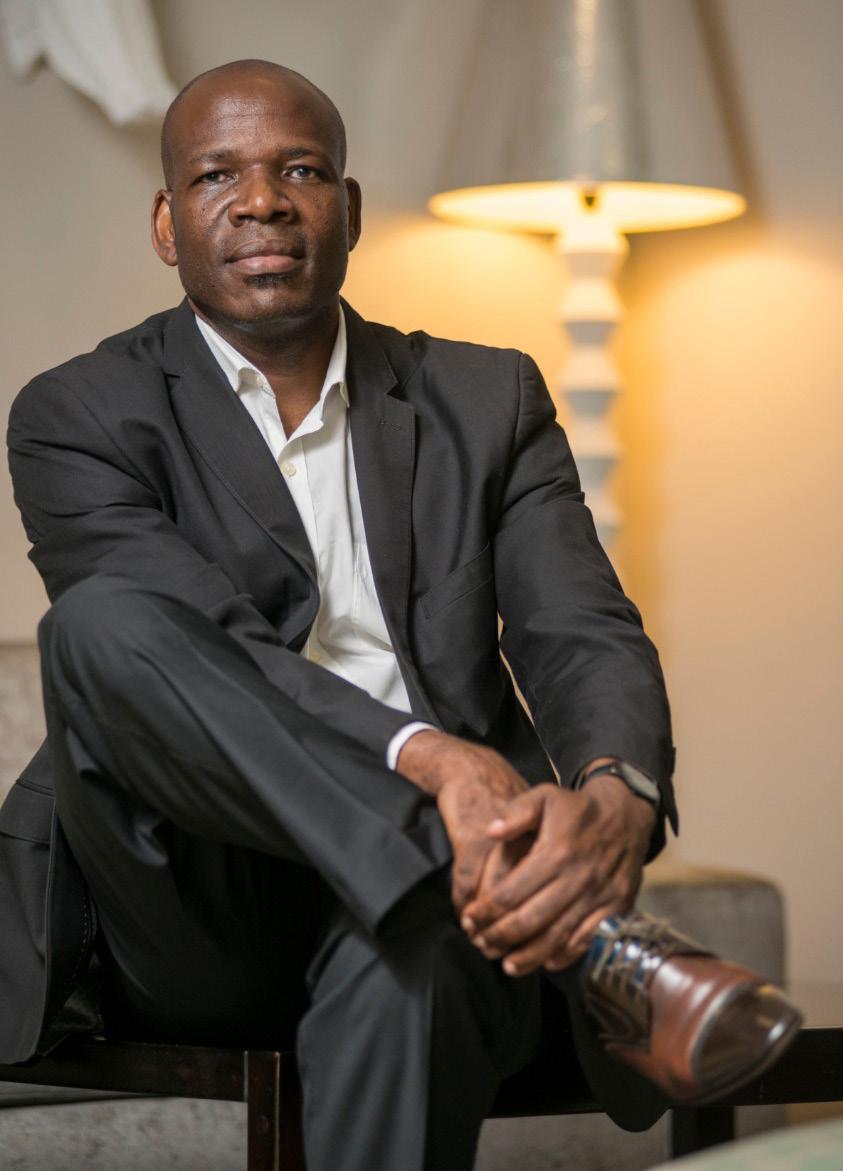
“For us, what is important is that we look at this project as a symbol of hope for the people of Vhembe District and the province in general.”
COVER PROFILE
14 AFRICAN Business Quarterly • Issue 12
“The municipalities are also responsible for community liaison—and they are doing it very well,” says Dr Mudau. “They are the ones that speak to the communities on our behalf. They inform the communities where the fibre is going to pass, where our microwave links are going to pass.”
Such a large project no doubt requires much financial assistance. Dr Mudau indicates that the Wi-Fi costs are taken care of by the university, for each residence that has connectivity. Going forward, the landlords of the residences will be responsible for these costs (this is still being negotiated). Other costs are taken care of by UIGC-Connect’s partners: Vumatel is responsible for the entire laying out of the fibre, while One Serve Group provides the Wi-Fi infrastructure.
Equal access
Thus far, the project has been welcomed wholeheartedly by all stakeholders, says Dr Mudau. The steering committee—comprising university departments and residence landlords—has been dealing with any issues affecting the project. The students living in the residences, which are about one kilometre from the university, are happy that they now have the same connectivity as those students housed on campus. And homeowners are excitedly requesting the fibre Internet to be installed in their homes.
“For us, what is important is that we look at this project as a symbol of hope for the people of the province. To be able to live in a place where connectivity will no longer be the privilege of those who are at historically white universities. That even when you study at the University of Venda, you can get equal access like anybody else studying at any other historically advantaged university.”
Students may, of course, take advantage of the free Internet. Dr Mudau stresses that there is a policy in place that governs students’ usage. “We do monitor that they don’t go into sites that are not necessary for their academic work. There are certain sites that they are not allowed to visit. We have throttled their access. Even if you are throttled in the areas where you have access, you can download videos that are education-related. We give you 10Mb uploads and 10Mb downloads, which is a very high speed for every student.”
Challenges and targets

There are many other challenges in the information & communications technology (ICT) industry, says Dr Mudau, the biggest being the fast-changing nature of technology. It affects not only the work of UIGC-Connect but the industry as a whole. “We need to be ahead of everybody else, and that is a tall order. We want to make sure we are not left behind.”
He reveals that UIGC-Connect has requested meetings with their partners from both the technology and connectivity side to discuss the best Internet service providers, as there are always new ones coming into the market. “The battle for access to the markets is very, very high and the only way we can deal with that, from our point of view, is to provide the most reliable service to our communities. People should come to us not because of our proximity but also because of the efficiency and the success of the service we provide to them. That is the only way you can deliver and beat the challenge and opponents out there.”
Once UIGC-Connect has reached its targets in Vhembe District Municipality, it aims to accomplish the same in other areas around the country. This will be facilitated by Vumatel, which works nationally. Dr Mudau reveals, “We are already sitting with wayleaves from a municipality in the Karoo, very far from us in the Western Cape. That municipality has given us permission in writing to say that as soon as we are done here with Vhembe, they want us in the area as soon as possible. From there we are going into the Northern Cape.
those particular areas. The pressure is on us to go and deliver.”
At the helm
It has been a long walk for Dr Mudau as group CEO of UIGC. “When you transcend from academia to administration, it requires a mind shift—you are no longer a researcher, you are an administrator. When you get into administration, it’s a new paradigm altogether. You are dealing with human beings,” he says. “All my life I have been in the development space. My creativity comes in wherever I have to deal with people, where I have to deal with how to make people’s lives better. That’s where you will find me.”
His greatest achievement at the company thus far? “To have grown the company from three staff members to more than 500. To have created so many sustainable, reliable, permanent jobs. For me, that is the biggest highlight, particularly looking at where we are as a country,” he states proudly. The challenge now is to ensure those jobs are sustainable.
He hopes to wake up one day and see that Thulamela is home to one or two smart cities, and that access to the Internet has increased to 60% to 80% of the Limpopo population. “That will be the greatest achievement going forward.”



Dr John Mudau john.mudau@univen.ac.za | 015 962 8000
Ms Khathutshelo Ligege (PA to CEO) khathutshelo.ligege@univen.ac.za | 015 962 8761 www.univen.ac.za/uigc

COVER PROFILE
Issue 12 • AFRICAN Business Quarterly 15
NEXT GENERATION Integrated Security Solutions

In managing uncertainty, threats, and disruptions, Insight is dedicated to providing our diverse client base access to the most sophisticated and comprehensive risk advisory solutions and security service innovations available.



We have an unrivalled understanding of the dynamic, ever-evolving, and context-specific risks faced in African countries. Our experts are unified in the goal of helping our clients navigate the risk environment and mitigate the hazards they face.
For more information on Secutel products
Please Visit our website: www.secutel.co.za


 Certified Partner of
Certified Partner of
Changing the way security is done in Africa
Security Workforce Tracking and Management
SecuTraq takes the familiar components of a guard tour & patrol management system such as: checkpoints, reports, and incident managementand leverages technology to provide an easy-to-use, completely integrated guard management platform.

Biometric Access Control using Mobile as keys Mobile access credentials are a secure way for authorised key holders to access a specific location. The registered mobile - enabled employees can enter a specific physical location with a few clicks on their phones. This offers a more convenient experience for both workers and administrators.
Our


Intrusion Detection with Visual Verification



With a 100% success rate to-date, our Visual product suite proved itself as a leader in the field of intrusion detection technology. Let us help you to empower your control room operators to make better decisions around alarms and responses.



Surveillance & Business Intelligence Gather information from your existing IP and Analog cameras by linking them to our CVR and immediately have access to valuable business intelligence. View only the relevant footage and analytics securely from anywhere in the world without the risk of overloading your network.


Interested in our Solutions: Contact Us for more Information: Tel: 0700 902 902 Email: info@insightsecure.com Website: www.insightsecure.com
Our Solutions
risk-focused and intelligence-led approach provides a clear understanding of risk triggers, actors, and vulnerabilities –mitigating issues to serve client priorities.
Policy implementation key to Gender equality
Policy implementation key to Gender equality
Policy implementation key to Gender equality

This year, Women’s Month in South Africa was celebrated under the theme “Women’s Economic Rights, Empowerment and Resilience” across all sectors.
nergy is central to addressing nearly every major challenge and opportunity the world faces today – jobs, security, climate change, food production. Energy efficiency and energy saving have the potential to address the crippling impacts of the spike in energy prices, strengthening energy security and tackling climate change.
EEEnergy is central to addressing nearly every major challenge and opportunity the world faces today – jobs, security, climate change, food production.



Energy efficiency and energy saving have the potential to address the crippling impacts of the spike in energy prices, strengthening energy security and tackling climate change.
nergy is central to addressing nearly every major challenge and opportunity the world faces today – jobs, security, climate change, food production. Energy efficiency and energy saving have the potential to address the crippling impacts of the spike in energy prices, strengthening energy security and tackling climate change.
Energy efficiency is also of particular importance to South Africa, where the current Stage 4 loadshedding is estimated to cost the country R1bn per day. This again highlights the importance of ensuring equal participation by men and women in the sector to enhance the capacity of the country to address energy and climate challenges.
Energy efficiency is also of particular importance to South Africa, where the current Stage 4 loadshedding is estimated to cost the country R1bn per day. This again highlights the importance of ensuring equal participation by men and women in the sector to enhance the capacity of the country to address energy and climate challenges.
Energy efficiency is also of particular importance to South Africa, where the current Stage 4 loadshedding is estimated to cost the country R1bn per day. This again highlights the importance of ensuring equal participation by men and women in the sector to enhance the capacity of the country to address energy and climate challenges.
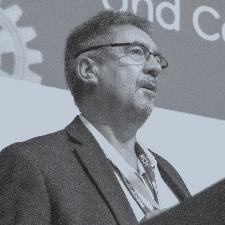
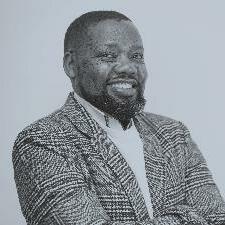

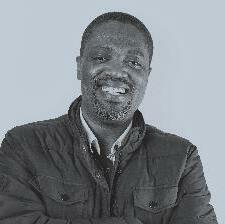
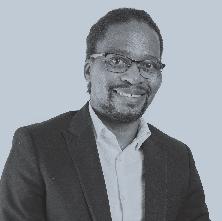

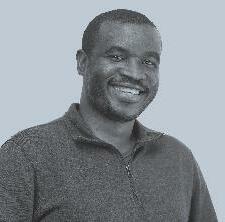


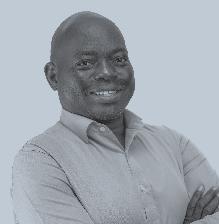
























The international award-winning Industrial Energy Efficiency (IEE) Project is one of the initiatives in the country contributing to the increase in the number of women participating in the sector.
Since April 2011, 39% of the 6 000-plus candidates who successfully completed training courses in Energy Management Systems and Energy Systems Optimisation were women. Women also played a significant role in the overall impact and achievements of the project. To date, more than 450 industrial companies have been assisted to save 6.5 TWh of energy – equivalent to five years of load shedding at the 2019 level of 1.352 TWh. This translates to cumulative cost savings of R5.3 billion and GHG mitigation of 6.4 million tons of CO2e in these companies.
The international award-winning Industrial Energy Efficiency (IEE) Project is one of the initiatives in the country contributing to the increase in the number of women participating in the sector.
The international award-winning Industrial Energy Efficiency (IEE) Project is one of the initiatives in the country contributing to the increase in the number of women participating in the sector.
With gender mainstreaming cutting across all its activities, the project strongly supports the UN and SA’s focus on gender equality.
With gender mainstreaming cutting across all its activities, the project strongly supports the UN and SA’s focus on gender equality.
With gender mainstreaming cutting across all its activities, the project strongly supports the UN and SA’s focus on gender equality.
Since April 2011, 39% of the 6 000-plus candidates who successfully completed training courses in Energy Management Systems and Energy Systems Optimisation were women. Women also played a significant role in the overall impact and achievements of the project. To date, more than 450 industrial companies have been assisted to save 6.5 TWh of energy – equivalent to five years of load shedding at the 2019 level of 1.352 TWh. This translates to cumulative cost savings of R5.3 billion and GHG mitigation of 6.4 million tons of CO2e in these companies.
Since April 2011, 39% of the 6 000-plus candidates who successfully completed training courses in Energy Management Systems and Energy Systems Optimisation were women. Women also played a significant role in the overall impact and achievements of the project. To date, more than 450 industrial companies have been assisted to save 6.5 TWh of energy – equivalent to five years of load shedding at the 2019 level of 1.352 TWh. This translates to cumulative cost savings of R5.3 billion and GHG mitigation of 6.4 million tons of CO2e in these companies.
An independent study into the impact of the IEE project on gender mainstreaming in the industrial energy efficiency sector in South Africa confirmed that the project has made a substantial contribution to promoting gender equality and advancing women’s participation and role in the sector.
An independent study into the impact of the IEE project on gender mainstreaming in the industrial energy efficiency sector in South Africa confirmed that the project has made a substantial contribution to promoting gender equality and advancing women’s participation and role in the sector.
An independent study into the impact of the IEE project on gender mainstreaming in the industrial energy efficiency sector in South Africa confirmed that the project has made a substantial contribution to promoting gender equality and advancing women’s participation and role in the sector.

THA 41-2022
This year, Women’s Month in South Africa was celebrated under the theme “Women’s Economic Rights, Empowerment and Resilience” across all sectors.
THA 41-2022
This year, Women’s Month in South Africa was celebrated under the theme “Women’s Economic Rights, Empowerment and Resilience” across all sectors.
THA 41-2022









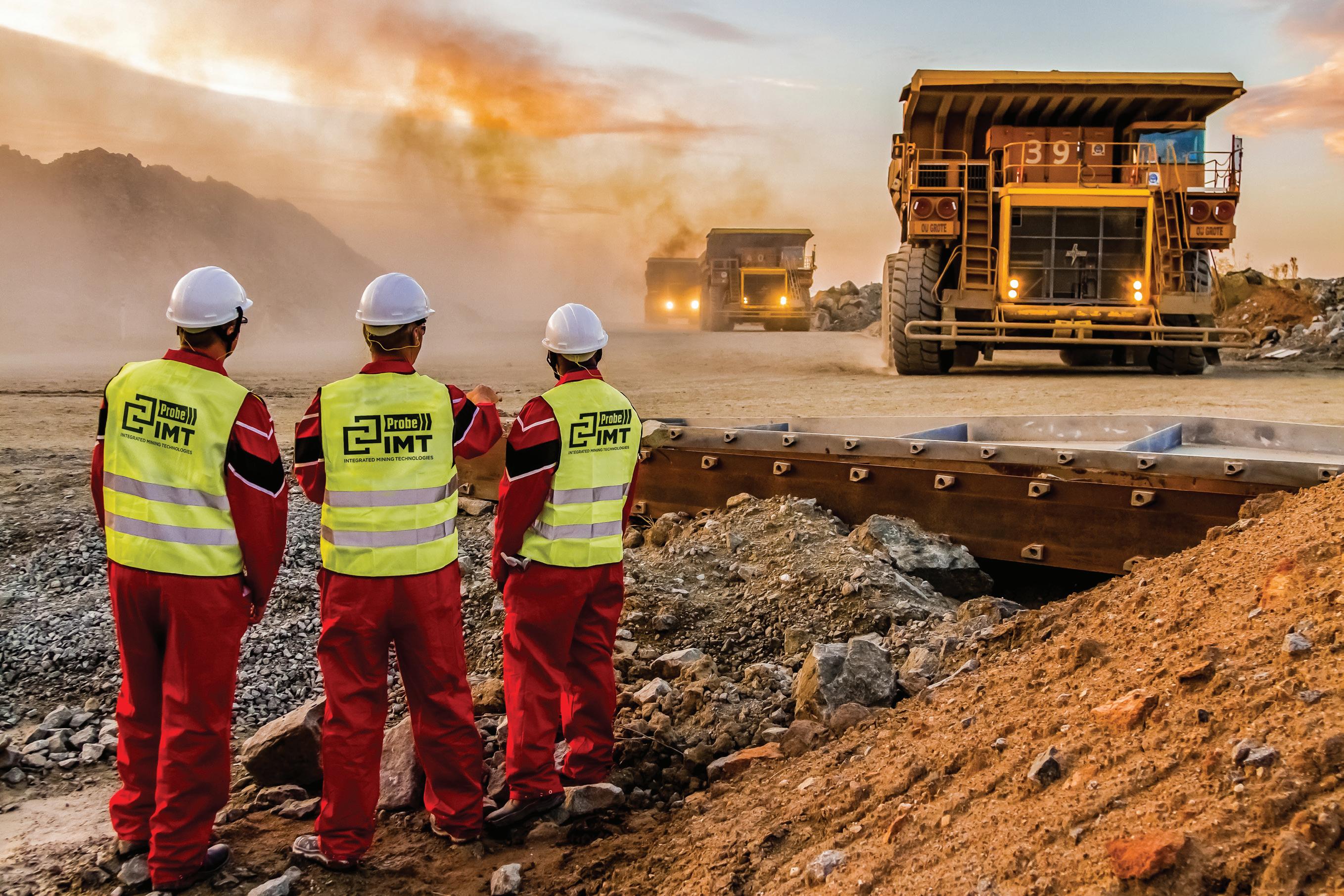
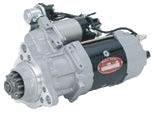







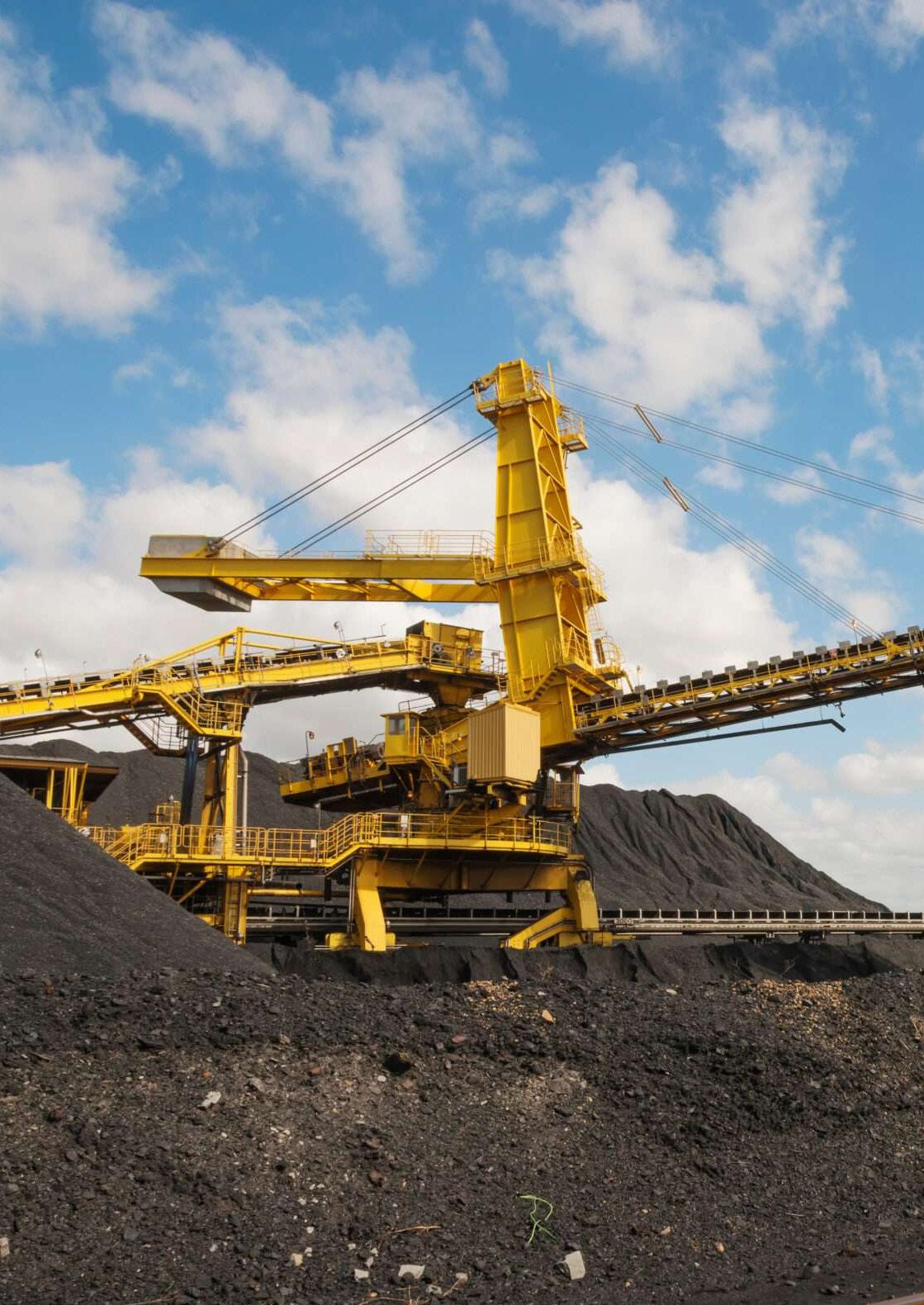
22 AFRICAN Business Quarterly • Issue 12
Boosting investments in an already established coal market will help amplify the continent’s electrification in a cost-efficient and highly effective manner.
ENERGY
BLACK COULD BE GREEN
Addressing energy poverty and the case for coal in Africa

Issue 12 • AFRICAN Business Quarterly 23 ENERGY
By utilising clean coal in the short term, ramping up investment and development across other energy sectors such as gas, Africa can address energy poverty, ensure energy security while reducing carbon emissions.
While coal has played a huge role regarding power generation in Africa, global climate policies are threatening the continued use of the energy resource, opting rather for cleaner sources of energy. The African Energy Chamber (AEC), as the voice of the African energy sector, believes Africa should maintain coal’s role as a vital part of a diverse energy portfolio to be able to meet the continent’s energy needs and accelerate industrialisation and economic growth.
COAL AS A KEY DRIVER OF ELECTRIFICATION IN AFRICA
While coal generated 28% of Africa’s total electricity in 2021, according to the AEC’s Q1 2022 Outlook, “The State of African Energy” (bit.ly/3Ac1Sy8), the anticipated increase in energy demand of between 3% and 5% per annum over the next decade provides an opportunity for Africa to maximise the use of coal to meet its energy needs while amplifying alternative energy take-off through investment and development. With more than 600 million people in Africa currently living in energy poverty, boosting investments in an already established coal market will help amplify the continent’s electrification in a cost-efficient and highly effective manner.
Significant coal reserves available in countries such as Zimbabwe, Ghana, South Africa and Nigeria—all of which continue to struggle with regular power outages and unreliable supply—could help provide baseload power while stabilising supply and ensuring affordability.
Meanwhile, with some the world’s most developed countries such as China and India leveraging coal to fuel the growth of their economies and industries, Africa should also follow suit. Recent geopolitical events have shown that some of the world’s most developed countries are continuing to utilise coal, recognising the role the resource plays in meeting demand and driving industrialisation.
Notably, in light of the Russia–Ukraine conflict, European countries such as Germany are now resorting to increasing coal usage to reduce the reliance on Russian gas, despite pushing green narratives. According to Energetika (bit.ly/3p6Nn8b), Germany’s coal imports are expected to increase by 12% in 2022. The country currently ranks sixth in the world regarding reserves, eight regarding production and fourth regarding consumption, importing 25% of its consumption—equating to 63 million tonnes.
Additionally, with the European Union announcing an embargo on Russian coal purchases in August (bit.ly/3bK9YEw), EU member countries are ramping up |their own coal usage in a bid to mitigate potential energy shortfalls.
Therefore, in the same way that Germany and the UK continue to utilise coal, going as far as bringing new mines online, African countries should be allowed to develop and utilise their own coal resources, optimising coal usage to address energy poverty.
COMPLYING WITH CLIMATE POLICIES THROUGH EMISSION REDUCTION
With coal representing the ‘dirtiest’ fossil fuel, Africa needs to adopt clean coal power generation solutions such as coal gasification and coal-to-liquid to avoid increasing greenhouse gas emissions. South Africa—with its Majuba, Theunissen and Sterkfontein projects—and Botswana, with its Serowe and Letlhakeng clean coal projects, are leading the way in this regard. Botswana has also announced a plan to deploy a $2.5-billion coalto-liquid refinery project (bit.ly/3QuSPO0) that will enable the country to exploit its 212 billion coal reserves for energy security while limiting the impacts of coal on the environment.
The Africa Energy Policy Research Network argues that since Africa and its 34 coal-fired power stations and 1.3 billion people only contribute between 1% and 1.5% of the global greenhouse gas emissions, optimising coal-fired power generation will not have a significant impact on the climate crisis, but rather enhance the continent’s energy supply.
Apart from energy security-related issues, maintaining the use of coal will help create jobs and revive African economies. With around two million people in Africa currently working in the fossil fuel industry, the coal industry has for decades highlighted its importance in addressing Africa’s socio-economic issues.

However, global climate policies have resulted in Africa delaying a number of planned coal power projects due to inadequate funding as an increasing number of both international and domestic investors announced plans to cease financing. Financial development institutions such as the European Investment Bank and the European Bank for Reconstruction and Development—as well as European and US governments—have announced plans to end the financing of new coal-fired power generation projects across the continent.
However, despite the announcements and due to the role of coal, financial institutions from the US, China, Japan, India, Canada and the UK have continued to pour funding into the coal sector across the globe with up to $1.5 trillion channelled between January 2019 and November 2021, according to campaign groups Urgewald and Reclaim Finance (bit.ly/3BWJWbY). African countries including Botswana, Malawi, Mozambique, South Africa and Zimbabwe have also continued to actively seek financiers for their coal projects.
While foreign capital is important, the AEC believes African institutions such as the African Energy Investment Corporation, the African Development Bank and the proposed African Energy Bank have a huge role to play in increasing funding toward the energy sector to enable Africa to exploit its coal and other energy resources to make energy poverty history by 2030. Through the adoption of clean coal technologies and the utilisation of the resource in the short- to medium term, Africa will have a chance to develop while reducing emissions on a large-scale basis.
African Energy Chamber energychamber.org
Image
source: www.engineeringnews.co.za
The Majuba power station
24 AFRICAN Business Quarterly • Issue 12 ENERGY
Through the adoption of clean coal technologies, Africa will have a chance to develop while reducing emissions on a largescale basis.
YOURSELF AND YOUR CAPABILITIES TRUST
Namibia. I’ve seen the Katse and Mohale dams in Lesotho. In Namibia, we’ve been at the Skorpion Zinc Mine where we did the earthing and lightning protection of the entire mine when it was built. At that point when I visited, the site was just a little mining dorpie.”
Advanced Lightning Protection (ALP) specialises in all aspects of earthing, lightning and overvoltage protection.
The company’s work includes soil surveys, risk assessment, designs, installation, testing of existing systems, and certification of existing systems. We spoke with CEO Sarina Edworthy about the origins of the company and her role in running the business.
It was Edworthy’s father who founded ALP in 2000 after he had been retrenched. Edworthy started out assisting with the admin work, but became more involved in the business two years later, as her father found it increasingly difficult to handle all the projects, paperwork and travelling by himself. She began accompanying him to many of the sites to gain technical experience and better understand what the entire installation process entailed.
Then in 2005, her father was diagnosed with kidney failure and had to undergo dialysis three times a week, so Edworthy had to become even more involved in the company. “I had to take over some of the project management—not just the contractual side, but the on-site management as well. We contracted an external company to handle the safety issues. I became more involved on the technical side at that stage and I handled all the contractual documentation, the quotations, all the office work, all the HR work... everything I handled,” she shares.

Edworthy’s father was on dialysis for four years before he received a kidney transplant, and in that period she was thrown in the deep end, having to take over all responsibilities and quickly learn new skills.
Sadly, her father passed away suddenly —without handing over any information on certain projects, so it was challenging to pick up all the leads and continue, she says. “But it’s more than a year later, and we’re still going strong; we have major projects at the moment. There have been challenges on site as well.
Sometimes it’s safety requirements that you need to deal with, at the mining sites specifically. At the construction sites, you need to buy new safety equipment or comply with the safety requirements. It has been challenging to learn all the red tape involved in certain areas.”
It has now been 18 years since Edworthy joined ALP. Working as CEO of a lightning protection company is a far cry from working in nature conservation, which she studied at Pretoria Technikon before joining her father. “I’ve seen places, and experienced things I would not have if I’d been in another area. If I had continued with nature conservation, I would not have experienced all that I have,” she says.
“Mining is very interesting: the activities, the major trucks, the safety that goes with it. I’ve been in Lesotho, Swaziland, Botswana,
Edworthy does not do much travelling anymore—“we have technical personnel who do most of the travelling at this stage”—so she is more office-bound these days. But she still loves what she does, and loves a challenge.
“The moment you arrive at the office, there is always something else that you have to take care of, before you can do what you plan to do.
She is grateful to have studied at a technical school, as this laid the foundation for her work at ALP and within a male-dominated field. “If you have the knowledge, you have every right to be in a technical environment, and you need to trust yourself and your capabilities.” She advises other women in such fields to “speak up if you believe in something—you know you have the knowledge you need. And if they [men] try and dominate you, know that you have every right to be there. As men have entered women’s environments, there is no reason we can’t enter male-dominated environments.”
ALP is based in Pretoria, but does work countrywide and in neighbouring countries as well. As for the future, Edworthy says the company aims to expand and become more involved in construction projects. It is already busy with construction work on the Zimbabwean side of the Beitbridge border post, having been involved there since phase 1 which began in 2020. Now in phase 3, there is a possibility of ALP being involved in the upgrades on the South African side as well.
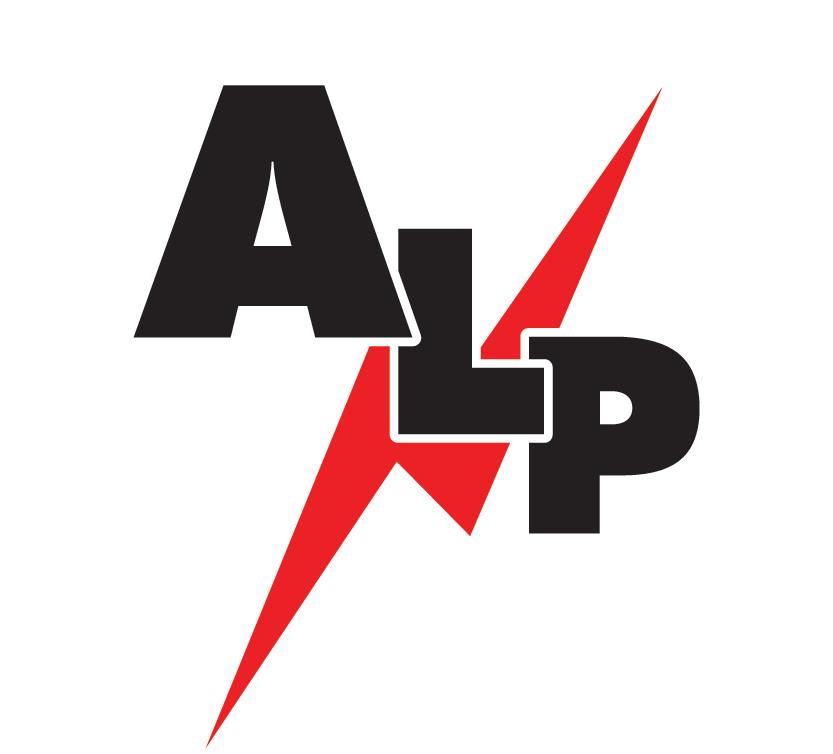
ALP will continue servicing clients such as AB InBev and those in the mining industry, but aims to also get involved specifically in the coal mining sector—such as with Seriti and Sasol.
For more information, visit advancedlp.co.za
ADVERTORIAL Issue 12 • AFRICAN Business Quarterly 25
Advanced Lightning Protection CEO Sarina Edworthy took over the company from her father and has been tackling challenges with aplomb
POWER PLAN
Cyril Ramaphosa acts to ease South Africa’s energy crisis: impact will be felt in renewables

26 AFRICAN Business Quarterly • Issue 12 RENEWABLE ENERGY
Earlier this year, South Africa’s President Cyril Ramaphosa announced an action plan to address the country’s growing energy crisis (bit.ly/3bMB0LB). It included relaxing the legislative and environmental requirements to speed up private investment and increase generation capacity. The Conversation Africa’s Nontobeko Mtshali asked Wikus Kruger for his insights.
WHAT IMPACT WILL THIS HAVE ON RENEWABLE ENERGY UPTAKE?
Part of the challenge with the president’s announcements—and it’s natural that this will happen in a public speech—is that it’s relatively light on details and timelines. And so not everything is clear. The one thing that was clear, though, is that the environmental requirements that will be relaxed will only be those for solar PV (photovoltaic) farms. And this will only be in areas with medium to low environmental sensitivity.
That’s an important step because environmental approvals are usually the longest and and most expensive part of the regulatory process (bit.ly/3bJTSuJ).
But there are important elements in the regulatory process that should have been addressed. For example, building a renewable energy project on agricultural land requires ministerial approval in terms of the Agricultural Land Act (bit.ly/3zOsuDF). That’s quite a lengthy process.
Other legislative constraints are related to the current Mineral and Petroleum Resources Development Act (bit.ly/3Qx7po7), which requires the consent of the Minister of Mineral Resources for using the land surface.
In addition, municipalities have their own zoning bylaws that govern how land is used. So, all of these add a lot to the time it takes to develop renewable energy projects. If these specific aspects, over and above the environmental and building planning approvals, could be shortened or streamlined, that would take us much further.
There’s already a massive pipeline of projects that have been developed and are ready to go ahead as a result of Bid Window 5 (bit.ly/3zOsWBR). Bid Windows are periods where the government, as part of its procurement programme, invites companies to compete for contracts to produce renewable energy and sell it to Eskom, the power utility. Close to 10 gigawatts of projects
(bit.ly/3BVdgiT) were submitted for Bid Window 5—five times more than what was asked for. These are all projects that are ready to be built.
So, easing up of some of the environmental requirements will to some degree speed up project approval over the medium term, but is perhaps not the main bottleneck.
WHAT DO THE CHANGES SIGNAL FOR THE COUNTRY’S ENERGY SECTOR?
We’re likely to see much more renewably sourced energy come onto the grid, more quickly. Many commercial and industrial clients such as mines, shopping malls and warehouses have already installed a lot of renewable energy capacity. Since these businesses can now sell that energy to Eskom, they have an incentive to maximise their generation capacity. That will have a big impact.
Some municipalities have also signalled that it would be possible for households to sell renewable energy onto the grid. Details on this aren’t clear at the moment. So that will happen over the medium term.
If we can get a lot of the red tape out of the way, and get the registration process for new projects streamlined or automated, we’ll see a lot of capacity coming online quite quickly.
The medium-term implications are a bit more complex. That’s because getting all of these variable resources onto the grid will need much more sophisticated management capacity because of the suite of services and products needed to keep the grid stable.
Another challenge is transmission. South Africa needs much more transmission capacity—more than R180 billion’s worth (bit.ly/3SCJCFh). One thing that would have been welcome, but wasn’t included in the president’s announcements, would have been powers enabling Eskom to expropriate land for transmission lines. Right now, it takes about seven years just to get through the land acquisition process, since every piece of land that the power lines traverse needs to be acquired on a willing-buyerwilling-seller basis with private land owners. The country’s already way behind schedule and needs much more transmission capacity urgently.
South Africa’s Northern and Western Cape provinces have really good solar resources, with lots of projects having been developed. They’re ready to get onto the grid, but can’t because of inadequate transmission capacity. So the system is almost entirely at the mercy of land owners. The process of getting the rights to use their land is very, very cumbersome.

Issue 12 • AFRICAN Business Quarterly 27 RENEWABLE ENERGY
Easing up of some of the environmental requirements will to some degree speed up project approval over the medium term, but is perhaps not the main bottleneck.
ARE THE PROPOSALS LIKELY TO BE CHALLENGED?
I don’t think so. The solar projects are limited to areas with medium- to low environmental impact. I don’t see there being active resistance to these projects. There’s a legal precedent for that. South Africa has areas called Renewable Energy Development Zones (bit.ly/3VE3aKG), which have almost blanket environmental approvals for projects in those areas. And it’s something that’s existed for a while and hasn’t been challenged legally. Legal processes were followed when they were being established.
IS THE SOUTHERN AFRICAN ENERGY POOL LANDSCAPE CHANGING?
South Africa has been buying and selling power on the Southern African Power Pool (www.sapp.co.zw) for a long time. And although the country has generally been a net exporter, it’s also been an importer. South Africa’s neighbours that have suffered because of South Africa’s lack of generation capacity have been increasing their generation capacity.
One example of this is the Kafue Gorge Lower power plant in Zambia’s Chikankata district (bit.ly/3zJ2Wbm). Namibia and Botswana have also been exporting more electricity to the region. In that way, they’re weaning themselves off Eskom.
THERE ARE PLANS TO CONNECT ANGOLA, MALAWI AND TANZANIA TO THE REGIONAL GRID. WILL THIS AFFECT GENERATION CAPACITY?
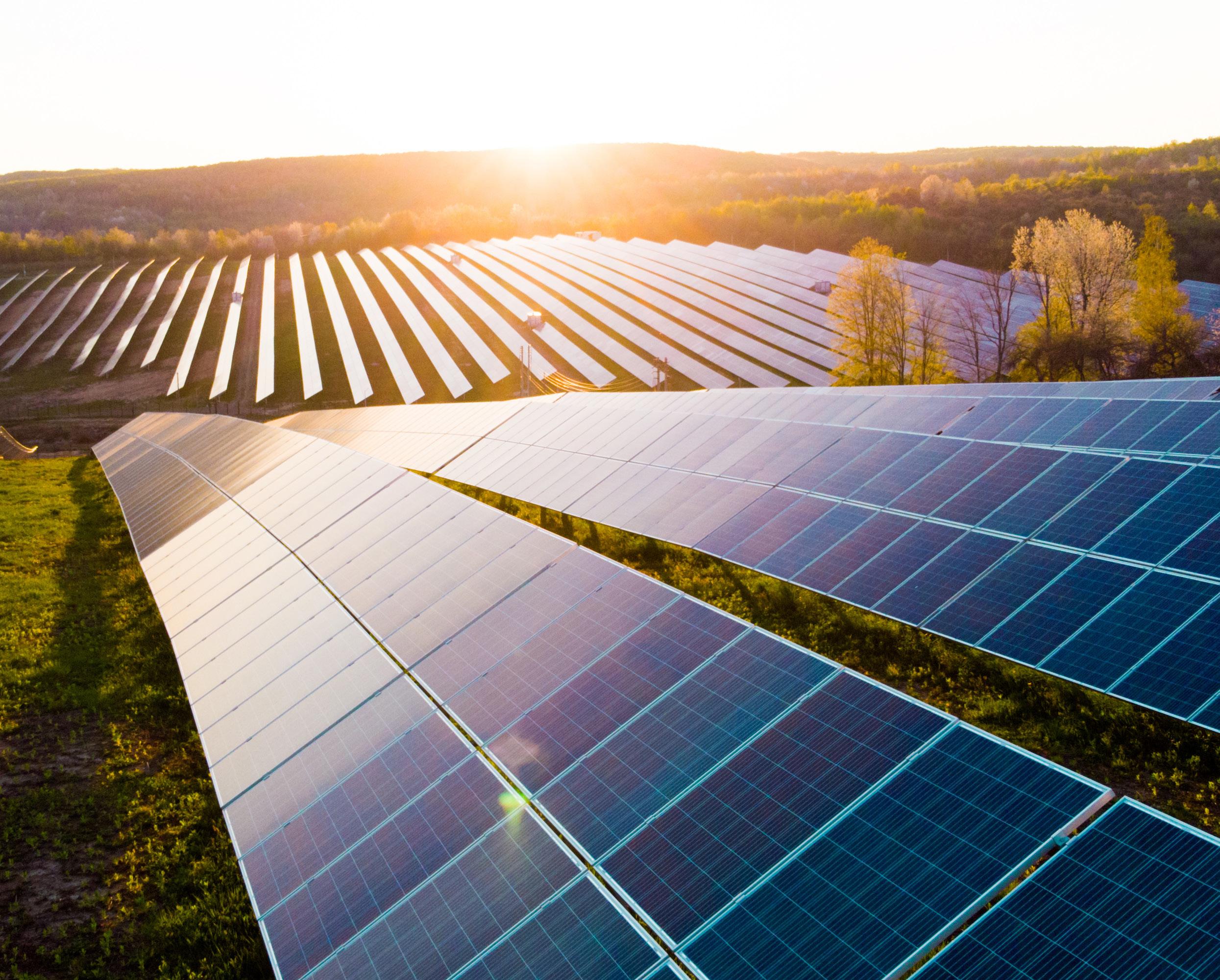
In general, the more connected the power pool is, the better it is for everyone because it gives the collective system complementary resources
across the region. That leads to the system being more balanced and operating more optimally, like we see in the European Union. That kind of stability would bring the costs down for everyone in the region.
The Southern African Power Pool is an important but often neglected part of South Africa’s energy story. The country has become used to dominating regional energy. The power pool is not often featured in South Africa’s thinking about the country’s energy future. It should. Hopefully this will move South Africa in that direction.
Wikus Kruger is a researcher with Power Futures Lab at the University of Cape Town’s Graduate School of Business
28 AFRICAN Business Quarterly • Issue 12 RENEWABLE ENERGY
If we can get a lot of the red tape out of the way, and get the registration process for new projects streamlined or automated, we’ll see a lot of capacity coming online quite quickly.

PRESSING
Western countries that once pressured African countries to strand their petroleum resources are now investing in African oil and gas projects.
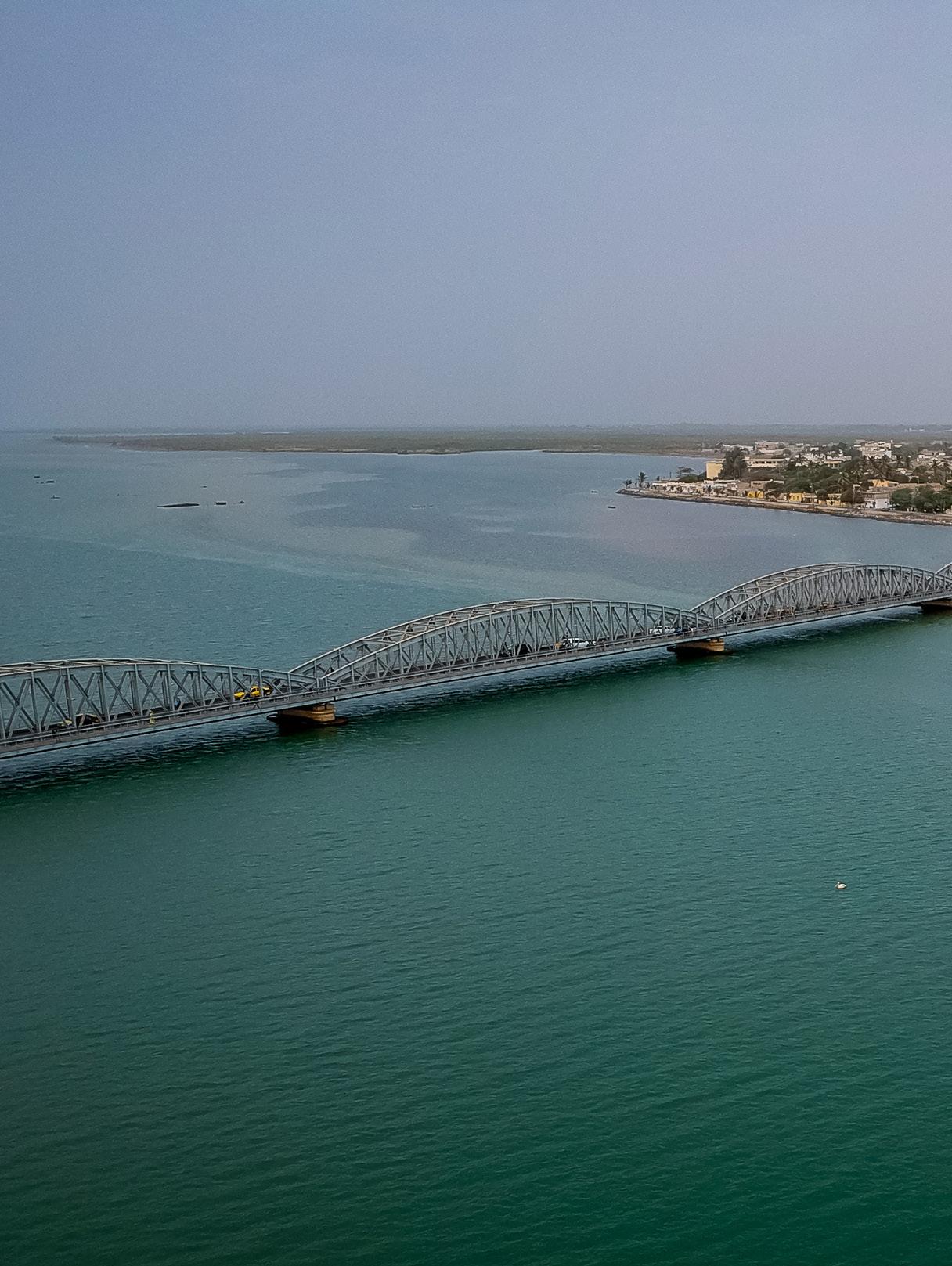
30 AFRICAN Business Quarterly • Issue 12 GAS
NEEDS
Senegal and Mauritania could be described as rising stars in the energy industry. After one significant offshore discovery after another in the region between 2014 and 2017, it has become evident that the region has massive stores of natural gas: as much as 1.13 trillion cubic metres in proven reserves in Senegal and 28.3 billion cubic metres in Mauritania.
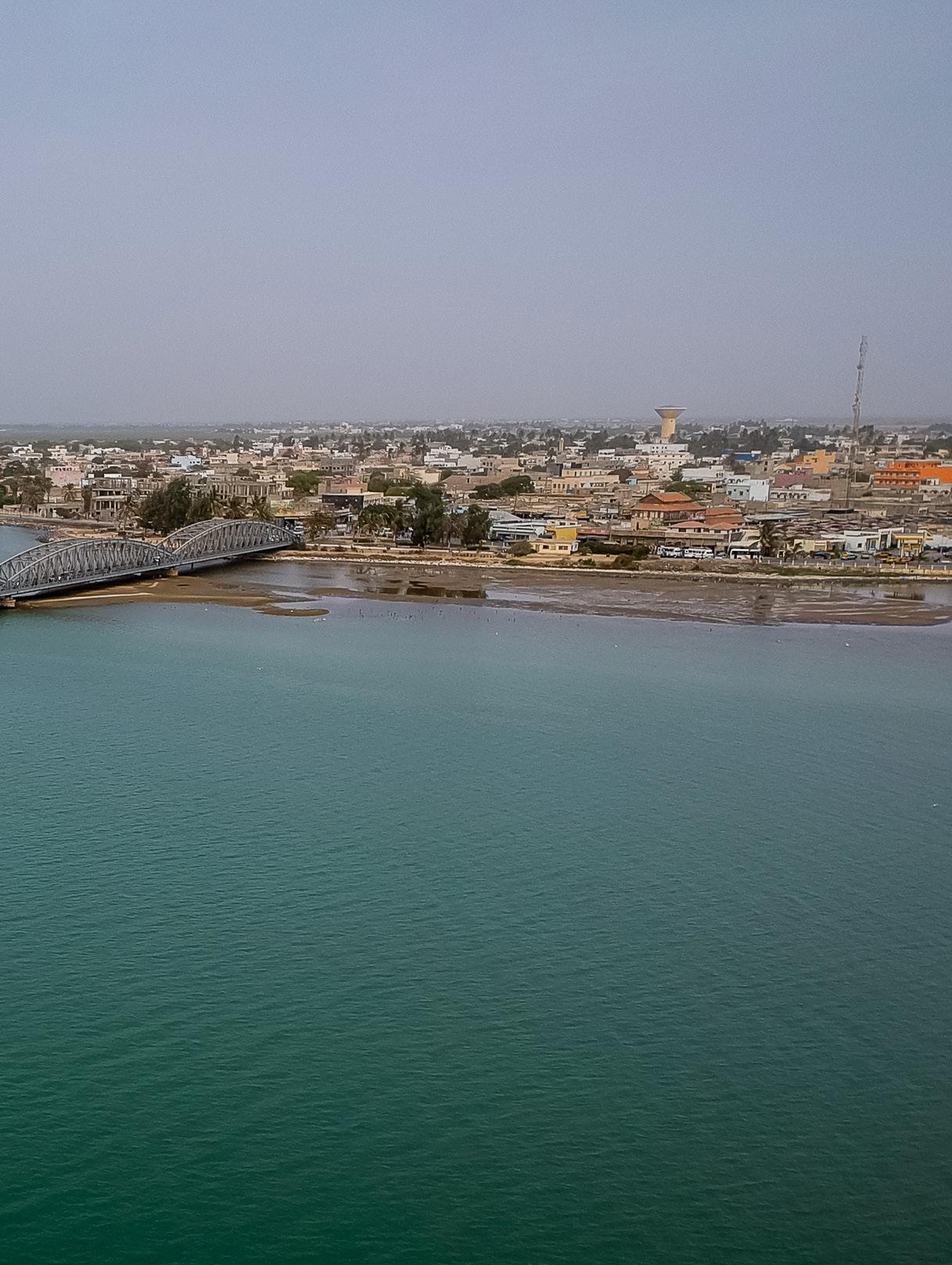
There was a time in the not-so-distant past when Senegal and Mauritania’s odds of fully capitalising on their rich resources were not entirely certain. Large African oil and gas discoveries were met with hand wringing by Western countries and environmental organisations. The general argument was that African countries were better off leaving their petroleum resources in the ground so they would not contribute to greenhouse gas emissions and global warming. International oil companies (IOCs) and investors were becoming increasingly reluctant to support African petroleum projects.
But now, world events have changed much of that. During the last few months of 2021, global gas demand began exceeding supply, sending natural gas prices to record highs in Asia, Europe and the United States. Gas concerns heightened earlier this year as European countries began looking to Africa to help them wean themselves from their dependence on gas from Russia in response to its invasion of Ukraine. The situation has grown even more urgent for Europe in recent months: Russia answered Europe’s plans to gradually use less Russian gas with immediate reductions in gas deliveries.
As a result, Western countries that once pressured African countries to strand their petroleum resources are now investing in African oil and gas projects. They are interested in building African infrastructure. They are focused on doing anything they can do to help meet their pressing gas needs.
I would not describe the undersupplied gas market or the suffering in Ukraine as opportunities, but these situations have created a new reality for African countries with oil and gas reserves.
My advice for Senegal and Mauritania, and the companies that have discovered petroleum there, is to be aggressive about keeping their projects on schedule. Natural gas and liquified natural gas (LNG) projects are already in various stages of development in Senegal and Mauritania, but it is imperative that stakeholders do everything possible to drive their projects forward. They must avoid delays because it is impossible to know how long European countries will be willing to invest in and encourage these projects. The reality is, while Senegal and Mauritania now have a better chance to capitalise on their gas for domestic needs, monetise gas, and grow and diversify their economies with gas, their window to accomplish those things has an invisible expiration date.
The African Energy Chamber addresses this in its soon-to-be-released “Petroleum Laws—Benchmarking Report for Senegal and Mauritania”. One of the report’s key recommendations to government leaders and international oil companies in Senegal and Mauritania is to make it a priority to avoid project delays on project timelines.
Senegal and Mauritania must capitalise on their vast natural gas resources as quickly as possible
Issue 12 • AFRICAN Business Quarterly 31 GAS
WE’VE ALREADY SEEN SLOW-DOWNS
As our report notes, projects in the region already have hit some speed bumps.
Look at Greater Tortue Ahmeyim (GTA), the offshore LNG project on the maritime border of Senegal and Mauritania being developed by BP, Kosmos Energy, Senegal national oil company Petrosen, and Mauritania’s Societe Mauritanienne des Hydrocarbures. The project’s floating liquified natural gas (FLNG) project, a Phase 1 development, was initially scheduled to come online in 2022. Now project partners plan to complete Phase 1 in 2023. The initial delay was caused by the COVID-19 pandemic, but the project also has experienced a bit of ‘timeline slippage’ due to cost inflation, which bumped Phase 1 completion from the first quarter of 2023 to the third quarter.
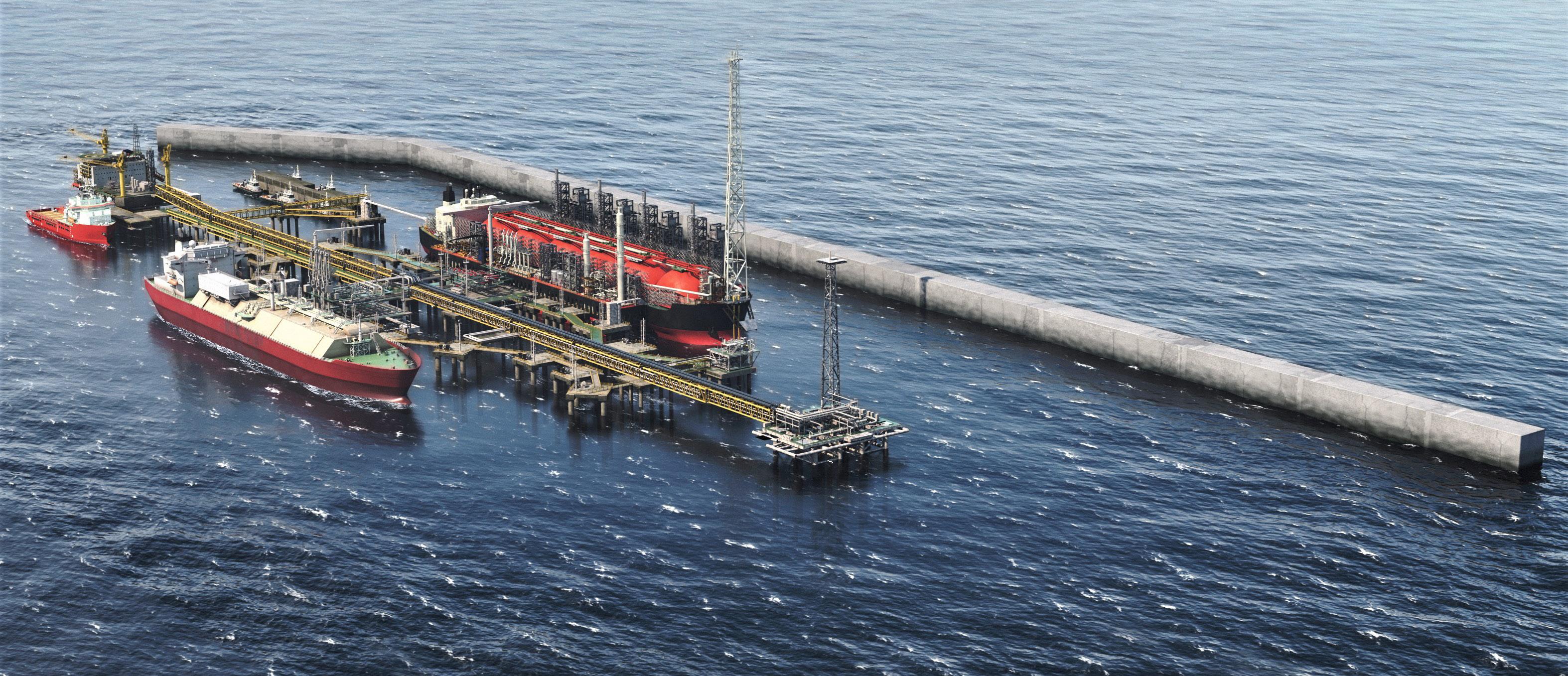
GTA, and the region’s other projects—from the Yakaar-Teranga power and LNG project to BP’s Bir Allah gas project offshore Mauritania— must stay on track going forward.
As our report states, “Any delays in these projects which are already looking at late 2020s to mid-2030s (barring the GTA FLNG Phase 1) start-ups can result in not being able to fully utilise the undersupplied LNG market in the coming few years.”
It is also important to recognise that while European countries are making every effort to import natural gas from Africa, they are working just as furiously to get gas from other regions of the world, including the US, Guyana, Qatar and Azerbaijan.
As Stanley Reed wrote for The New York Times, “As Russia tightens its chokehold on supplies of natural gas, Europe is looking everywhere for energy to keep its economy running. Coal-fired power plants are being revived. Billions are being spent on terminals to bring in liquefied natural gas, much of it from shale fields
in Texas… Across Europe, fears are growing that a cut-off of Russian gas will force governments to ration fuel and businesses to close factories, moves that could put thousands of jobs at risk.”
We also should remember that Europe considers green energy sources part of its energy solution, too. Again, European leaders are looking to Africa to meet some of those needs, green hydrogen (produced without fossil fuels) in particular, which is a valuable opportunity. But that does not mean we should not recognise the urgency of helping Europe satisfy its natural gas needs while we can. Missing out on all that gas can do for Senegal and Mauritania—on what it can do to help eradicate energy poverty, build business and create jobs—would be a heartbreaking loss.
WE CAN DO THIS
I understand that some gas project delays, like the ones caused by the pandemic, are outside of anyone’s control. But there are measures that governments and companies can take to keep projects moving forward.
As I have made clear more than once, the governments of Senegal and Mauritania should be commended for everything they have done to create a positive environment for doing business in their countries. Their fiscal policies were created specifically to attract IOCs, and that was exactly the right thing to do. That said, I would encourage oil and gas ministries to continue looking for, and eliminating, red tape and inefficiencies with potential to impede gas projects’ progress.
I am encouraged by the words of Moustapha Bechir, director-general of Hydrocarbons at
the Ministry of Petroleum, Energy and Mines in Mauritania, who has said the ministry is working to optimise Phase 2 of the GTA FLNG project. “We are now reshaping Phase 2 to better fit the concept and to accelerate it and maximise the economics of the project,” Bechir said in 2021.
As for the companies that have been exploring in Senegal and Mauritania, those that are moving ahead with gas and LNG projects, they have made great strides as well. I would simply encourage them to be proactive about recognising situations that could interfere with project timelines so they can be addressed as efficiently as possible.
I have told my employees and fellow African energy stakeholders that we still have work to do—there is still so much good we can accomplish. The same holds true for governments and companies in Senegal and Mauritania. The region’s natural gas truly has the power to benefit everyday people. It can make it possible for millions—many for the first time—to experience life with reliable electricity. It can create business opportunities and empower individuals to make a good living. And, it can set the stage, through industrialisation and economic diversification, for a pattern of long-term growth and stability.
We simply need to move forward quickly and decisively to make these things happen.
NJ Ayuk Executive Chairperson African Energy Chamber
“ The region’s natural gas can make it possible for millions—many for the first time—to experience life with reliable electricity. ”
32 AFRICAN Business Quarterly • Issue 12 GAS
Greater Tortue Ahmeyim
THE PRBB DIFFERENCE



Our trailers offer clients the leading edge thanks to innovative design, rigorous production processes and the use of superior materials. All of this results in unmatched durability, reliability and efficiency, enabling our clients to generate GREATER EARNINGS.
By expanding into a greater variety of industries and establishing a production line in Pretoria, PRBB now is one of the fastest-growing players in the market, having achieved a tenfold increase in production and revenue within six years. The team achieved this by optimizing production processes, standardising the designs of PRBB’s product range, now offering a greater payload and most importantly, manufacturing and distributing trailers that enable GREATER EARNINGS.
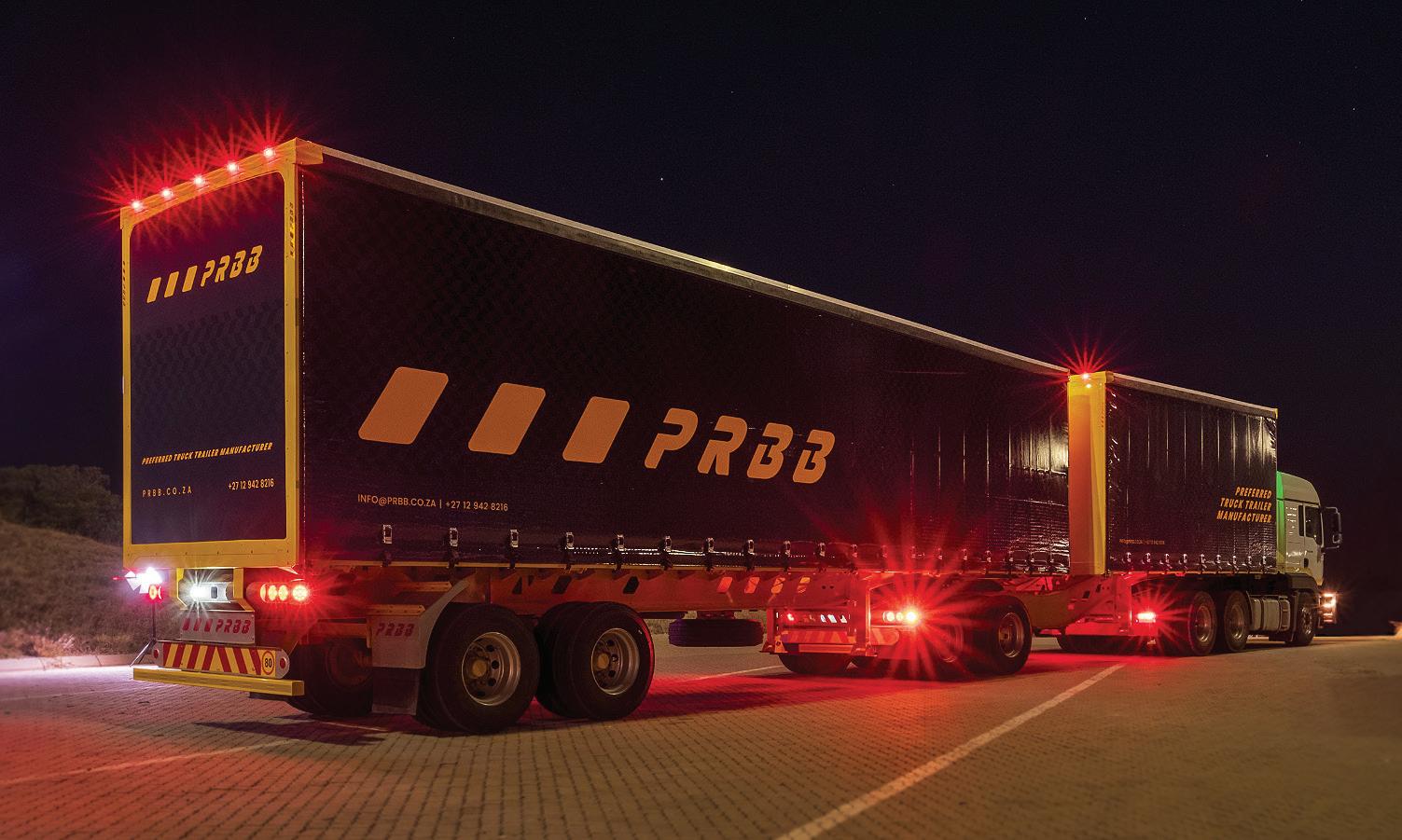
HEAD OFFICE > (012) 942 8216 > info@prbb.co.za > Situated East of
next to the N4 Highway, Rhenosterfontein Road, Donkerhoek prbb.co.za
Pretoria,
VISION OF A NEW ERA
The East African Crude Oil Pipeline will help make energy poverty history in Africa by 2030
Simply put: if EACOP fails, Africa will remain energy-poor.
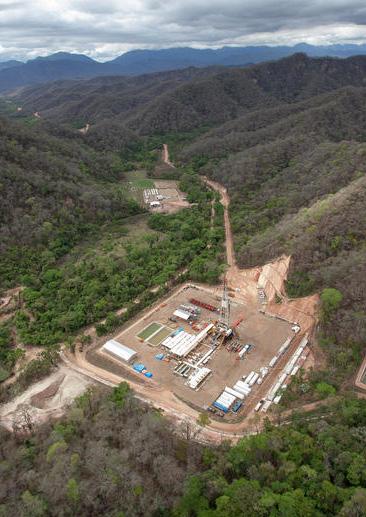
OIL 34 AFRICAN Business Quarterly • Issue 12
The East African Crude Oil Pipeline (EACOP) is a highly significant project in Africa. In addition to transporting much-needed oil across the region and improving energy security by connecting hydrocarbon-rich basins in Uganda with both its regional and international destinations, the pipeline will be instrumental for job creation, local community empowerment and wider socio-economic growth.
Despite its significance, however, Western environmentalist groups are demanding the abandonment of the project, citing environmental concerns ( bit.ly/3zIYAAN). But at what point does Africa’s energy needs and the well-being of the people take precedence over sensationalist eco-socialism?
The EACOP—also known as the Uganda–Tanzania crude oil pipeline—is a 1 443-kilometre long crude oil pipeline that will link Uganda’s oilfields to the Port of Tanga in Tanzania. The pipeline, with capacity to transport approximately 216 000 barrels per day, is estimated to cost $3.5 billion—and once complete, will represent the longest heated crude oil pipeline in the world.
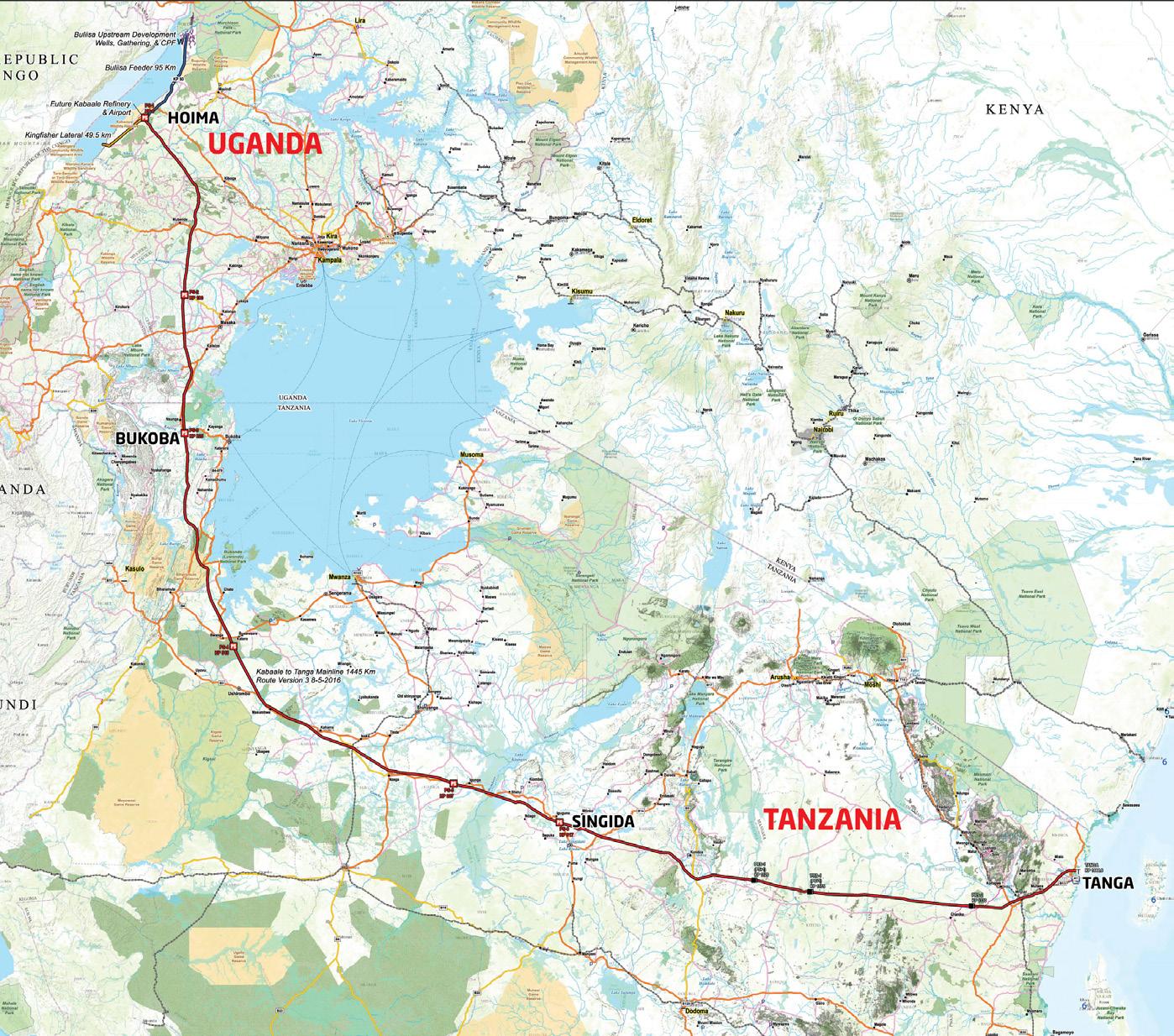

Currently, Standard Bank of South Africa is advising the governments of Uganda and Tanzania, with the ownership of the pipeline shared between TotalEnergies (62%); the China National Offshore Oil Corporation (8%); the Uganda National Pipeline Company (15%); and the Tanzania Petroleum Development Corporation (15%).
Following the discovery of commercially viable quantities of oil in Uganda’s Lake Albert basin and the completion of exploration by the CNOOC, TotalEnergies and Tullow in 2006, the 1 443km EACOP was proposed. Comprising part of the wider Lake Albert Development Project, the pipeline will transport oil produced in Uganda to international markets, generating critical revenue for the entire East African community. The majority shareholder, TotalEnergies, proudly announced a $10-billion final investment decision for the project in February 2022 (bloom.bg/3zPrUFI), kickstarting development and ushering in a new era of energy security for the region.
For Africa, the pipeline represents the solution for addressing energy poverty while driving socio-economic growth through the empowerment of local communities. During the construction phase alone, the pipeline is expected to create thousands of high-paying jobs and significant opportunities for local companies such as contractors. What’s more, Tanzania and Uganda are expected to see a
60% increase in foreign direct investment, with more capital expected to flow throughout the project’s subsequent stages. The long-term employment, guaranteed energy security and broader economic benefits brought about from construction emphasise its importance for driving development in Africa. Simply put: if EACOP fails, Africa will remain energy-poor.
“Ugandans and Tanzanians should not have to pay the price for Western, developed nations,” says NJ Ayuk, executive chairperson of the African Energy Chamber (AEC). “It makes no sense to oppose the construction of the pipeline. If EACOP fails, there will be no guarantee of employment, with a lot of the population
remaining energy-poor for years to come, and investment directed toward East African exploration will dry up. Africa does not deserve this. Africa deserves the rights to develop its resources, and that includes the EACOP.”
The call by climate activists to #StopEACOP is detrimental, not just for East Africa’s energy future, but for the well-being of the regional community itself. In addition to fighting against the construction and operation of the project, activists are targeting the funding of the project, with 20 large-scale banks having been convinced not to finance the pipeline. Despite these attacks, project developers remain resilient, recognising the value of the pipeline.
Issue 12 • AFRICAN Business Quarterly 35 OIL
“TotalEnergies and partners have been very proactive and have invested a lot in building relationships at community level. They have a strong track record of robust environmental management and social engagement, and it gives the AEC comfort to back this project without hesitation. Citizens of Uganda and Tanzania are already benefiting from local content programmes and community workshops, training programmes and investments in local communities. This should not be stopped by zealots who believe that Uganda, a country that has been one of the lowest greenhouse gas footprints, should be punished and foot the bill for the wealthy nations that are now
using coal to power their industries and homes,” continues Ayuk, adding that, “We are concerned that some want Ugandans and Africans to leave oil and gas in the ground while they are spending billions to fire up coal plants. Energy poverty is real. We will push for African suppliers to sign joint ventures with Ugandans and grow together, using this project to promote intraAfrica trade and collaboration as envisioned by the AfCFTA [African Continental Free Trade Area].”
Let’s face it, Ugandans have a plan to use the revenue well and they should be given the right to debate how they do so within their societies, without the interference or lecturing by outsiders. Revenue from EACOP will build schools, hospitals and modern infrastructure, as well as finance the development of other energy projects such as renewables—helping Ugandans close the gap between struggle and success. TotalEnergies has put forward a safe and carbon-friendly plan for this pipeline.
The vast majority of Ugandans, Tanzanians and Africans are resolute in their support of EACOP, TotalEnergies and its partners when it comes to this project. The project is poised to bring significant benefits to Ugandans and Tanzanians, carrying with it progressive socio-economic growth, a diminished environmental footprint, and risk reduction associated with oil transportation.
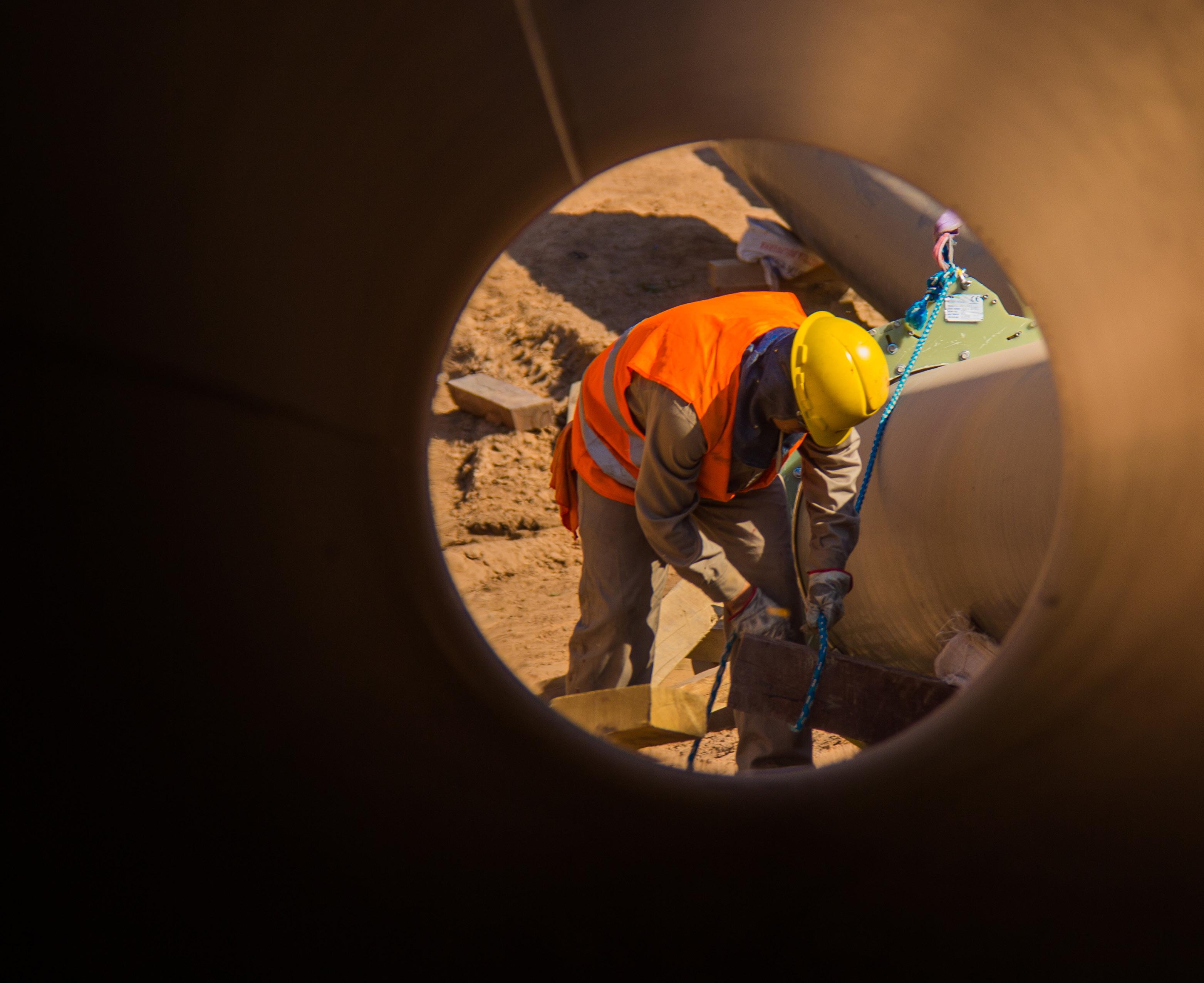
“Local communities and everyday people always struggle to make financial ends meet in Uganda and Tanzania. I believe TotalEnergies and EACOP is a godsend. Income and opportunity already coming into families and communities will backfill many of the shortages that exist.
“Stop disrupting Africa’s development and let’s use the EACOP and every other oil and gas project on the continent to drive Africa into a new era of energy and economic success,” concludes Ayuk.
African Energy Chamber energychamber.org
36 AFRICAN Business Quarterly • Issue 12 OIL
“Let’s use the EACOP and every other oil and gas project on the continent to drive Africa into a new era of energy and economic success”

DIGGING A HOLE FOR ITSELF
Artisanal gold mining in South Africa is out of control—mistakes that got it here
An illegal and unregulated gold mining industry, among the most lucrative and violent on the African continent, has taken root.

Informal mine shaft in Mpumalanga
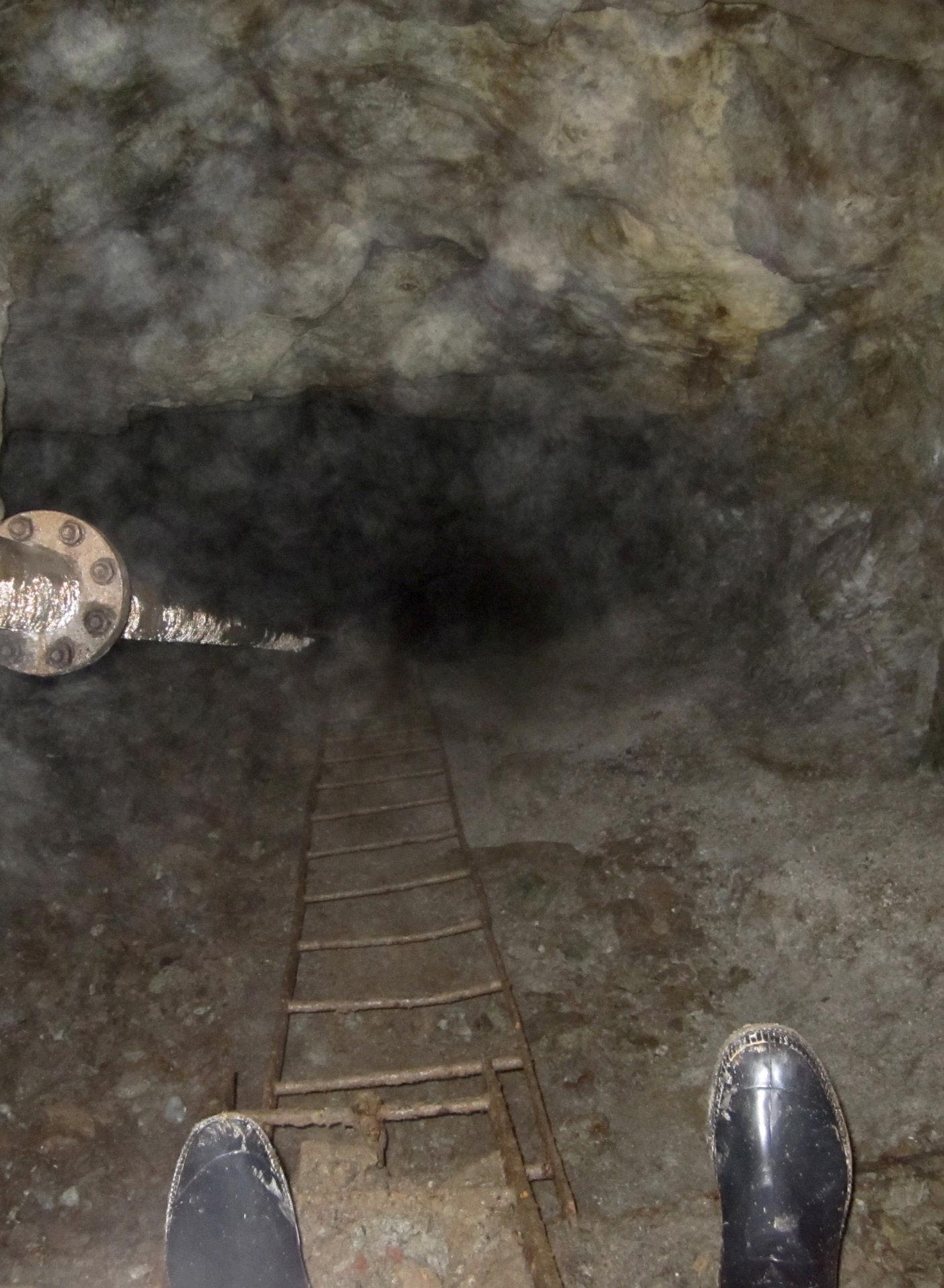
38 AFRICAN Business Quarterly • Issue 12 MINING
Image source: Ground UpCecilia Johnson
Illegal and unregulated artisanal gold mining on the Witwatersrand Basin, located south of South Africa’s Gauteng province, is an increasing threat to community, industrial and state security. Reports on turf wars between rival gangs (bit.ly/3bSYMWb), or shootouts between illegal miners and security officers (bit.ly/3w1HJYZ) are commonplace.
But recent incidents point to a spike in the scale of illegal activity, conflict and criminality.
In October 2021, approximately 300 illegal miners, known as zama zamas, attacked and shot at police and security officers (bit.ly/3SJxO40) when the officers tried to prevent them from delivering food parcels to underground miners.
In June 2022, about 150 illegal miners stormed gold miner Sibanye-Stillwater’s mothballed Cooke shaft near Randfontein in an attempt to gain control (bit.ly/3SHLIng).
And in July, South Africans were reeling at the horrific robbery and gang rape of a film crew (bit.ly/3Qdryjn) at a mine dump close to West Village, a multi-racial suburb of Krugersdorp on the West Rand.
West Village community members have since spoken out about being “prisoners in their own homes” (bit.ly/3C1lLsR). They attribute rampant crime in the area over the last few years to the influx of illegal mining—a situation that law enforcement officials seem unable or unwilling to control.
In the wake of these incidents, the spotlight must turn to the systemic reasons artisanal gold mining has become such a threat to peace and security. These include the state’s decades-long failure to nip an unregulated and
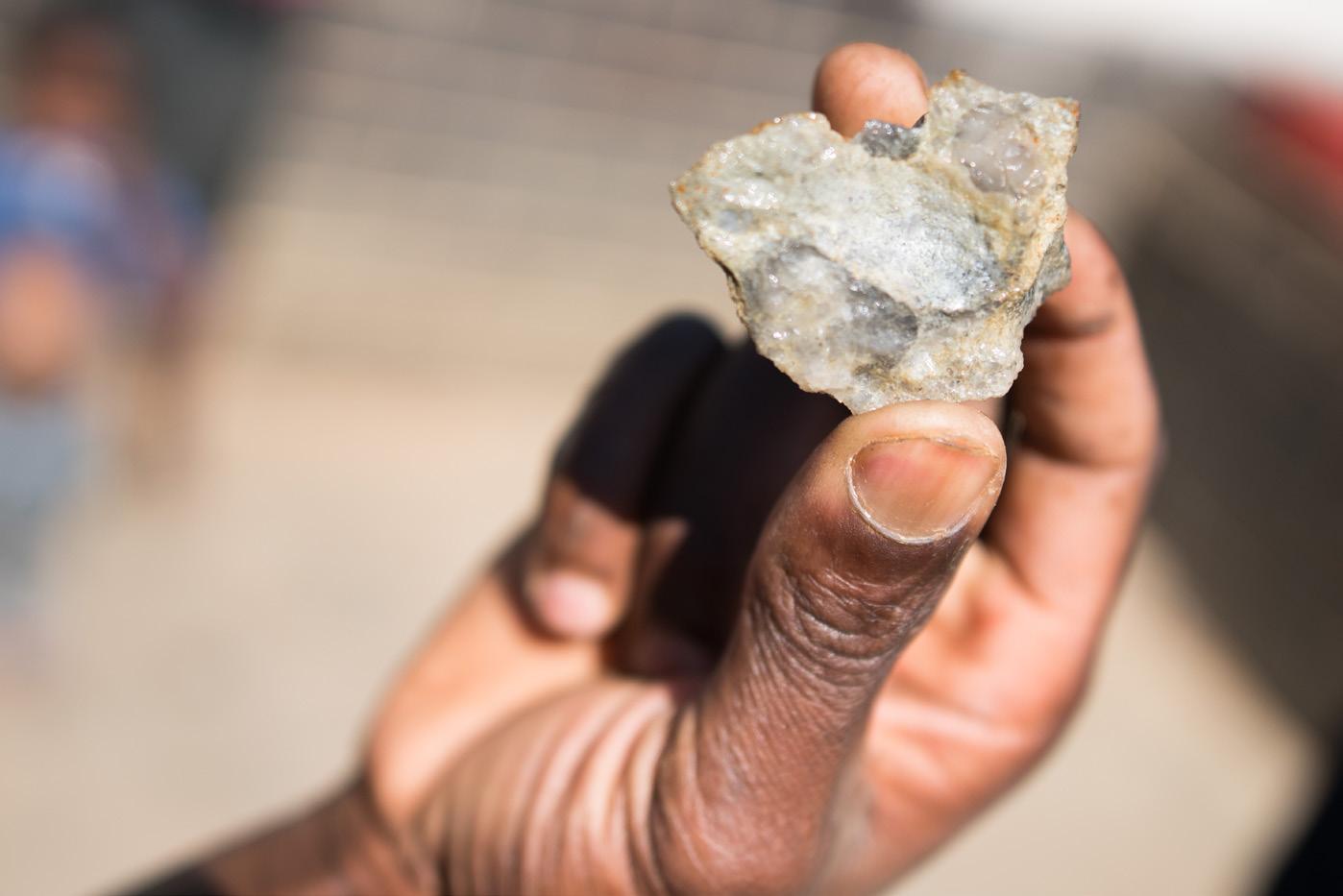
illegal artisanal gold mining industry in the bud. These incidents are also the result of the failure to formalise artisanal mining as a livelihood strategy through appropriate policies and legislative provisions.
FAILED OPPORTUNITIES TO FORMALISE ARTISANAL MINING
Artisanal mining is a labour-intensive form of mining that uses rudimentary tools and technologies. Other sub-Saharan African countries (bit.ly/3C3oxOw) recognise artisanal mining as a formal mining category. These include Burkina Faso, Côte d’Ivoire, the Democratic Republic of Congo, Ethiopia and Kenya.
Foundational policies in the early years of South Africa’s democracy did not support artisanal mining as a permanent livelihood strategy. The 1994 Reconstruction and Development Programme (bit.ly/2G18IuU) simply committed the government to encourage “small-scale mining”. This was on the proviso that safety, labour, environment and health conditions could be maintained. The 1998 Minerals Policy (bit.ly/3dpdLYq) identified artisanal with subsistence mining. It flagged the need for the state to employ resources to “control artisanal mining as effectively as possible.”
The 2002 Mineral and Petroleum Resources Development Act (bit.ly/3dkIdTz) only recognises large- and small-scale mining. It criminalises all mining outside these categories.
In addition, the 2005 Precious Metals Act (bit.ly/3zMfgrc) empowered the South African Diamonds and Precious Metals Regulator to
regulate the acquisition, smelting, refining and beneficiation of gold. This removed the prior involvement of the South African Police Service and has been a key enabling factor for the unregulated gold mining industry.
AN ILLEGAL ARTISANAL GOLD MINING INDUSTRY TAKES ROOT
South Africa’s Witwatersrand goldfields have produced over 30% of all the gold ever mined (bit.ly/3zK7PRa). But in recent decades, largescale gold mining has declined precipitously. Between 2012 and 2019, the industry shed 42 000 jobs (bit.ly/3w1Iotr).
In this context, an illegal and unregulated gold mining industry, among the most lucrative and violent on the African continent (bit.ly/3AgicOc), has taken root.
The Minerals Council of South Africa and police have identified a five-tier hierarchy (bit.ly/3dq4jnQ) in the illegal and unregulated gold mining industry. Illegal miners are on the bottom tier. Gangs and illegal mining bosses (bit.ly/3QGFRN0), licensed bulk buyers (scrap metal dealers and pawn brokers) at national or regional level, front company exporters, and international intermediary buyers and companies are the more significant criminal actors.
The Institute of Security Studies estimates that the approximately 30 000 illegal miners produce R14 billion (just over US$8 million) worth of gold per annum (bit.ly/3SP31mC). From the state’s perspective, this is “lost production”. The United Arab Emirates and Switzerland (bit.ly/3SLi8NF) have been identified as the primary export destinations.
ARTISANAL MINING AS A PERMANENT LIVELIHOOD STRATEGY
Thousands of illegal miners pursue artisanal mining as a permanent, though precarious, livelihood strategy (bit.ly/3QCVoOa). Recent PhD graduate Maxwell Chuma explored this (bit.ly/3SGgey1). He studied the natural, social, financial, human and physical capitals that frame artisanal mining in South Africa. He examined the push and pull factors that drive people into this high-risk activity.
The push factors include a loss of formal employment in the mining industry, lack of alternative employment opportunities, and drought conditions in neighbouring countries. The pull factors include the ease of accessing mineralised land, social capital provided by national and ethnic groups in control of illegal mining, and the relatively stable income.
An informal miner holds up a piece of rock containing flecks of gold Image source: Ground UpShaun Swingler Issue 12 • AFRICAN Business Quarterly 39 MINING
The risks and illegality of the work itself, trespassing, the rampant use of mercury and the criminality of the sector ( bit.ly/3w2Y2ET) make this dangerous and volatile work.
SOLUTIONS
In 2014, the South African Human Rights Commission conducted investigative hearings into unregulated artisanal mining (bit.ly/3vUHoY7). The commission called for the state to institute an appropriate policy and regulatory framework to facilitate and manage artisanal mining as a livelihood strategy.

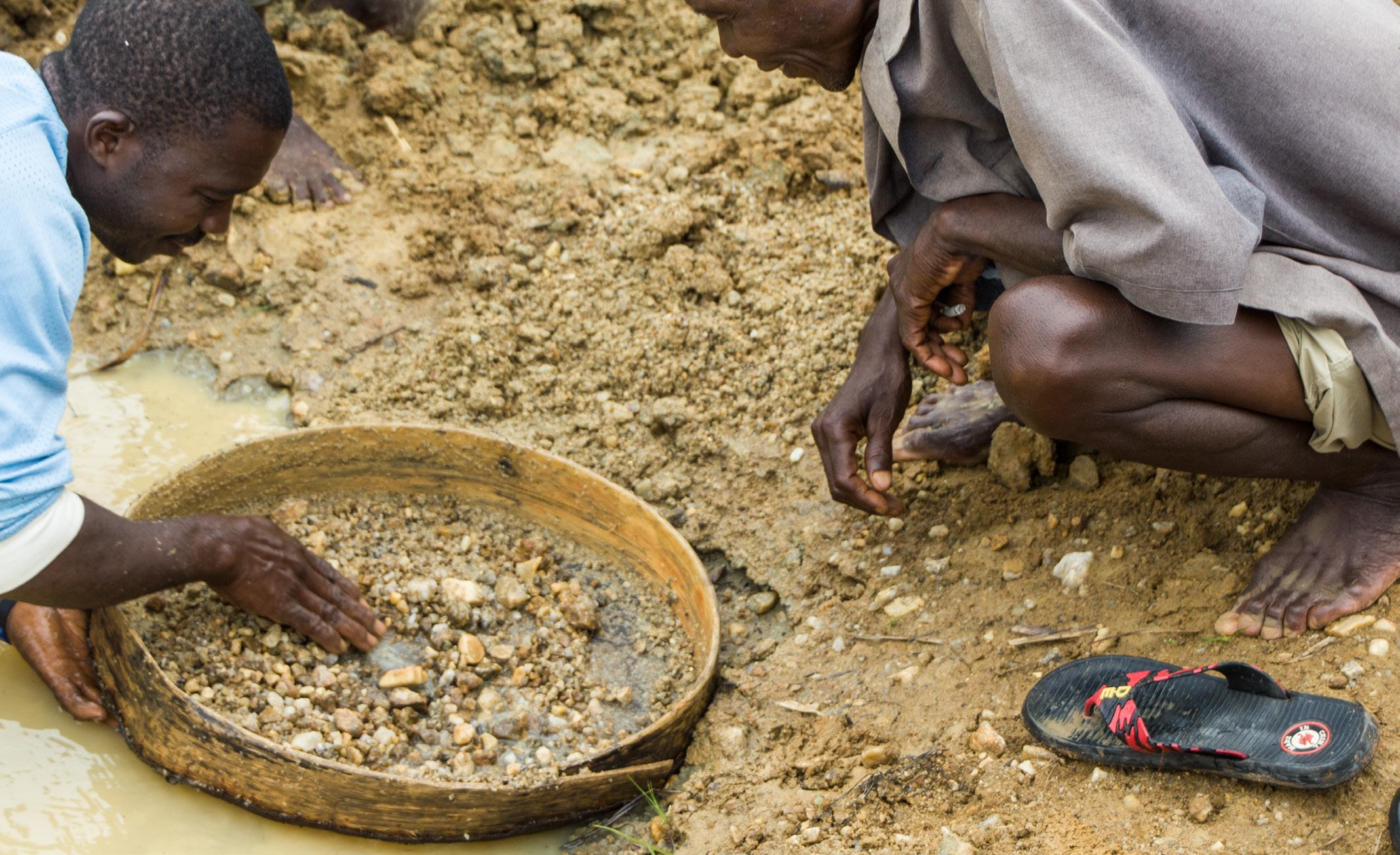
In March 2022, Minister of Mineral Resources and Energy Gwede Mantashe published the Artisanal and Small-scale Mining Policy (bit.ly/3drlHs4). The policy recognises the potential of artisanal mining
as a livelihood strategy. But it reserves the permit system for South Africans. It tasks a National Co-ordination and Strategic Management Team to “halt” illegal mining.
The policy has been criticised for its failure to take public comments into account. It has also been criticised for its fantastical assumption that “platoons of illegal miners will miraculously stop their illegal activities overnight.” (bit.ly/3SJyHJS) Implementing the policy will also require legislative amendments, which may take years to finalise.
Mantashe, as well as the department, must urgently speed up attempts to formalise artisanal mining as a livelihood strategy. The department should properly engage the mining industry and civil society in this process.
At the same time, a co-ordinated transnational effort to break the stranglehold of the criminal syndicates must continue.
Applying a set of principles (bit.ly/3bSpUon) agreed by countries of the OECD (Organisation for Economic Co-operation and Development) on managing supply chains in conflict and high-risk areas could also help manage the problem.
Finally, the powers conferred on the precious metals regulator need to be revisited. The changes need to ensure property security checks on sellers can be conducted and patterns in the supply of gold can be determined. Unscrupulous licensed bulk buyers of illegally mined gold must also be identified and brought to book.
Tracy-Lynn Field

Professor of Environmental and Sustainability Law University of the Witwatersrand
Dr Maxwell Chuma
Facilitator, Moderator and Assessor LearnEx Corporate Training
Unscrupulous licensed bulk buyers of illegally mined gold must be identified and brought to book. 40 AFRICAN Business Quarterly • Issue 12 MINING
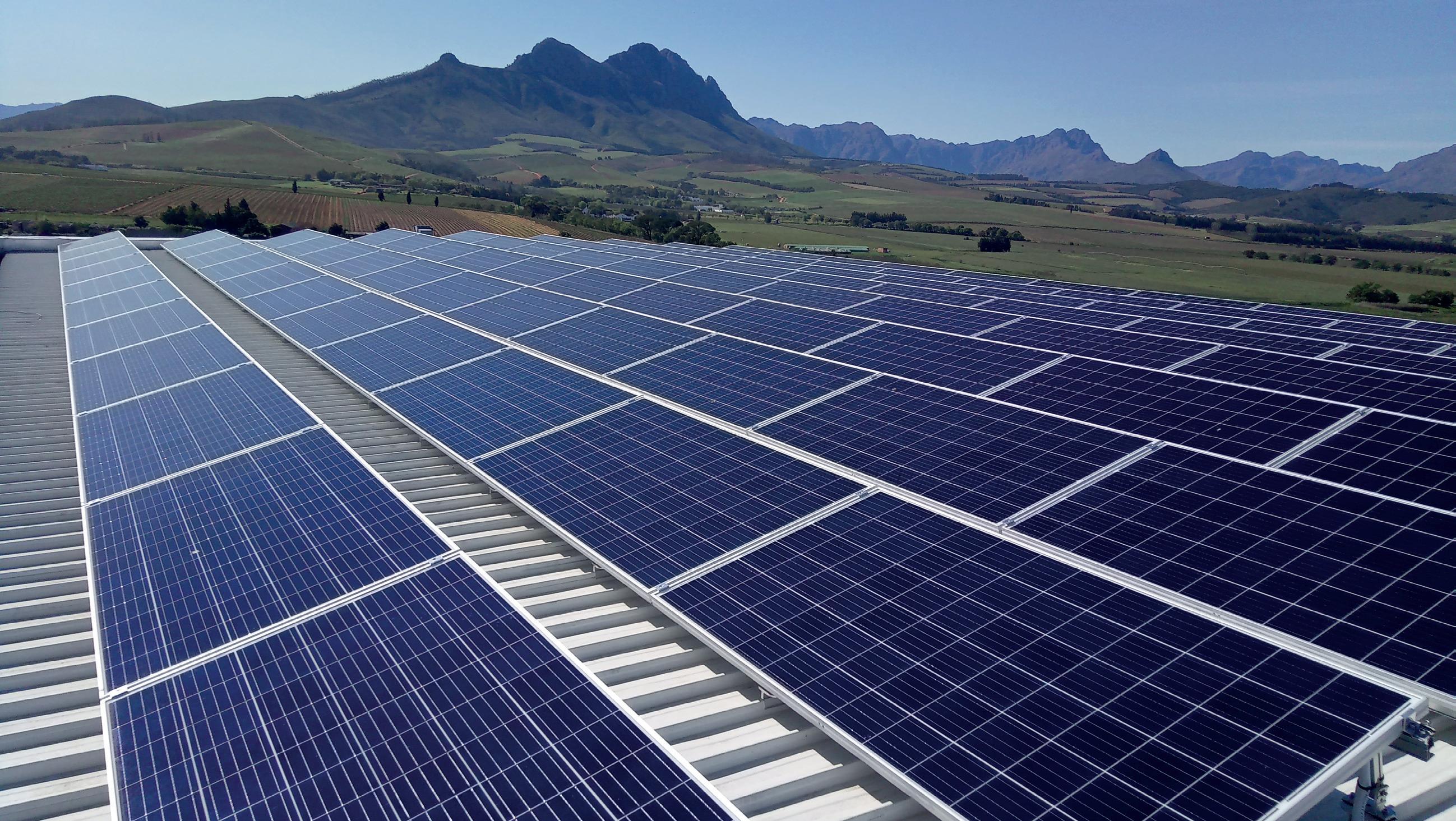






42 AFRICAN Business Quarterly • Issue 12 SUPPLY CHAIN
“Procurement professionals have always managed risk and disruption, and the recent challenges have stretched this profession even further”
MAKE THE RIGHT MOVES
South Africa’s reform process is crucial to improving supply chain performance

The impact of the COVID-19 pandemic, corruption and breach of ethics, rising unemployment, power interruptions and the conflict in Ukraine have created an extremely volatile and uncertain environment around the world—meaning resilience in supply chains has become more important than ever.
According to Malcolm Harrison, CEO of the Chartered Institute of Procurement & Supply (CIPS), the global professional body for procurement and supply professionals, it has become critical for supply chains to be balanced and aligned to deliver agility and innovation, to conserve the planet, mitigate risk and benefit end customers.

In early September 2022, Harrison toured Namibia, Botswana and South Africa, speaking at a number of business breakfasts, round-table discussions and the region’s CIPS graduation ceremony in Johannesburg. Attendees included government bodies, private sector businesses such as Auditor-General South Africa, SAPPI, ABSA, First National Bank, Standard Bank, Department of Justice and Constitutional Development, Transnet, AfriSam, NTP Radioisotopes, Telkom, BP, Rand Water, Trans-Caledon Tunnel Authority, Saint Gobain and the SA Revenue Service.
The gala graduation ceremony was held at the Hilton Hotel in Sandton on 9 September
and attended by more than 230 guests and dignitaries including graduating Members of the Chartered Institute of Procurement and Supply (MCIPS) from Gaborone City Council, Namibia Breweries Limited, Commission for Conciliation Mediation and Arbitration, Transnet, Standard Bank Lesotho, Public Procurement Regulatory Authority: Botswana, Eskom, Shell, Northern Cape Department of Education, Heineken South Africa, Eswatini Water Services Corporation, Ministry of Tourism, Liberty, eThekwini Municipality, Gauteng Provincial Treasury, The Foschini Group and Rand Water among others, as well as family and friends of the graduates.
CIPS has more than 3 000 full MCIPS members in South Africa as fully trained professionals, and provides universities, study centres and students the opportunity to access teaching and learning of a worldclass professional qualification accredited by the South African Qualification Authority. This support for the procurement and supply chain profession not only contributes to best practice in ethics and sustainability but also contributes toward an ethical and sustainable society, improved economy and rewarding careers for individual citizens.
Harrison says the considerable challenges occurring in southern Africa have not escaped South Africa, which was already in a precarious economic position even prior to COVID-19 arriving on its shores, despite the wealth of resources, talent and possibilities the country offers.
Issue 12 • AFRICAN Business Quarterly 43 SUPPLY CHAIN
Malcolm Harrison, CEO of CIPS
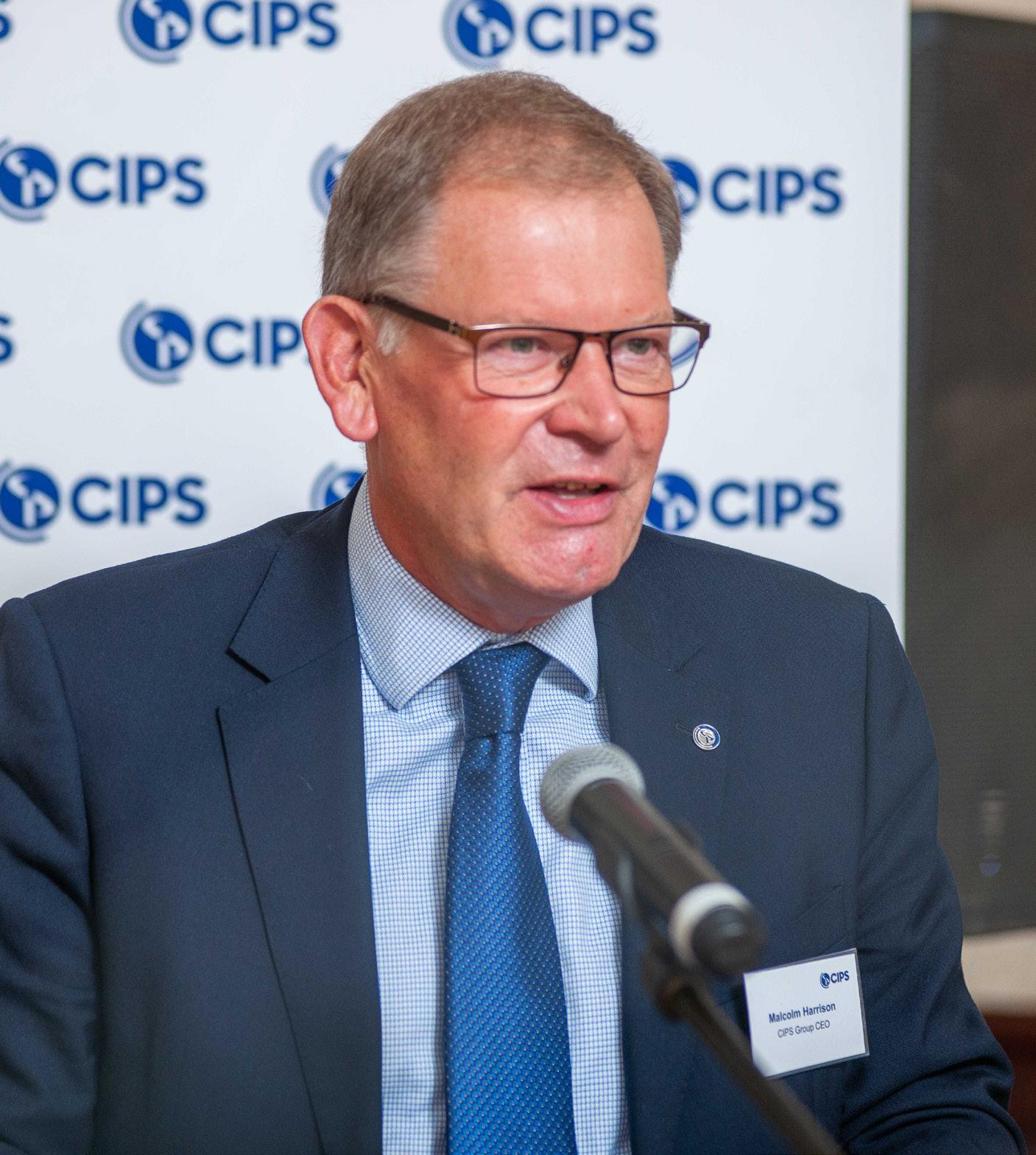
In 2019, the country’s economy grew by only 0.1%, partially caused by the resurgence of Eskom’s loadshedding; and while there has been a slight recovery, gross domestic product growth is still only expected to be 1.7% over the medium term.
Coupled with the global impact of volatile trade relationships around the world hampering the smooth running of supply chains, the situation is daunting—but procurement and supply professionals are rising to the challenge, Harrison says.
“Procurement professionals have always managed risk and disruption, and the recent challenges have stretched this profession even further, but trained professionals are adept at finding solutions and building resilience. Our professionals understand true value across the supply chain, which is not just about cost efficiencies. The most expensive item you will ever buy will be the one that doesn’t turn up, and our professionals understand that other issues, such as ensuring supply, come into play when managing disrupted supply chains.”
After years of corruption and state capture, the South African government is attempting to reform, addressing the
professionalisation of public service first and raising skills levels in the workforce, which CIPS is providing support on.
The reforms will result in a more ‘business-friendly’ environment, create a more transparent environment for suppliers to have more success in bids and tenders, and reduce the level of disruption and lack of clarity as much as possible.
While Harrison notes the Public Service Act Amendment Bill and the Public Service Commission Bill are key to giving effect to the government’s efforts to institutionalise professionalisation of the public service, these critically important interventions are yet to be concluded and signed into law by President Cyril Ramaphosa.
On another note, Harrison believes digitisation of government systems will also go a long way in driving procurement reforms, creating effective communication platforms that can be utilised by the state to limit corruption.
“Digital transformation will increase public value and trust, lead to greater transparency, improve citizen participation, stimulate proactive service delivery, and enable economic development and growth,” he adds.
Harrison tackled many issues during his visit, also mentioning sustainability. “The reality is the world is running short of vital resources at a fast rate. Wildfires, droughts and floods are a regular occurrence, and we can expect to live with pandemics for the foreseeable future. Now is the time for procurement teams to get a handle on the risks to their supply chains.”
The 2021 Intergovernmental Panel on Climate Change Report’s declaration of “code red for humanity” has made it a business imperative to increase the focus on actions to establish more sustainable supply chains.
“In many organisations, 90% of the impact on the climate is in the supply chains, not from within the walls of an organisation’s activities. No organisation will address climate change or truly have a sustainable business model unless they focus on addressing these issues in their supply chains,” Harrison says.
For procurement professionals to not only negotiate but overcome the many challenges disrupting supply chains, both in South Africa and globally, Harrison recommends they:
• Embrace technology and seek out new opportunities to find better ways of working, and drive greater transparency for risk and sustainability;
• Understand the available data and become a go-to person for stakeholders to gain valuable insights and information;
• Embed themselves within the business and align with stakeholders’ goals and language;
• Add true value to their organisation, not just in terms of cost efficiencies but the good they can do in society, which includes the contribution to tackle climate change; and
• Seek out opportunities to embed sustainability and local value within sourcing projects.
“Procurement professionals are in a very privileged position to make significant changes for good, and should use their knowledge, skills and influence over supply chains to make a difference now and for future generations,” Harrison concludes.
44 AFRICAN Business Quarterly • Issue 12 SUPPLY CHAIN
Digitisation of government systems will also go a long way in driving procurement reforms
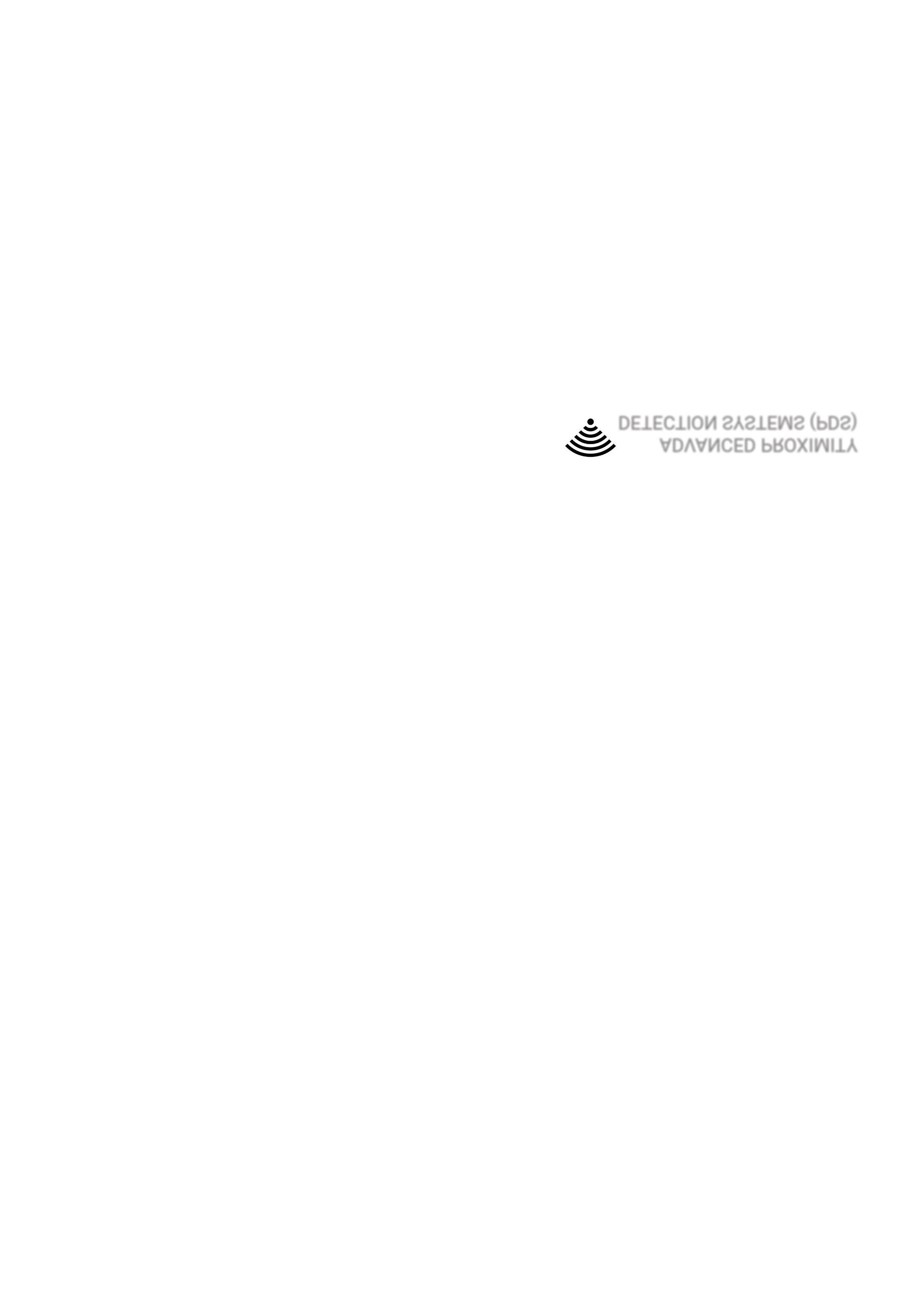





FOSTER A CULTURE OF LEARNING



46 AFRICAN Business Quarterly • Issue 12 SKILLS DEVELOPMENT
Welcome to the workforce of the future, where employees are engaged, passionate and creative. They have the right skills, and they can upskill on demand. They are the intrapreneurs and innovators powering the engines of the organisation. But they are also not quite here yet...
The global skills gap is widening and many companies are struggling to find the talent they need to thrive. The Employment Outlook Survey (bit.ly/3B3awPO) found that the talent shortage is at its worst point in 16 years, with 75% of employers reporting difficulty filling vacancies.

At the same time, a recent analysis by the Harvard Business Review (bit.ly/3B3sNg0) found that millions of young people are struggling to find work. While the youth population (ages 15 to 24) grew 30% between 1999 and 2019, their labour force participation dropped by some 12% over the same period.
To be sure, it is a complex environment that asks for companies to adopt innovative approaches that will allow them to not just curate the right skills but grow employees as well.
That said, it is often easier said than done. While the will may be there, companies can fall short in terms of offering employees what they are looking for. In the new world of work, a substantial salary may not be enough to attract talented people, as today’s tech-savvy workers also value the potential to disrupt traditional systems and establish new ways of doing things.

Not only do they place far greater emphasis on creativity but they also firmly believe in striking a healthy work-life balance—the thinking being that tired, unhappy souls are far less likely to produce ground-breaking work. No longer can companies ignore this aspect, particularly when so many became accustomed to working at home during the COVID-19 pandemic.

Innovative approaches that will allow companies to not just curate the right skills but grow employees as well
AFRICAN Business Quarterly 47 SKILLS DEVELOPMENT
The global skills gap is widening and many companies are struggling to find the talent they need to thrive.
If organisations hope to succeed, both in the present and long term, they need to reimagine operational thinking and pay more attention to employee growth through an uptake of new skills and challenges. Investing in employees is guaranteed to yield desired results, both for the company and individual.

These are some important points to consider when seeking out the right talent and fostering a culture of learning:
RECOGNISE YOUR SKILL GAPS SO YOU CAN PLAN AROUND THEM
Map what skills your company needs now to those you will need in the future, and use those to set out how you plan to manage these gaps. The LinkedIn Skills Graph (bit.ly/3TvPeRY) offers an impressive breakdown of skills. This and other similar mapping platforms can be used to establish visibility into your skills challenges so you can plan ahead effectively.
INSPIRE YOUR PEOPLE.
Employees may lack the skills you need, but they may also lack motivation to invest into skills development. You need to show them how they can actively grow their careers through your skills development opportunities and not make this feel too much like extra hard work. Motivate, demonstrate and engage. Too many employees leave their place of work because of leaders who are not actively engaged with day-to-day operations, thereby creating a gulf between management and employees. Those who lead by example will always hold more sway than those who simply talk a good game. High levels of involvement will see people migrating to your learning platform with intent.
MAKE LEARNING ACCESSIBLE.
As Gartner points out (gtnr.it/2MWS4Rq), self-service development is a smart move, but quality development experiences are a better way of engaging with employees rather than overwhelming them. The research firm highlights that connected learners who grow through collaborative learning are more likely to be high performers.
USE A CURATED LEARNING PLATFORM.
This is the best way to create cohesive and immersive learning experiences that help employees and the business grow together. These platforms can be customised (bit.ly/3cHlwJb) to meet very specific needs, or to create skills development solutions that grow
with the business. Importantly, this process can be fun. An onboarding experience that New Leaf Technologies developed for a financial services entity consisted of multiple learning activates, software simulations, scenarios and immersive content. As new employees worked through the gamified experience, they were rewarded with Lego pieces that they could customise and tailor to their own unique personalities. Each time an activity threshold was reached, the employee could select a hairstyle, an outfit or accessory until their new joiner evaluation was completed. When they started on their first day of work, the personalised Lego avatar was presented to them on a plaque with information about their own skills, likes and dislikes. This served as an excellent icebreaker when they were first introduced to their new leagues.
Michael
Managing director New Leaf Technologies
Hanly has been in the e-learning industry for more than 10 years, overseeing a variety of projects in the corporate training space. He has also developed high-level strategic eLearning programmes across a variety of sectors

Hanly
48 AFRICAN Business Quarterly • Issue 12 SKILLS DEVELOPMENT
Employees may lack the skills you need, but they may also lack motivation to invest into skills development.
Only 2% of the African penguin population remains in the wild.
Only 2% of the African penguin population remains in the wild.
For just R600, you can adopt and name an African penguin for yourself or as a unique gift for a loved one.
For just R600, you can adopt and name an African penguin for yourself or as a unique gift for a loved one.
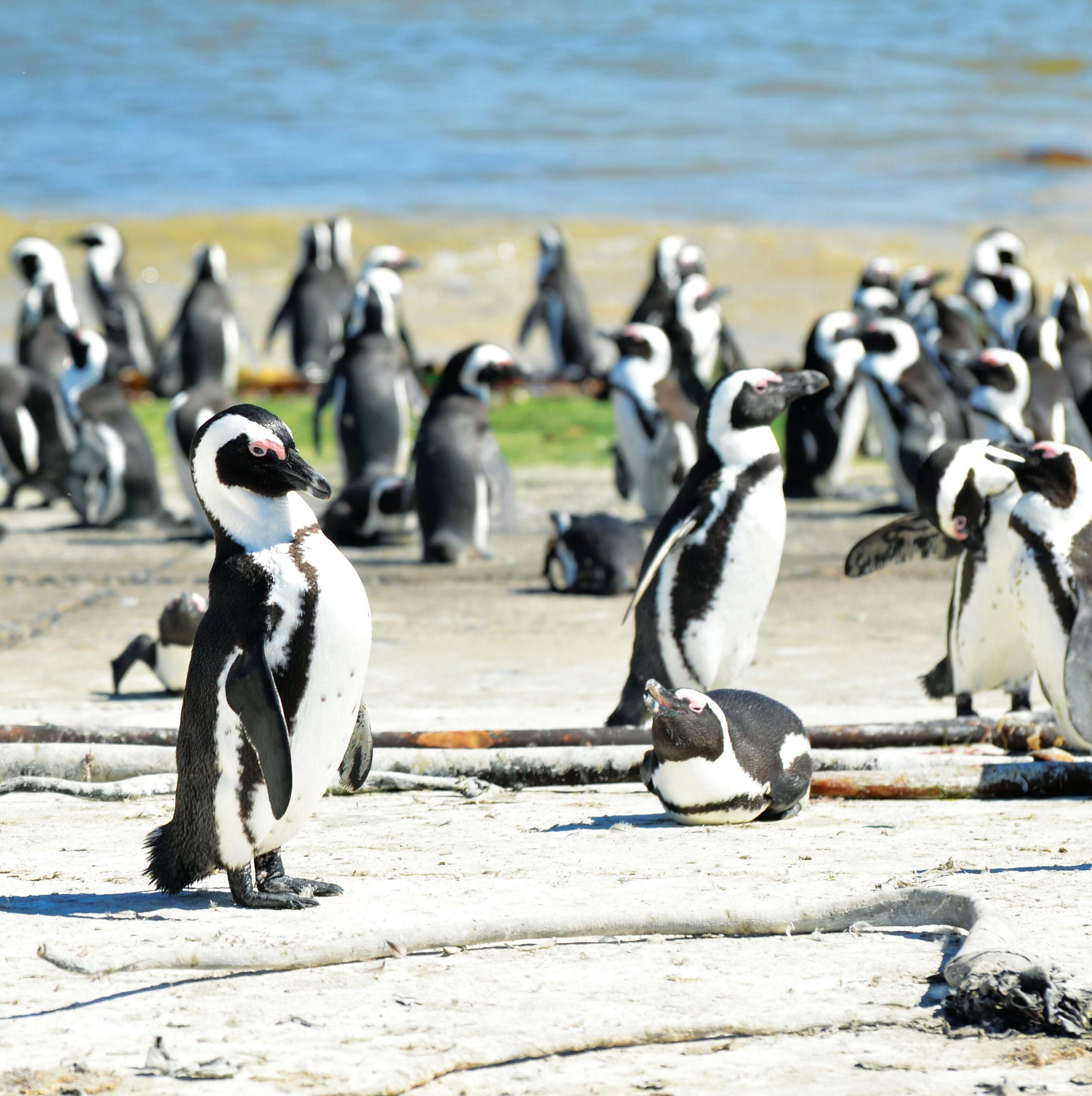
ADOPT -APENGUIN
ADOPT -APENGUIN
You can’t take it home but your donation will contribute to specialised rehabilitation, medication and fish feeds for an endangered African penguin in SANCCOB’s care.
You can’t take it home but your donation will contribute to specialised rehabilitation, medication and fish feeds for an endangered African penguin in SANCCOB’s care.
DONATE and help SANCCOB save the endangered African penguin from extinction.
DONATE and help SANCCOB save the endangered African penguin from extinction.
End seabird extinction. Together.
End seabird extinction. Together.
www.sanccob.co.za
www.sanccob.co.za
The Southern African Foundation for the Conservation of Coastal Birds is a non-profit marine conservation organisation. 003-134 NPO | Registration No. 2001/026273/08
The Southern African Foundation for the Conservation of Coastal Birds is a non-profit marine conservation organisation. 003-134 NPO | Registration No. 2001/026273/08
Tel: +27 21 557 6155 | Fax: +27 21 557 8804 info@sanccob.co.za
Tel: +27 21 557 6155 | Fax: +27 21 557 8804 info@sanccob.co.za
SANCCOB Saves Seabirds @SANCCOB SANCCOB
SANCCOB Saves Seabirds @SANCCOB SANCCOB
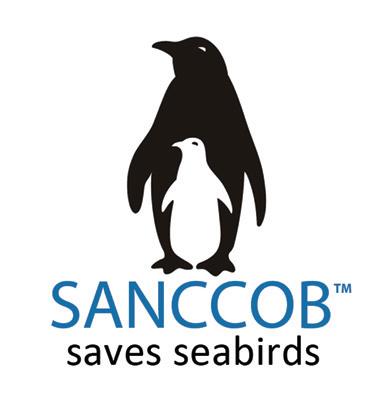

SAVING SEABIRDS SINCE 1968
©Emma
Strumpman
SAVING SEABIRDS SINCE 1968
©Emma Strumpman
IN A NEW DIRECTION
The first electric minibus taxi is coming to South Africa—with the aim of accelerating green mobility adoption

50 AFRICAN Business Quarterly • Issue 12 TRANSPORT
As the fuel price hits historic highs, commuters are starting to feel the pinch in increasing transport fares. The typical South African commuter already spends up to 40% of their income on transport, and the minibus taxi sector is still struggling from the impact of the last two years on their operations.

However, relief could be possible from an unlikely source: electric minibus taxis. Privately owned minibus taxis are ubiquitous in sub-Saharan Africa and carry more than 70% of daily commuters.

For the last five years, GoMetro—a global mobility management technology company with its head office in Cape Town—has collected data on taxi operations across South Africa. In order to advance e-mobility development locally, GoMetro has convened a project team of innovative companies and researchers to launch a demonstrator project to test the first minibus in South African conditions by January 2023.
The project team—consisting of GoMetro, MiX Telematics, HSW, ACDC Dynamics and various entities within Stellenbosch University’s Faculty of Engineering—will conduct rigorous and extensive testing in and around the town of Stellenbosch, as well as put the electrification of the minibus taxi sector firmly on the national agenda by means of an educational roadshow in all nine provinces in the course of 2023.
A number of viable electric minibus taxi models from various markets have been identified, the first of which will be on South African shores by the end of the year. The acceptance and practicality of the model will be extensively tested with taxi owners and drivers, in order to identify the usecases and conditions where an electric taxi would make the most sense.
“Taxi drivers and owners are very interested and intrigued by the idea of an electric minibus taxi, and are constantly asking us when the first electric minibus taxi will arrive on our shores,” says Justin Coetzee, GoMetro CEO. “We have built valuable relationships with a large number of taxi associations, and the ever-increasing fuel price is a massive concern among owners, drivers and riders alike, as there does not seem to be any relief in sight. The industry has long acknowledged that business as usual will not suffice—and that change is required, especially after the effects of COVID-19.”
The aim of testing different models over the coming months is to establish which vehicle will be best suited to the South African public transport industry, and what spectrum of operations are conducive to the range capabilities of the vehicles. In addition to testing the vehicle itself, the project team wants to engage with the automotive sector and policymakers to encourage proactive discussions with the government around the reduction of duties and the promotion of the adoption of electric vehicles in the transport sector.
Issue 12 • AFRICAN Business Quarterly 51 TRANSPORT
A number of viable electric minibus taxi models from various markets have been identified
“Since MiX Telematics is at the forefront of innovation and leveraging new technologies to improve fleet operations and efficiency, we are very excited to be part of this pioneering initiative,” says Catherine Lewis, executive vice-president of technology at MiX Telematics. “We have seen the adoption of electric and hybrid vehicles increasing exponentially in Europe, and so look forward to learning how we can support these solutions in the South African context.”
Professor Thinus Booysen, research chair in the Internet of Things at Stellenbosch University, will lead the team of testing experts. “The informal taxi sector must transform to electric vehicles, but little is known about their energy requirements. This unknown is overshadowed by our energy scarcity and coal dependence on the electricity supply side. This collaborative project will ensure we are prepared for and carefully manage this exciting transition.” The electric minibus taxi will be showcased at the Stellenbosch University campus.
According to Dr Bernard Bekker, associate director of Stellenbosch University’s Centre for Renewable and Sustainable Energy Studies, the future electrification of the transport section in South Africa raises significant technical and regulatory challenges related to integrating electric transport into our existing grid infrastructure. These challenges are in many ways unique to South Africa, where minibus taxis will potentially represent a much larger proportion of the future
electrical fleet than, for example, Europe or the United States. “The availability of a reallife electric minibus taxi to inform our research activities will provide very valuable inputs into addressing these challenges.”
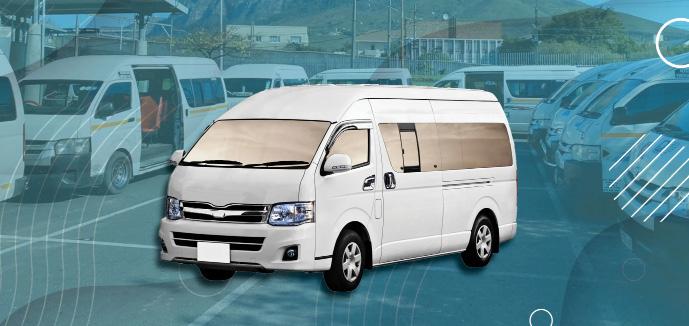
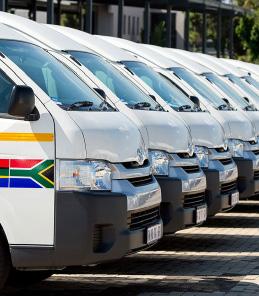
Mario Maio, founder and managing director of ACDC Dynamics, adds: “The minibus taxi is ubiquitous in the South African landscape, moving millions of people over the years, contributing to getting South Africa to work—unfortunately, in an environmentally unsustainable manner. ACDC Dynamics is proud to be part of the change that will be brought to this industry as it adopts electric/ battery powered taxis through our capabilities to supply battery-charging networks across the country.”
Says Ryan Webb, managing member of HSW, “HSW is passionate about bringing manufacturing local. The Western Cape has all the technical skills and resources to set up manufacturing facilities in support of such an initiative. There are already existing electronic manufacturers that have world-class capabilities in the manufacturing of electronic products—such as Barracuda Holdings, which is one of HSW’s key customers—as evidence that this type of hi-tech manufacturing technology is already available locally.”
Electric vehicles are heralded as a silver bullet to globally decarbonise the transport sector. The development of low-carbon transport in cities is part of the global agenda to delay climate change and relates to many of the United Nations’ Sustainable Development Goals. While EV sales have increased substantially in the Global North and many global vehicle manufacturers plan to stop production of combustion engines as early as 2030, in sub-Saharan Africa the transition to EVs continues to be painstakingly slow. This research project aims to accelerate this transition to cleaner and greener mobility.
Mariska Burger Chief Marketing Officer GoMetro
52 AFRICAN Business Quarterly • Issue 12 TRANSPORT
Southern African Energy Efficiency Confederation (SAEEC) was founded in 2002 and we celebrate 20 years of promoting Energy and Water efficiency in Southern Africa. We are the local chapter of the Association of Energy Engineers (AEE), an International body with some 20,000 members and with chapters in over 100 countries.
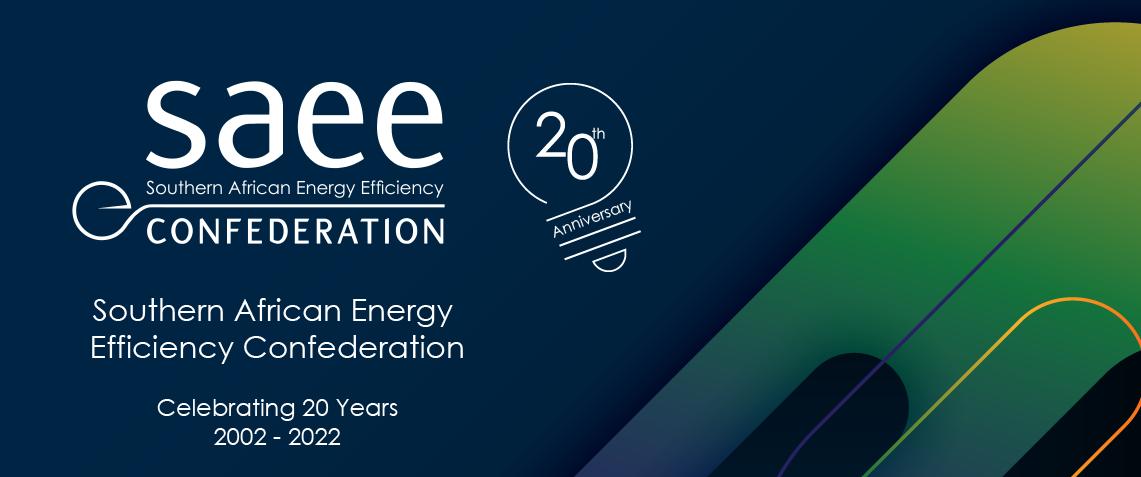
The SAEEC is a membership-based association with over 1,200 active members. Our members are primarily professional engineers, from all the different disciplines of engineering. As part of the ethos of the SAEEC, we offer training courses to our members, this is done through our training partner The Institute of Energy Professionals (IEPA). We offer regular webinars for our members and cover Measurement & Verification sessions, financing of energy projects, and all relevant information engineers require in industry and for running a business.
The SAEEC is the umbrella body that consists of associations and specific user groups that play an important role in sustainably developing the energy industry in South Africa.
> The Measurement & Verification Industry of South Africa (MVCSA), with the key objective being to raise and encourage professional standards and continuous development.
> The ESCO Association of South Africa (EASA) serve to promote the Energy Service sector in South Africa.
> The South African Females in Energy Efficiency (SAFEE) promoting the development opportunities for women in the Energy Management sector.
> The South African Youth in Energy Sector (SAYES) serves the young energy professionals who will lead and promote the energy industry, with policies to be written, just systems to be implemented and to be maintained by them.
Our forthcoming Events 2023 with the SAEEC Celebrating 21 years of promoting Energy Efficiency:
The SAEEC hosts an annual Conference, where engineers are invited to attend and present technical papers, with the focus on the efficient use of energy and water. There is much knowledge that is shared, challenging ideas exchanged and promoted at this event. This is a great opportunity offered for growth and development of people and businesses in Southern Africa.

Our annual ENERGY AWARDS, to take place in March 2023, where engineers are acknowledged for the energy projects they have successfully completed, and we recognise their efforts that lead the industry forward.
The winners are entered into the International Energy Awards organised by the AEE at their annual International Energy Conference.
A prestigious event.
The GO2 Energy Digital Connect Series: the directory serves as an easy access to source categories of skills and services, the product flip book and the Technical Journal – issue 3 to be published in February 2023. We invite engineers to publish their papers in our technical journal. The journal is circulated throughout Sub-Saharan Africa and is well read and received.
We invite you to join the SAEEC and participate in our exciting events and showcase your success stories all in the spirit and advancement of the energy industry in Southern Africa. Please visit our website www.saeeconfed.org.za

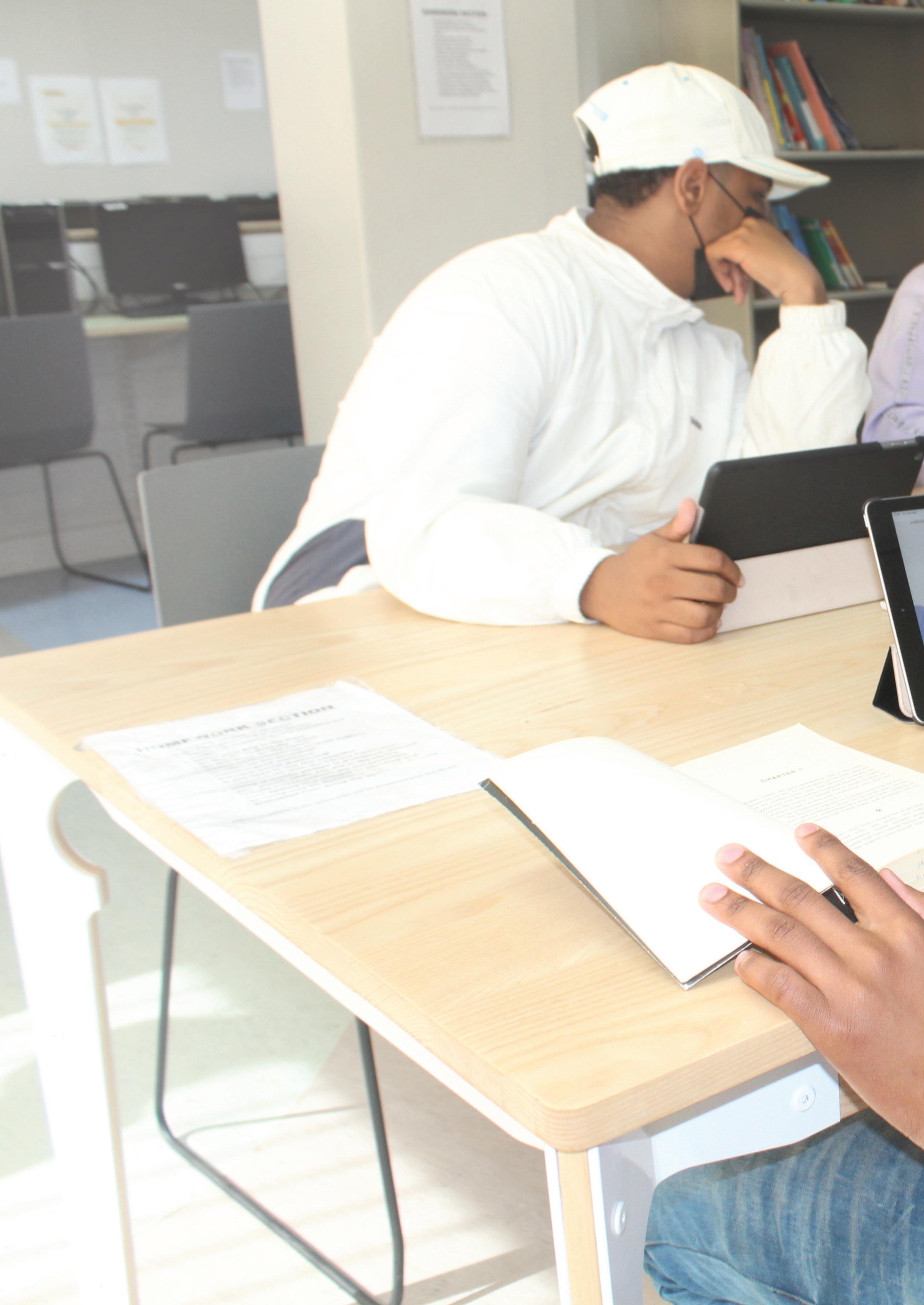

RISING ABOVE CIRCUMSTANCES Decade-long partnership achieves massive successes in rural education development 54 AFRICAN Business Quarterly • Issue 12 EDUCATION

Issue 12 • AFRICAN Business Quarterly 55 EDUCATION
“We can overcome our high unemployment rate so that our beautiful country can meet its true potential.”
Apartnership between youth development foundation Afrika Tikkun (afrikatikkun.org) and the Datatec Educational and Technology Foundation has overcome insurmountable odds, resulting in great success in rural education.
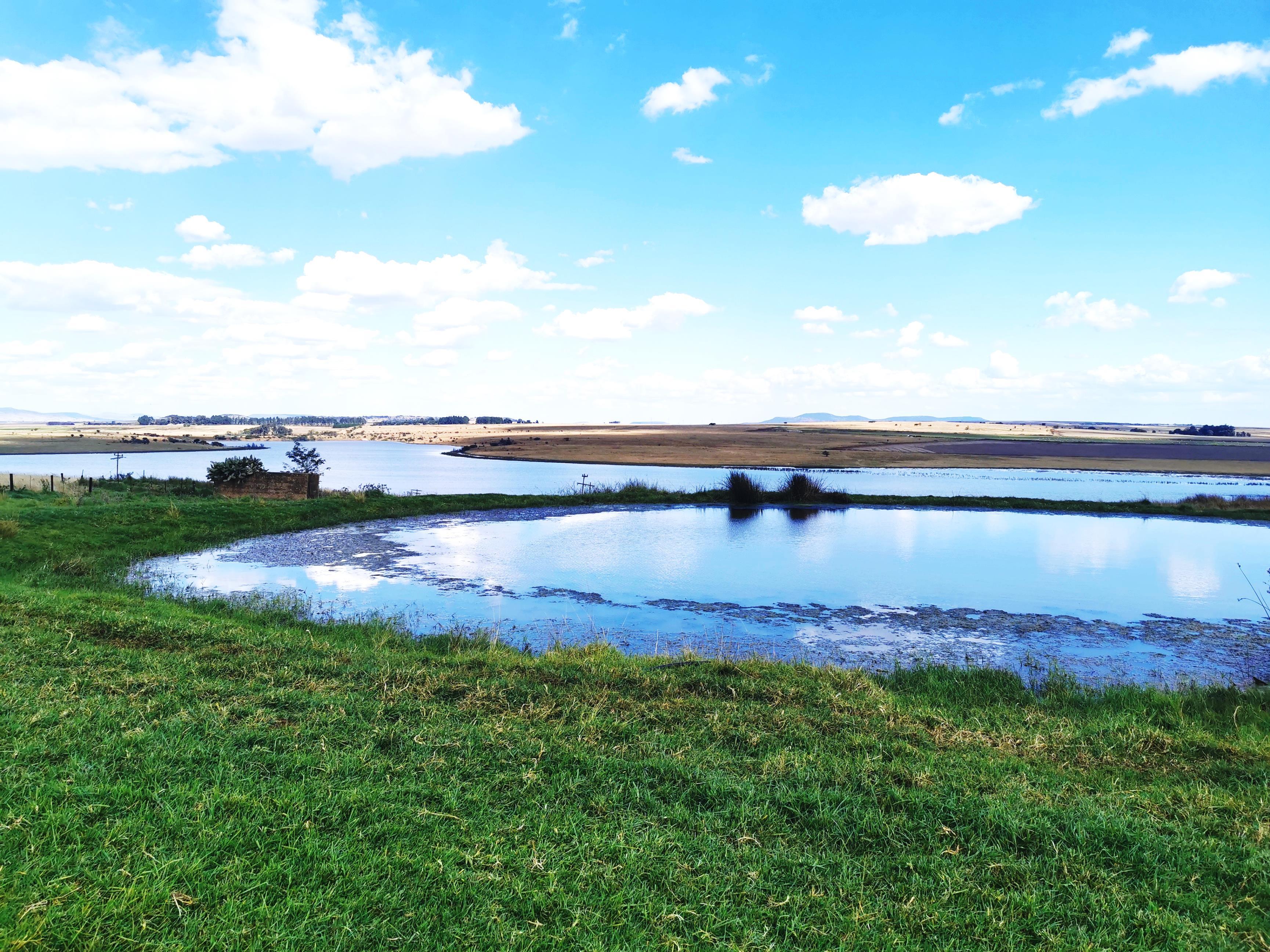
This partnership—which is dedicated to transformative development and reducing youth unemployment in South Africa by tackling socio-economic barriers that make it difficult for young people to access the economy— has benefited between 8 000 and 10 000 participants a year.
The decade-long relationship includes a contribution of over R3.7 million from Datatec, which has helped upgrade technological capabilities and support infrastructures at the Afrika Tikkun Centres of Excellence: vibrant spaces where information relating to education, skills, careers and life is shared.
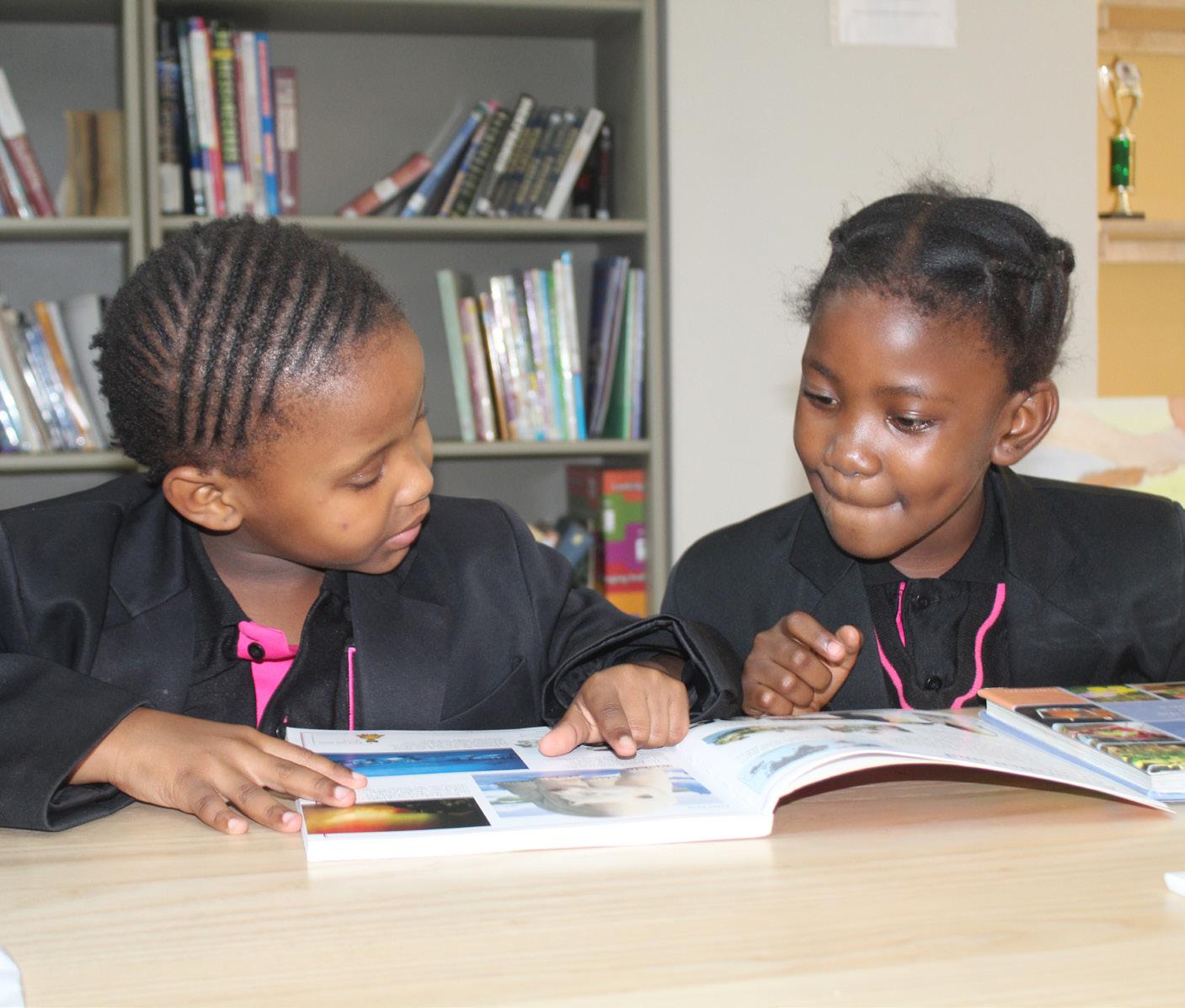
Datatec, a Johannesburgbased multinational information and communications technology solutions and services group, recognises that education is the foundation on which a successful economy is built. The company therefore funds educational organisations serving underprivileged communities across the country through its Datatec Educational and Technology Foundation.

“Funding from the Datatec Foundation has been crucial to digitising Afrika Tikkun’s various programmes and enabled our beneficiaries to become computer-literate and access emails and the Internet,” says Afrika Tikkun CEO, Alef Meulenberg. “This small but significant step allows beneficiaries to move away from a mindset that their communities only comprise unemployed and unskilled people, as they are now imbued with the skills to become self-sustaining.”
In line with the organisation’s 2020/21 plan to offer programmes through a blended learning approach, a learner management system was purchased through the My Learning Hub platform to upload educational content, and is being adapted to incorporate a more South African curriculum.
Afrika Tikkun was also able to digitise content for its core programmes including Early Childhood Development, Child and Youth Development, and the Youth Accelerator Programme. Acquisition of learning devices, in particular tablets, is ongoing.
Participants in these programmes are offered a selection of basic computer literacy programmes ranging from the fundamentals at Grade R and primary school level, to the basics of Microsoft Office Suite and research of career, bursary and tertiary opportunities at high school level.
Chairperson of the Datatec Educational and Technology Foundation, Maya Makanjee, said the investment in Afrika Tikkun has been rewarding at so many levels. “To see young people not only rise above their circumstances but excel professionally is exactly what we set out to achieve at the Foundation. By continuing along this path, we can overcome our high unemployment rate so that our beautiful country can meet its true potential.”
Datatec Educational and Technology Foundation www.datatec.com
SUCCESS STORIES
Teboho Shibambo moved on to admin and data capturing, and today consults for a car sales portal, Afrika Tikkun, PictureNet Africa and Solve IT while also supporting a number of private companies in and around Johannesburg.
Nkosinathi Lusiba arrived as a curious young man, and through the programme learnt how to build LANs, communicate with various ISPs and suppliers, and set up servers. Today he is self-employed and consults for the City of Cape Town and various schools.
Another success story is found in Mozambican siblings Jessa and Roberto Miambo. They learnt how to run cables, crimp and punch cables, build LANs and gained a greater understanding of hardware and software solutions. Jessa is now in Maputo, building workshops to help young entrepreneurs in business, while Roberto is head of IT at Niassa Local Government Municipality.
Despite the crippling effects of the COVID-19 pandemic, Afrika Tikkun’s partnership enabled it to reach 16% more young people in 2020 than it did in 2019.
56 AFRICAN Business Quarterly • Issue 12 EDUCATION





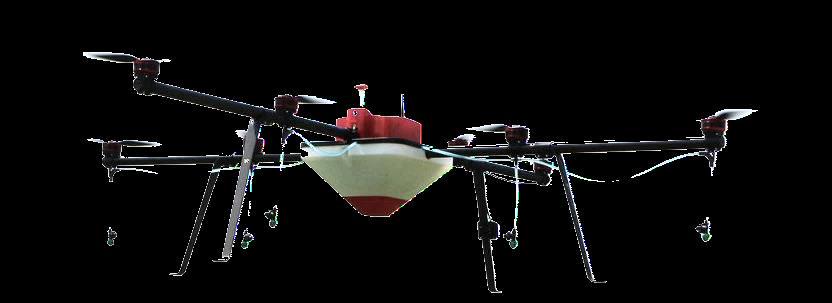










• DIY - Do It Yourself • Target Specific Areas • Treatment within ONE day • Non-toxic & Eco-friendly • Irrigation System Safe • Hoof Resistant 1 3 2 086 199 5036 www.damitdamsealer.co.za
HUGE OPPORTUNITIES HUGE RETURNS
Africa50 calls for global investments in African infrastructure, as there is still much to do to meet the continent’s needs

58 AFRICAN Business Quarterly • Issue 12 INFRASTRUCTURE
“Private investment is key to meeting our objective to equip African countries with sustainable infrastructure.”
African Development Bank Group (AfDB) president and chairperson of the Africa50 Board of Directors, Dr Akinwumi Adesina, has highlighted the crucial role that Africa50 is playing to help bridge Africa’s infrastructure financing gap.
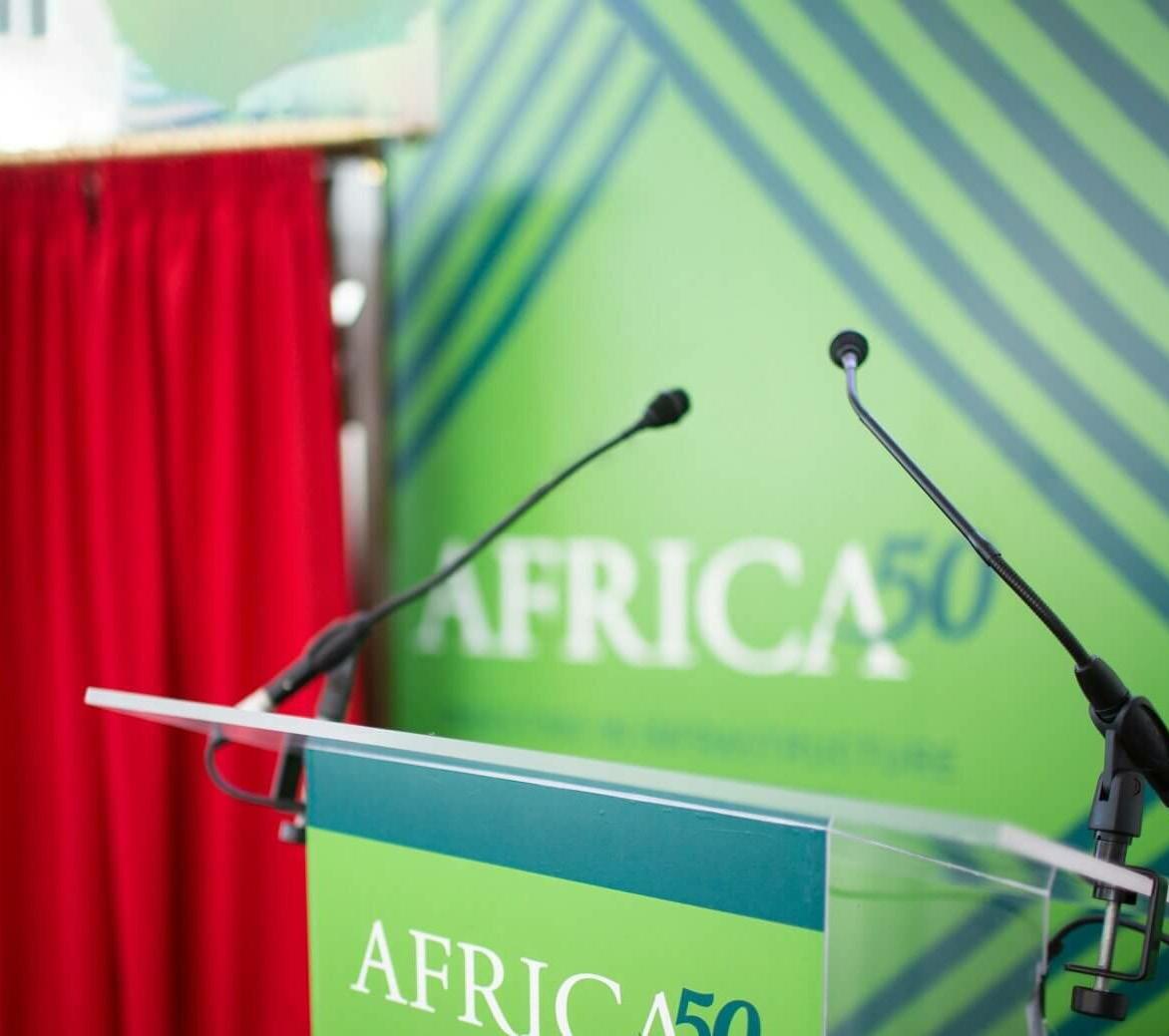
Adesina was speaking at the opening session of Africa50’s general shareholders meeting in Marrakech earlier this year. He told delegates that Africa50 had invested $5 billion in 16 private-sector focused investments in six years. “I am proud of Africa50. It is a first-rate institution, pushing the frontiers of development on infrastructure in Africa, preparing projects, taking them to commercial viability, and financing them.”
Africa50 CEO Alain Ebobissé agreed: “Africa50 is a catalyst and plays a critical role. Private investment is key to meeting our objective to equip African countries with sustainable infrastructure.”
Moroccan Minister of Economy and Finance Nadia Fettah Alaoui said the Africa50 general shareholders meeting was taking place at a time when the COVID-19 pandemic had shown Africa’s vulnerability. “There can only be a prosperous world with a prosperous Africa. Together, we are stronger and can go further with funds like Africa50 as a catalyst for financial integration.”
The AfDB, Africa50 and the African Sovereign Investors Forum—chaired by Morocco’s strategic investment fund, Ithmar Capital— signed a memorandum of understanding to collaborate on the development of green and climate-resilient infrastructure projects across Africa. The partnership expects to mobilise significant funding from African institutional investors toward sustainable infrastructure.
According to Adesina, Africa’s growth and development depended on its ability to massively attract investments into infrastructure across energy, transport, ICT, healthcare, and water and sanitation. The AfDB had already invested more than $44 billion in these sectors.
He added, however, that there was still much to do to meet Africa’s infrastructure needs. “We must tap all possible funding sources,” he stressed. “That is why the African Development Bank helped establish Africa50 to bring together key stakeholders including private sector investors, development finance institutions and infrastructure developers. Its project finance arm provides long-term finance, while its project development arm adds value by generating a pipeline of viable projects.”
Adesina highlighted Africa50’s investment in the Kinshasa–Brazzaville bridge project, and the Kigali Innovation City digital infrastructure project, which will create over 50 000 jobs.
Africa50 is supporting Africa’s green transition to cleaner renewable electricity from solar, thermal and hydropower in partnership with the AfDB and other institutions
through the Alliance for Green Infrastructure in Africa (bit.ly/3yUlR2l).
Africa50’s general shareholders meeting took place on the eve of a four-day US–Africa business summit in Morocco. Speaking in Marrakech, United States Corporate Council on Africa president, Florizelle Liser, stressed the importance of US investor engagement with the African continent. She said: “International investors are worth $100 trillion, and 45% of that total comes from US investors. They can be a little bit timid about investing in Africa, but our role is to build trust between them and African institutions. That’s why we’re linking them with regional banks and institutions such as the African Development Bank and Africa50. Together, I’m confident we can deliver.”
Echoing Liser’s aspirations, Adesina told delegates: “We are investing in Africa because we believe in Africa, and because our people deserve to live better lives. With its vast natural and human resources, Africa is teeming with investment opportunities, with huge returns. Africa’s future is bright.”
At a press conference, Adesina and Ebobisse briefed media on asset recycling as a resource mobilisation solution. They explained this would help African governments develop their respective infrastructure programmes including toll roads, power plants, airports and fibre-optic networks.
African Development Bank Group www.AfDB.org
INFRASTRUCTURE
Issue 12 • AFRICAN Business Quarterly 59
“We are investing in Africa because we believe in Africa, and because our people deserve to live better lives.”
RECENT INVESTMENT PROJECTS BY AFRICA50
AZURA-EDO,
NIGERIA
The first large privately financed independent power producer built in Nigeria since the reform of the country’s power sector
KENYA TRANSMISSION PPP PROJECT
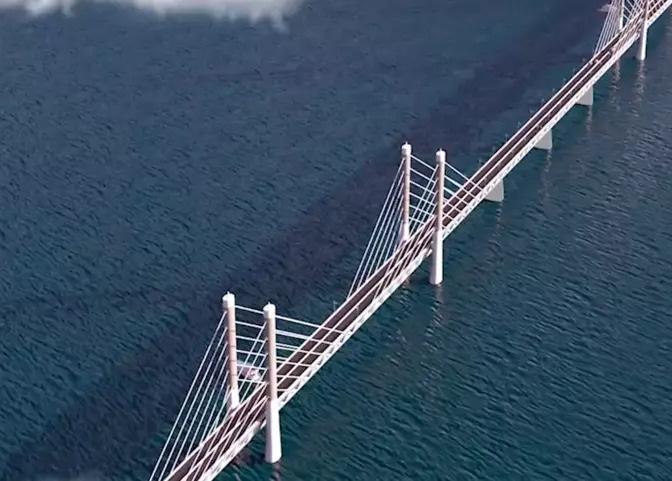
Entails the development, financing, construction and operation of the 400kV Lessos–Loosuk and 220kV Kisumu–Musaga transmission lines under a public-private partnership framework
MALICOUNDA POWER PLANT, SENEGAL
A 120MW combined-cycle thermal power plant under construction in Malicounda, 85km from Dakar, designed to produce at least 956GWh a year
NACHTIGAL AMONT HYDROPOWER PLANT, CAMEROON
A 420MW hydropower plant under construction on the Sanaga River, 65km from Yaoundé, with a 50km transmission line to Nyom
SCATEC EGYPT, BENBAN SOLAR PLANTS
VOLOBE HYDROPOWER PLANT, MADAGASCAR
KIGALI INNOVATION CITY, RWANDA
A 400MWDC portfolio of six utility-scale solar power plants, developed under Round 2 of the Egyptian Feed-in Tariff programme
A 120MW hydropower plant under construction on the Ivondro River, 40km from Toamasina. It will be operated under a 35-year concession.
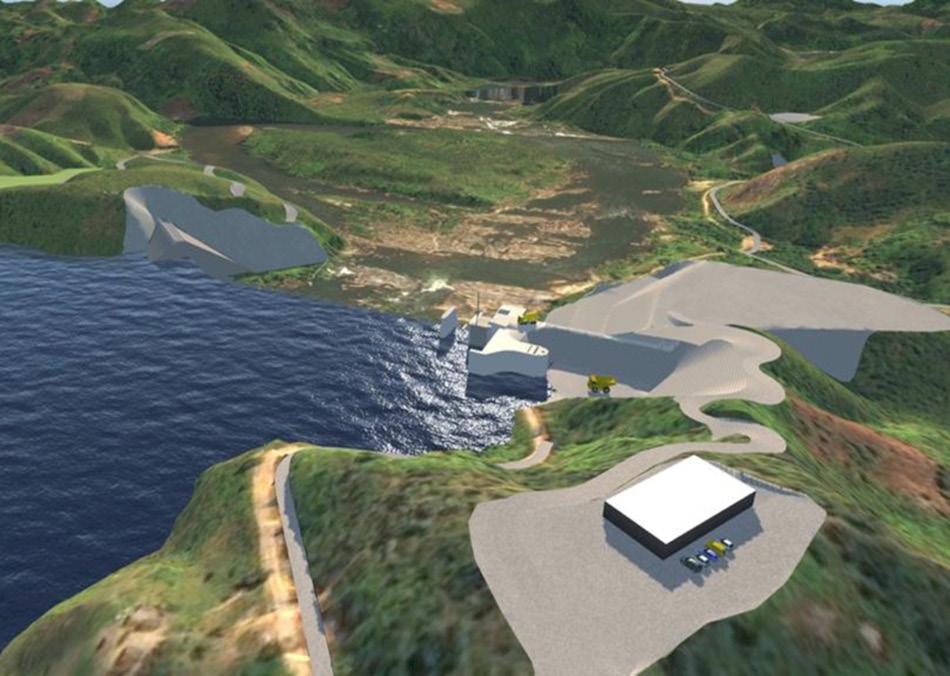
TOBENE POWER, SENEGAL
A 115MW baseload power plant in Senegal—Africa50’s first investment in the Melec Power Gen portfolio
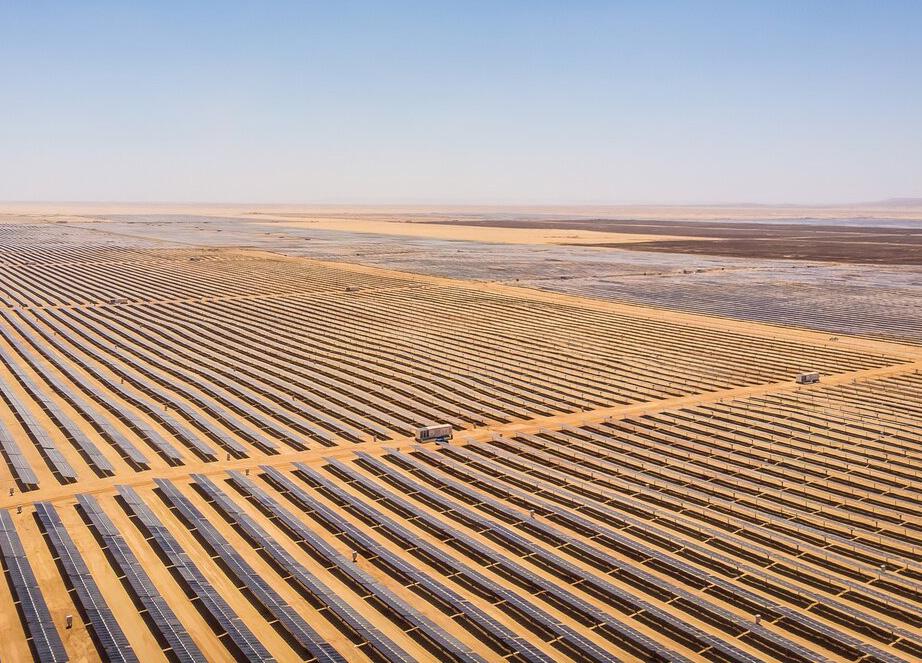
GBESSIA CONAKRY
INTERNATIONAL AIRPORT, GUINEA
Kigali Innovation City is being developed to be a mixed-use, masterplanned, innovation city to be situated on 60 hectares of land in Kigali
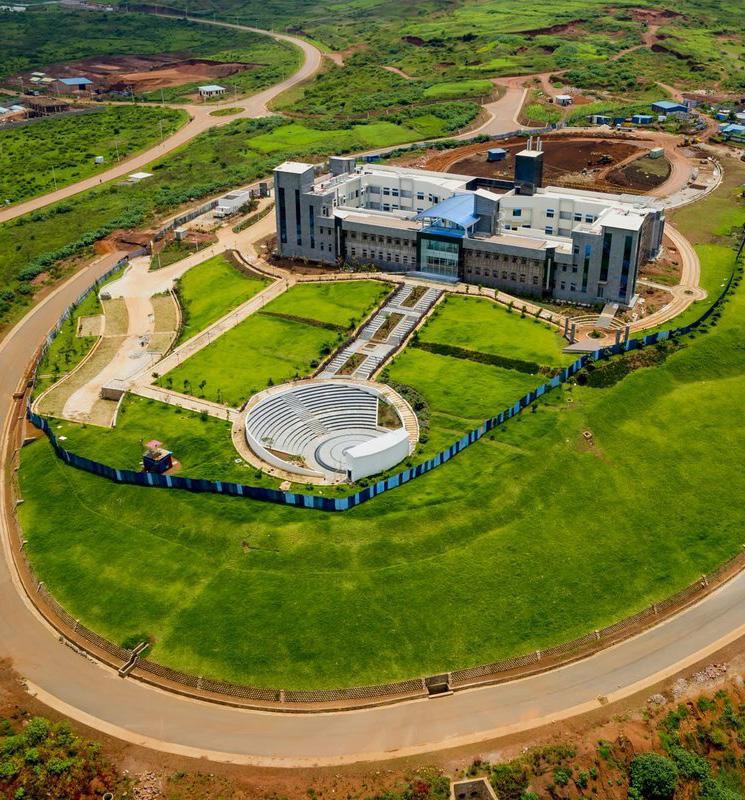
POA! INTERNET, KENYA
Investment in an Internet services provider providing wireless high-speed broadband to homes and SMEs in low-income and semirural areas
ROOM2RUN, PAN-AFRICAN
A Risk Protection Agreement related to a US$1-billion portfolio of seasoned pan-African loans held by the African Development Bank
Africa50 has invested in the upgrade and extension of the international airport, alongside French international airport operator Groupe ADP and the Government of Guinea. The project includes the design, structuring, construction and operation of new passenger- and cargo terminals and related infrastructure including aprons, parking areas and taxiways.
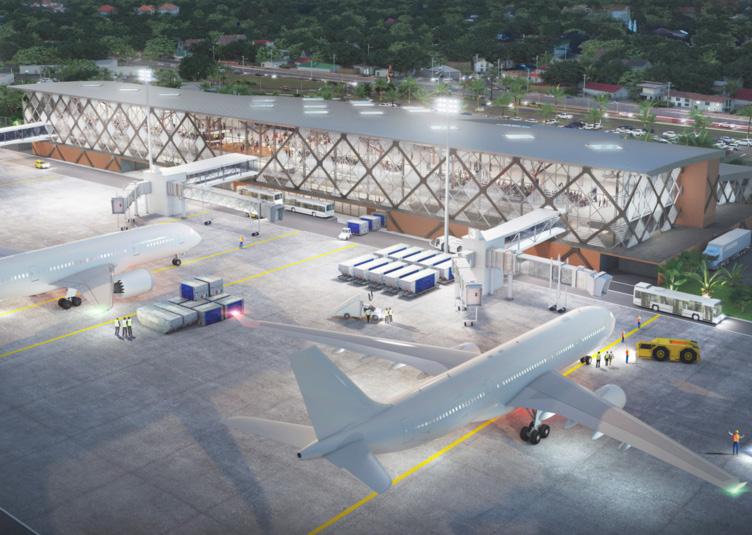
PAIX DATA CENTERS, PAN-AFRICAN
PAIX Data Centers develops and operates a growing pan-African platform of carrierneutral co-location data centres. The company currently has operating assets in Ghana and Kenya.
KINSHASA–BRAZZAVILLE BRIDGE
Africa50 facilitated the signing of the Intergovernmental Agreement between the Republic of Congo and the Democratic Republic of Congo for the railroad bridge linking the two capital cities of Kinshasa and Brazzaville
60 AFRICAN Business Quarterly • Issue 12 INFRASTRUCTURE
EVEN THOSE WHO WANT FOR NOTHING CAN BE FOUND WANTING
EVEN THOSE WHO WANT FOR NOTHING CAN BE FOUND WANTING



Elite Property Insurance - your property equals your success. Protect it, and you will ensure a secure and prosperous tomorrow.
Elite Property Insurance - your property equals your success. Protect it, and you will ensure a secure and prosperous tomorrow.
Elite Bespoke Motor Insurance - impeccable performance, absolute reliability and the ultimate in convenience.
Elite Bespoke Motor Insurance - impeccable performance, absolute reliability and the ultimate in convenience.

Elite Risk Acceptances @elite_risk
Speak to your broker to get a quote or visit www.eliterisk.co.za to find out more about our tailored products. Elite is an Authorised Financial Service Provider (FSP 50062)
OLD MUTUAL INSURE LIMITED, REGISTRATION NUMBER 1970/006619/06. A LICENSED FSP AND NON-LIFE INSURER. UNDERWRITTEN BY:
ECONOMICS
DEPTH OF DEBT

Ghana’s return to the IMF within three years underscores its deeper economic problems
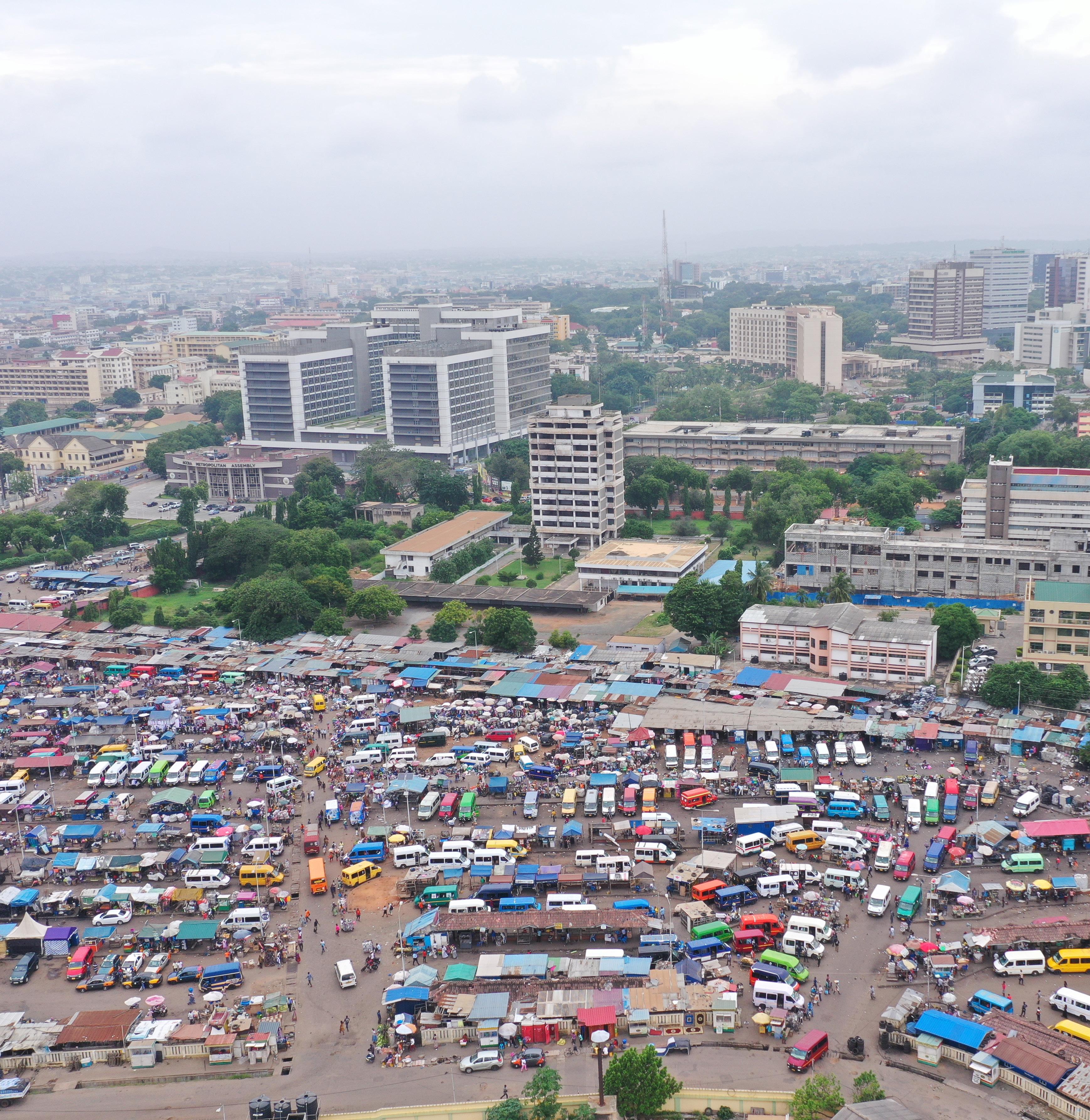
Ghana is again seeking assistance (bit.ly/3JWgrZR) from the International Monetary Fund (IMF) to enable the country to meet its payments (bit.ly/2OgeIk9) to the rest of the world and restore the health of government finances. It is the second time in the past three years (bit.ly/3bXmosW) and 17th since independence in 1957 ( bit.ly/3dw3CJo) that Ghana has turned to the IMF for help.
The latest foray reverses the current administration’s earlier stance that it would avoid approaching the multilateral body because of the conditions ( bit.ly/3SSvYOa) that come with its assistance. Ghana’s finance minister Ken Ofori-Atta said in May 2022 that government was “confident in its homegrown solutions such as the e-levy in getting the economy to recover... seeking a bailout from the IMF is not an option” (bit.ly/3SRgPwz)
Ghana’s approaches to the IMF, which have averaged every four years over the past 65 years, tell a story of recurrent failure of the government to properly build the economy to withstand internal and external shocks. Ghana’s lack of fiscal discipline, and its recent history of dependence on foreign financing—with as much as 48% of the total public debt (bit.ly/3w4lbqK) being held by external investors—leaves the country vulnerable to swings in investor sentiment, and accompanying portfolio investment sell-offs.
The request to the IMF also underscores the fact that Ghana has much deeper structural economic problems. These require a multi-stakeholder approach to resolve. Unfortunately, the pervasive and deeply entrenched nature of the country’s
Fourth Republican political clientelism (bit.ly/3dymwQ8)—which manifests in a ‘winner take all’ (bit.ly/3SRhazl) approach to governance (bit.ly/3C4ONb6)—has often distorted a much-needed national debate on what needs to be done and how it must be done. Ghana must fix the structural problems, such as its over-reliance on primary commodity exports, and live within its means.
As I and Emmanuel Graham from York University argue in an upcoming research project (bit.ly/3QtLfUm), there is a greater political leaning toward shorter-term goals of maintaining regime stability or forcing a change in the regime.

Ghana came out of the last IMF programme in 2019 (bit.ly/3pm9JTi) with some significant macro-economic gains (bit.ly/2FkcqNV). It had been forced to tap IMF assistance to deal with global and local economic shocks—the same as now. These included the spillovers of the slowdown in China (brook.gs/3w7f2Kd), the 2014–2017 commodities price slump (bit.ly/2AZQy8C), reckless spending (bit.ly/3AkwQUC) in the lead-up to often highly contested elections especially in 2012 and 2016, and a prolonged domestic electricity crisis (bit.ly/3QLmZMY) known locally as dumsor.
Ghana’s current external shocks are related to the COVID-19 pandemic and Russia’s ongoing war against the Ukraine (bit.ly/3JWgrZR). Internally, the government has also recklessly managed its finances with excessive borrowing, resulting in a looming debt crisis. The country now spends about a third (27%) of its expenditures in just servicing debt alone (bit.ly/3w4lbqK), not including principal repayments. This is often more than the compensation of workers on the government payroll (bit.ly/3doYZRn), estimated at 26% of total expenditure in 2022.
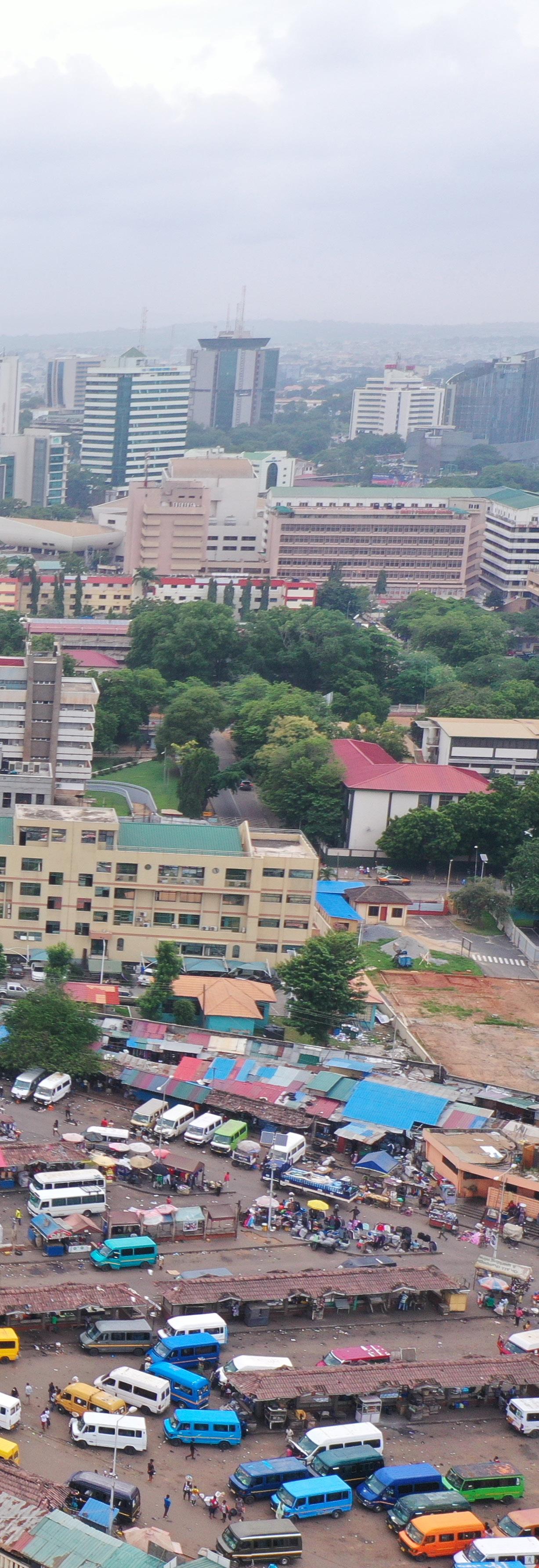
Issue 12 • AFRICAN Business Quarterly 63 ECONOMICS
Ghana’s approaches to the IMF tell a story of recurrent failure of the government to properly build the economy to withstand internal and external shocks.
THE DEPTH OF GHANA’S MESS
A review of recent economic data shows why it was inevitable that Ghana would seek IMF assistance.
Real gross domestic product (bit.ly/2ITEXiv) growth slowed from an average of 6.9% from 2017 to 2019, to 0.4% in 2020 during the pandemic—but picked up to 4.7% in 2021. The November 2021 forecast (bit.ly/3doYZRn) of 5.6% real growth in GDP in 2022 is likely to be lower because of rising price pressures. This is mainly driven by food and refined petroleum products due to the Russia–Ukraine war (bit.ly/3dsGT0Y) and global supply chain bottlenecks. Ghana’s inflation, as measured by a basket of goods and services, hit 29.8% in June 2022 (bit.ly/3w6N29v)—the highest level in 20 years.
Rising prices have forced (bit.ly/3AjxYrJ) the Bank of Ghana to raise its policy rate by 4.5 percentage points to 19% by May 2022 in an attempt to tame inflation. Commercial banks have in turn raised the rate at which they lend to businesses and individuals. The policy rate (bit.ly/3bQAnkl) last hit 20% in January 2018 and drastically reduced to 13.5% until the recent hikes started in November 2021. The unintended consequence of stemming inflation is a potential stifling of economic activity through crowding out of the private sector by the government and high cost of capital.
In addition the local currency, the cedi, had depreciated by almost 20% against the US dollar as of June 2022 (bit.ly/3C6i19u), making imports more expensive—forcing prices of goods and services upward.

Ghana’s economic challenges have been made worse by the country’s reliance on portfolio flows. This is the foreign money that moves in and out of countries in search of the best investment returns. Unlike money that builds factories, these flows are more sensitive to a country’s short-term economic and financial developments. Given Ghana’s significant borrowings from commercial rather than multilateral development financiers, the country has become more vulnerable to the rising cost of debt. Multilateral development institutions lend for longer at more reasonable rates.
Of Ghana’s total public debt (bit.ly/3AmQ1gF) of US$55.1 billion (78% of GDP) as of March 2022, 40.2% (US$28.3 billion) was owed to external parties. And of the external debt, about 57% was owed to commercial creditors, predominantly in Eurobonds (bit.ly/3w4lbqK).
To add salt to Ghana’s economic wounds, rating agencies downgraded (bit.ly/3PjbSK8) the country’s sovereign risk scores earlier this year. This significantly limited the government’s ability to borrow on the international capital markets to finance the budget.
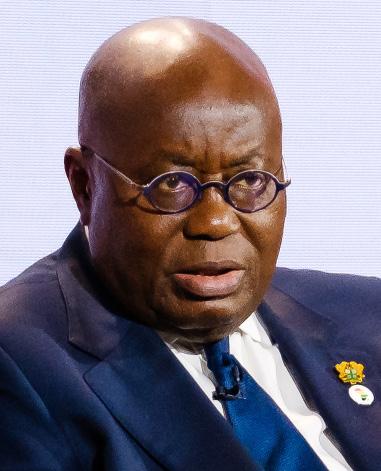
Ghana’s fiscal policymaking has shown a bias (bit.ly/3SRidPN) toward overspending during good times, with little being saved to
help when there are downturns or external shocks. This is largely driven by commodity price cycles—oil, cocoa and gold—and fiscal excesses during election periods. Ruling parties often overspend ahead of elections to buy votes and then tighten the purse strings afterward.
WAY FORWARD
So, what should Ghana do differently this time round? The following could be a guide to ensure Ghana benefits from its new deal with the IMF:
First, Ghana should use the IMF programme to negotiate some debt restructuring with commercial and multilateral creditors. The country failed to take advantage of earlier schemes like the Debt Service Suspension Initiative (bit.ly/3QApHF8). Debt restructuring would create the space to spend on priorities such as food and fuel. However, the country must urgently reinstate the Fiscal Responsibility Act, 2018—which was suspended during the pandemic—with the 5% cap on fiscal deficits in any given year. It must also publish an updated medium-term debt management plan (bit.ly/3QoDlLH) that either caps or places a moratorium on the contraction of non-concessional loans for a while.
Second, Ghana must implement fully any agreed structural reforms to put the economy on a sound footing. This includes significant cuts in the largesse and waste in government and public service delivery. President Nana Akufo-Addo must cut the size of his government and enforce key performance targets for key socio-economic sectors such as public finances, education, energy and health, among others. Other reforms should include the aggressive restructuring of state-owned enterprises (bit.ly/3C6jw7z) and hiring of competent hands, removing of some, and improvements in the targeting of subsidies as well as trimming the government payroll and flagship initiatives (bit.ly/3QEkA6E) like free secondary schooling.
The government must also insist on a strong social protection element, especially for cash transfer programmes such as Livelihood Empowerment Against Poverty (leap.mogcsp. gov.gh), and capitation grants for public basic schools.
Thirdly, Ghana must aggressively grow and diversify its small open economy to reduce reliance on primary commodities such as cocoa, gold and oil. These are the major export earners for the country, but are subject to significant price volatility. Ghana has a great opportunity to pursue green growth policies in new industrial clusters such as the critical minerals value chain (bit.ly/3Qv77P1) and renewables. These can be supported by a reinvigorated Ghana Infrastructure Investment Fund (bit.ly/3QofcF6) and the Minerals Income Investment Fund (bit.ly/3plsiqK), among other players.
Lastly, Ghanaians, especially the two main parties, must stop over-politicising the economic issues. Populism is clouding effective decision-making. What the current crisis reveals again is the urgent need for a broad-based national development plan or framework.
Theophilus Acheampong
Associate Lecturer: Economics University of Aberdeen
Ghana must implement fully any agreed structural reforms to put the economy on a sound footing.
64 AFRICAN Business Quarterly • Issue 12 ECONOMICS
President of Ghana, Nana Akufo-Addo


Independent Specialist Advisers Speak to our team of professional experts on your employee benefits porfolio Connect with us today info@nmg.co.za +27 11 509 0000 www.nmg.co.za Finding a Be�er Way for #StrongerFutures T&Cs apply. The NMG SA Group of Companies are authorised financial services providers t/a NMG Benefits Healthcare | Re�rement | Investment | Personal Financial Services | Actuarial | Short-term Risk Insurance
DIGITAL DILEMMA
Cryptocurrencies are gaining ground across Africa—that’s both good news and bad


66 AFRICAN Business Quarterly • Issue 12 BANKING & FINANCE
Cryptocurrencies have become popular in African and other developing countries. That is according to a policy brief (bit.ly/3QoeMyL) released in June 2022 by UNCTAD, the United Nations Conference on Trade and Development. Significant proportions of Kenya (8.5%; bit.ly/3AmV7tj), South Africa (7.1%) and Nigeria’s (6.3%) populations are using these digital currencies. In June this year, the Central African Republic adopted bitcoin as a legal tender (bbc.in/3zYVBo8).
The report warns, however, that widespread use of unregulated digital currencies poses danger to the continent’s financial system. In an interview with The Conversation Africa, Iwa Salami, an expert in financial technology law and regulation, examines the future of digital currencies in Africa.
WHY IS CRYPTOCURRENCY BECOMING POPULAR IN AFRICA?
Cryptocurrencies have gained acceptance among a large proportion of the low-income population which was, previously, financially marginalised (bit.ly/3dx00H6). Most banks in Africa were not accessible to this segment. Even when they were, low-income

account holders were discouraged by high transaction costs (bit.ly/3AmYfVZ).
Another factor is economic stagnation compounded by debt crises and political instability in African economies since the era of independence. This has resulted in weak currencies ravaged by inflation in countries like Kenya (brook.gs/3Qowh1S) and Nigeria (bit.ly/3pg0YKJ).
Cryptocurrencies promised to address both financial exclusion and the problem of weak domestic currencies.
Cryptocurrency gives everyone with access to a mobile device and Internet connectivity the opportunity to engage in activities similar to those conducted through financial institutions and intermediaries: including payments, sending remittances and making investments.
Investment is particularly inviting to the technically savvy ( bit.ly/3dt96Vp). It gives them the opportunity to hold assets that are not affected by rising inflation and depreciating domestic currencies.
Cryptocurrencies are also quicker, cheaper and easier to use than conventional methods. That is because the technology facilitates peerto-peer transactions (bit.ly/3dyCxWh) rather than relying on intermediaries.
These currencies were more accessible (bit.ly/3PoTakm) than traditional banks during the pandemic and lockdowns. This further drove their use and growth across Africa.
WHAT DOES A HIGH NUMBER OF PEOPLE HOLDING CRYPTOS IMPLY?
This can facilitate economic activity in African countries. People with no access to banks and banking services are able to pay for goods and services using cryptos.
Crypto transactions are also believed to be a more secure way of transacting. Unless someone gains access to the private key for your crypto wallet, they cannot sign transactions or access your funds.
The system also facilitates transparency. All cryptocurrency transactions take place on the publicly distributed blockchain ledger. There are tools that allow anyone to look up transaction data—including where, when and how much of a cryptocurrency someone sent from a wallet address.
BUT THERE ARE RISKS, TOO. WHAT ARE THOSE?
First, cryptocurrencies are very complex. They require a bit of technological astuteness to embrace. A significant proportion of the adult population in sub-Saharan Africa (34.7%) is illiterate (bit.ly/3pmvRx8) and may not be able to grasp it. This, to a certain extent, turns the financial inclusion argument on its head.
Secondly, although it is argued that the blockchain is a more secure way of transacting, the downside, of course, is that if you lose your private key there’s no way to recover your funds. This is a threat that does not exist if you have a bank account.
Issue 12 • AFRICAN Business Quarterly 67 BANKING & FINANCE
Cryptocurrencies have gained acceptance among a large proportion of the low-income population which was, previously, financially marginalised.
Thirdly, cryptocurrencies have had a history of volatility (bit.ly/3pqmlc1), as is currently being experienced in the crypto market (cnb.cx/3AmVvYN). This has adversely affected retail investors, especially those who do not understand this type of asset class.
Another issue of profound concern to African states is the potential threat to monetary sovereignty. Should crypto ever be more widely used than domestic fiat currency, national monetary agencies such as central banks may not be able to steer their economies (bit.ly/3QtAgtW) to a path of growth using monetary policy. Such policy is, after all, primarily administered through domestic currencies.
These are needed to prevent capital flight (bit.ly/3zPHDVi) from domestic economies. Any weakening can result in significant volatility in currency rates and the rapid depreciation of domestic currencies. There are also threats to financial stability. This could arise from significant exposure that financial institutions, like banks, have to crypto firms such as through loans. Regulation in some African countries, such as Nigeria (bit.ly/3zYWEEz), addresses this by restricting transactions between banks and crypto assets service providers.
WHAT IS THE FUTURE OF CRYPTOCURRENCIES IN AFRICA?
Despite the ongoing downturn in the market, cryptocurrency represents the future of finance and financial transactions. And there are indications that cryptocurrencies are here to stay, which is seen from their increasing recognition by countries. At one extreme, the governments of El Salvador and the Central
African Republic have adopted bitcoin as legal tender, although the implementation and impact of this on their broader economies have been faced with severe criticisms (bloom.bg/3w8Hewf).

Others, such as Nigeria (bit.ly/3drMfcS), have recognised the need for state representation of digital currencies in the form of central bank digital currencies. Many other countries are now exploring this option (bit.ly/3dkZDPS).
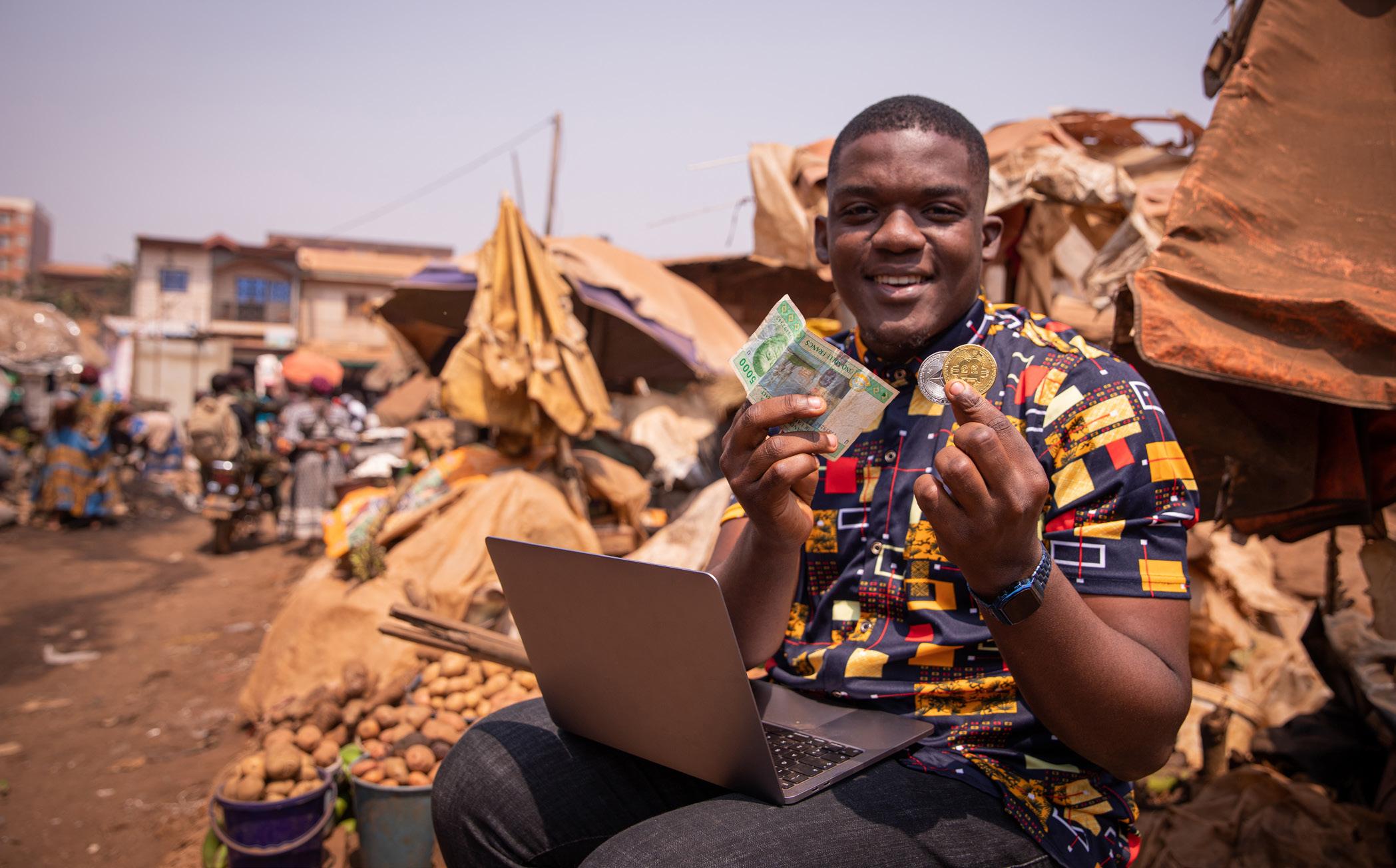
It is important to note, however, that the uptake (bit.ly/3Amgmv8) of central bank digital currencies has been very low (bit.ly/3SOZkx8) in developing countries that have rolled them out. There are also ongoing investigations (refini.tv/3JWYLgt) by countries into the economic impact of central bank digital currencies and whether adoption is the right approach.
But if cryptocurrencies are to live up to their promise, both on the African continent and elsewhere, there must be a globally co-ordinated (bit.ly/3dvDyym) and holistic (bit.ly/3zZGcnm) approach to regulation, since transactions are global. Although some action on this front is emerging, the current fragmented approach to regulation across the world is not ideal.
Iwa Salami Reader (Associate Professor): Law University of East London
An associated threat is the weakening of effective capital controls in African states.
68 AFRICAN Business Quarterly • Issue 12 BANKING & FINANCE
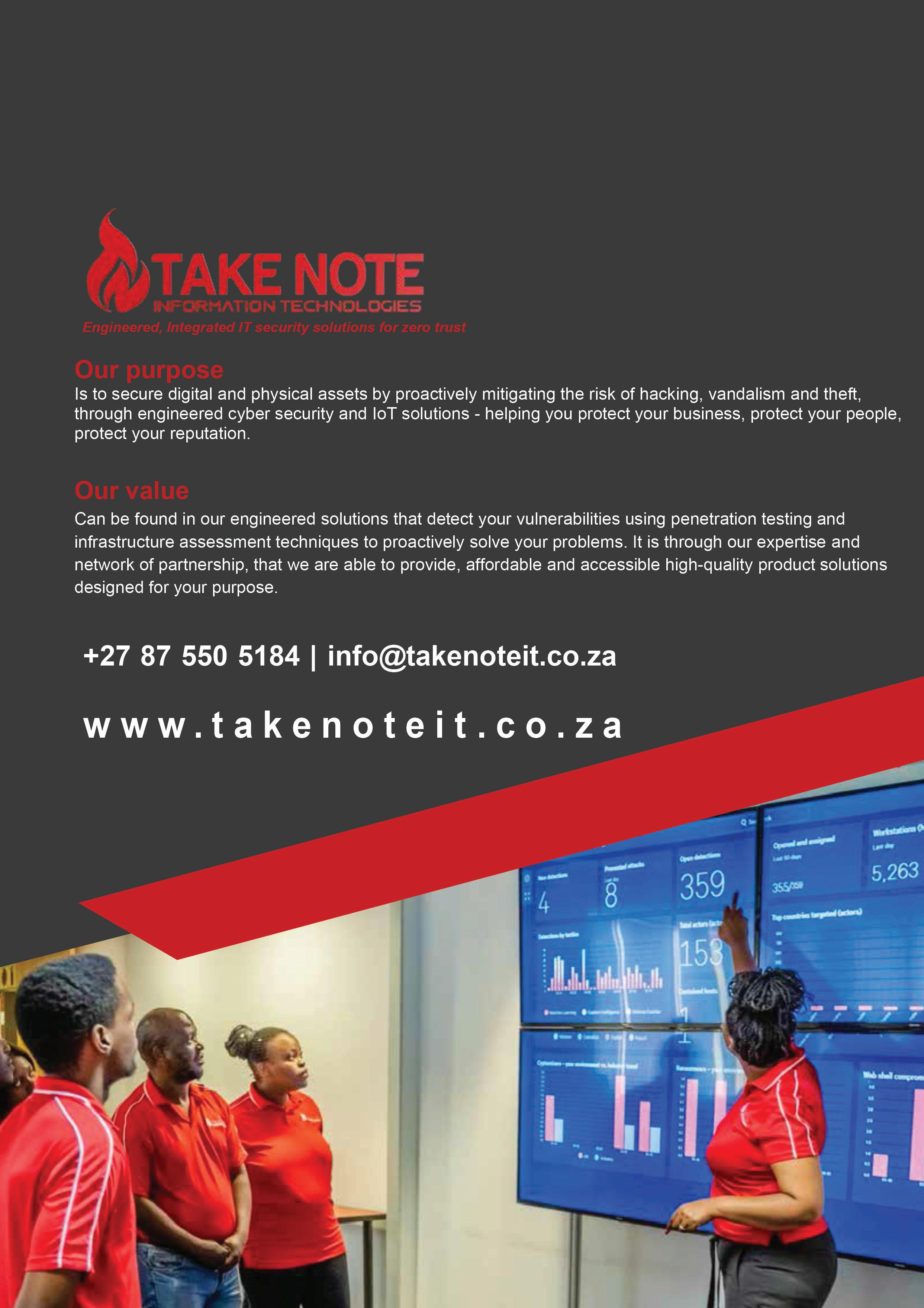
HIT YOUR


ENTREPRENEURSHIP
TARGET

Market
Contrary to what some business sites advise, a good survey involves using complex methods that require specialised knowledge.
According to the United States research and consulting firm, CB Insights (bit.ly/3JSRRsN), most entrepreneurs fail because they lack sufficient financing. The second reason they fail is because the market for their product is too small.
Yet, many entrepreneurs and coaching professionals continue to reject the market research phase in favour of a ‘fail fast, pivot quickly’ approach. Launching companies this way—even if it means having to adapt to customer feedback later—is very trendy, especially in the world of startups.

However, as the bitter experience of Canadian entrepreneur Tom Zaragoza demonstrates, ‘learning by doing’ is no guarantee that a business will gain traction in the marketplace. In 2017, after months of effort, Zaragoza launched his site Gymlisted to connect private gyms with users, only to find out there was no demand for such a service ( bit.ly/3JYBMlh).
Through my activities as a professor in entrepreneurial marketing, I unfortunately meet an increasing number of entrepreneurs who are convinced they have the idea of the century, but who do not take time to study the market in a structured way. Market research remains an essential step for entrepreneurs for the simple reason that if the owner is not a market expert, who is?
research is essential for entrepreneurs who want their businesses to succeed
Issue 12 • AFRICAN Business Quarterly 71 ENTREPRENEURSHIP
TWO
MISCONCEPTIONS
ABOUT MARKET RESEARCH
Contrary to the story about the intuitive and visionary entrepreneur, and in a context where modern society applauds action over reflection, it turns out that market research is both essential and relevant—as long as two misconceptions that work against its adoption are removed.
First misconception: Market research is a linear and rational process that is not compatible with a company’s launch phase. In reality, it is a set of methods and tools, the goal of which is to create a continuous learning loop by alternating phases of reflection with phases of experimentation. Whatever the size of the company, the approach is much more iterative (achieved through repetition), inductive and diversified than one may think.
As demonstrated by the ‘disciplined approach’ proposed by Bill Aulet (bit.ly/3pg5ZD3), a professor at MIT, it is actually possible to study a market in a way that is structured and agile. The 24-step process starts with the study of the market fundamentals, an essential first step to understand the market structure and, above all, the different customer segments. Once the target customer is identified, the process unfolds by moving back and forth frequently between research and field studies.

Second misconception: Market research is simply about having large samples answer questionnaires.
The truth is, surveys (bit.ly/3dsQyog) are not a substitute for market research. Contrary to what some business sites advise, a good survey involves using complex methods that require specialised knowledge. The use of free online solutions, such as Google Forms, by inexperienced entrepreneurs often produces biased results that may not be very useful.
In view of these two misconceptions, it would be more appropriate to use the term ‘market intelligence’, which better translates the two key steps of a pragmatic and agile process adapted to the context of creation.
THE TWO KEY STEPS TO DEVELOP GOOD MARKET INTELLIGENCE
Step 1: Do secondary market research to know your market.
Secondary market research (bit.ly/3PusdeV) involves exploiting all existing knowledge. A quick and efficient way to do this is to contact organisations such as professional associations, sector committees or even chambers of commerce. These institutions have the mission of collecting, synthesising and making accessible relevant and credible information on a given sector or market, often at a very reasonable cost.
This approach allows entrepreneurs to quickly acquire the knowledge they need to start structuring the first hypotheses of their business model (bit.ly/3SSGUvc): What are the different customer profiles? What are their expectations and buying habits? What are the competing offers already on the market?
Step 2: Conduct qualitative studies to validate and adjust your business model. The next step involves testing and exploring the marketplace on the ground by using qualitative methods (bit.ly/3dqrgal). This type of study takes the form of individual or group interviews, or even simple observations, and makes it possible to deepen the hypotheses put forward following the research phase by directly interviewing those in the field.
Take the example of the Hôtel UNIQ (www.hotel-uniq.com/en), “ephemeral accommodation” launched in 2020.
Initially, studying the reports of the Tourism Intelligence Network of the Transat Chair of Tourism at the Université du Québec à Montreal and those of Camping Québec showed that this product might interest those who liked glamping and wanted both nature and comfort. Indeed, UNIQ offers yurts that can be set up and dismantled in different locations.
During the second phase, it makes sense to do individual or group interviews to understand the customers, their habits, their expectations and any possible obstacles. This exploration phase makes it possible to understand which services are essential and which booking methods are commonly used.
This type of qualitative research would be an important step in completing the value proposition design (bit.ly/3w6toKK), a tool that helps illustrate why the idea will meet the market’s expectations. The information also makes it possible to draw up a precise profile of the expected clientele using a ‘buyer persona’ (bit.ly/2zoe41g): a method for summarising the main characteristics of future buyers.
Once this exploration phase is complete, one can wrap up with a test to ensure there is demand for this type of accommodation. This can be done by applying concept testing (bit.ly/3zZ37PR). This simple and inexpensive process consists of submitting a printed or video description of the proposal to the target clientele to study their reactions and their level of intention to make a purchase.
These few good practices do not cover everything, and not all market research methods are applied to every creative context. But as many scientific studies have shown, knowing your market is a key factor of success for any company.
Philippe Massiera Associate Professor: Marketing Management School of Management
Université du Québec à Montréal
72 AFRICAN Business Quarterly • Issue 12 ENTREPRENEURSHIP
A disciplined, 24-step approach for structured and agile market research (“Disciplined Entrepreneurship”, by Bill Aulet)
PERSONAL PROTECTIVE EQUIPMENT


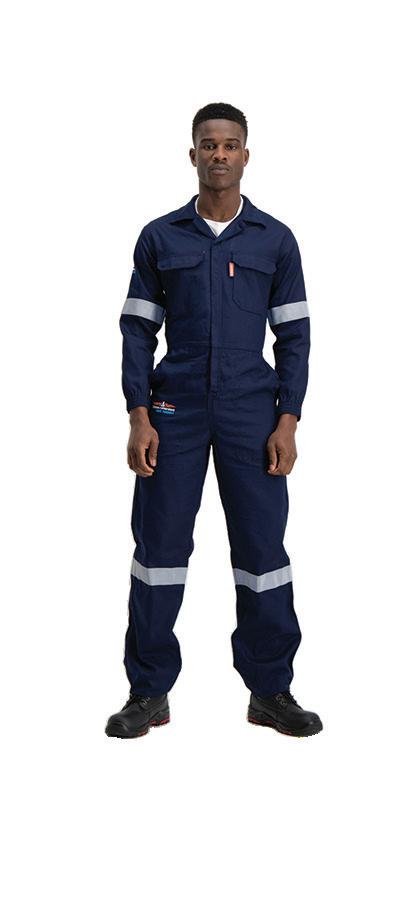



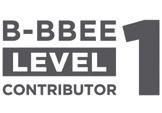


22 Auckland Street, Paarden Eiland, Cape Town, 7405 T: 021 511 8131 / E: info@pienaarbrothers.co.za
DIFFERENT VARIETIES OF PRODUCTS TO MEET YOUR UNIQUE NEEDS
to the mining, agricultural and industrial sectors of South Africa and the greater African Continent. A leading supplier of
TESTING ITS METAL
Nigeria has not been able to produce steel: remanufacturing could be the solution
Nigeria has pumped more than US$8 billion into Ajaokuta Steel Company (bit.ly/3AkuANi): a project that began more than 40 years ago, but has yet to produce one tonne of steel.
Several attempts have been made to bring the plant into production, but without success. It was built to 98% capacity by the Soviet Union’s Tyazpromoexport (bit.ly/3QOAc7X). But the lack of a rail line around the plant, and changes in political and operational management over the years, stymied completion.
Bilateral discussions in 2019 (bit.ly/3pgzeWi) raised the possibility of Russian funding to resuscitate the steel plant, but the COVID-19 pandemic and the Russia–Ukraine crisis may have stalled any unofficial agreements.
Another problem for the plant is that some of its installed equipment might have been corroded and degraded by now.
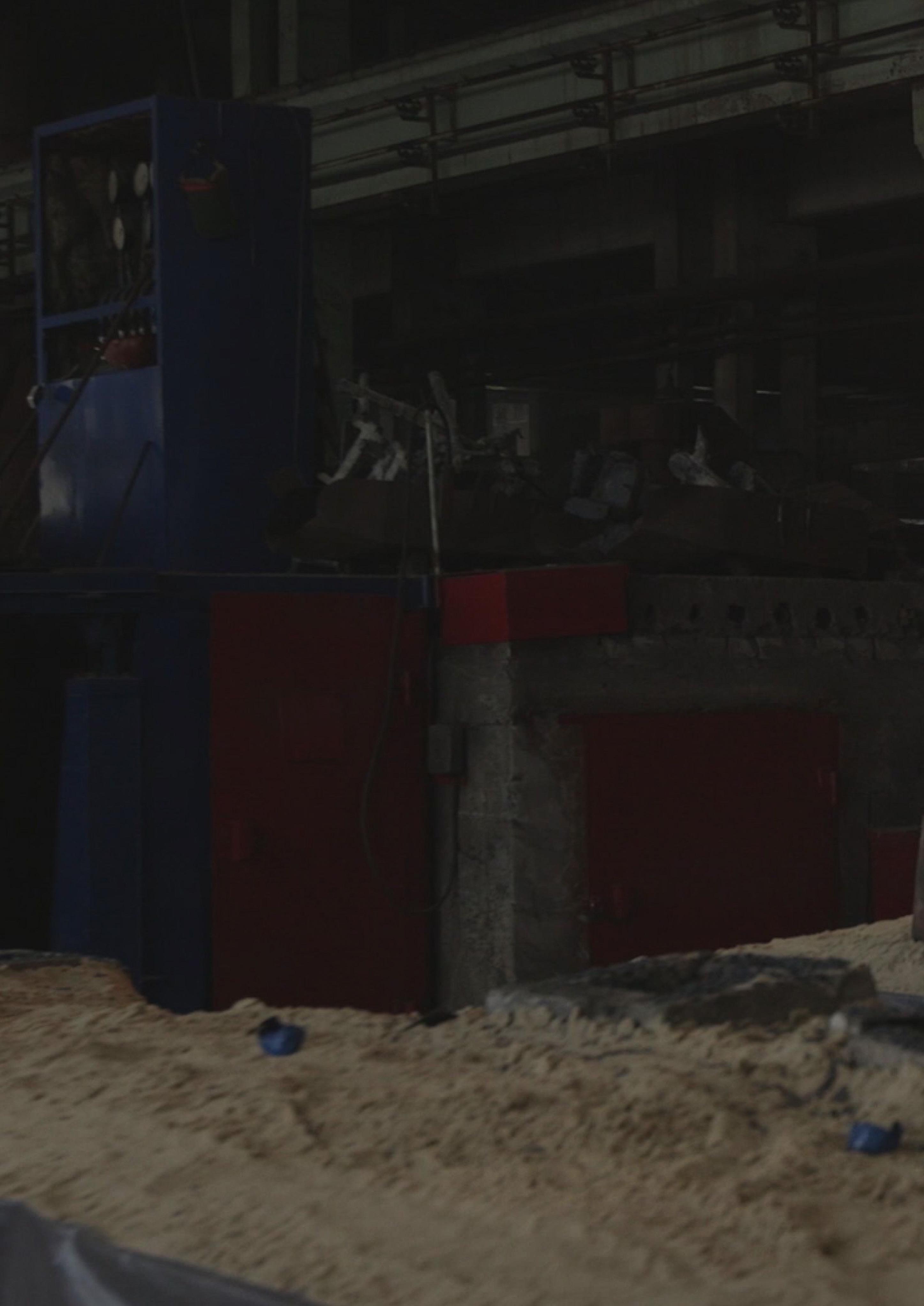
Steel corrodes quickly in acidic environments. Consumer-grade steel and other iron-rich metals can develop iron oxide
(or rust) after just four or five days of exposure. Corrosion of parts has been reported by a team of Nigerian and Ukrainian experts auditing the plant.
Still, the Nigerian federal government is now having yet another go. It is looking for a core investor that can get it running profitably (bit.ly/3JWSzVT) on a concession basis. The cost of revamping the steel company was put at $1.4 billion in 2020 (bit.ly/3C47Jqz).
Instead of concessioning, we propose remanufacturing (bit.ly/3An6fpZ) as a way of rescuing the plant. Remanufacturing is an industrial process whereby used or broken down products or components are restored to useful life.
Based on our research (bit.ly/3C47WKn), we argue that remanufacturing’s economic, social and environmental advantages would solve the Ajaokuta Steel Company Limited problem, make it competitive, meet contemporary demands of sustainable manufacturing and get it operational.
NIGERIAN DEMAND FOR STEEL
Ajaokuta Steel was conceived in 1958 to meet Nigeria’s steel demand and launch Nigeria and West Africa’s manufacturing sector. The idea of a large-scale national steel production plant was based on the argument (bit.ly/3SRv4S3) that no country could talk about power status or the defence of national interests without its own steel industry.
Nigeria had a fast growing population (bit.ly/3T3Bn5t), with rising demand for manufactured goods. A number of manufacturing industries (bit.ly/3SLVPrn) sprang up in the 1960s and the 1970s. Local demand for steel products was about 3.5 million tonnes a year between 1985 and 1995, the bulk of which could only be met through imports.
The manufacturing industry grew (bit.ly/3w8OyrJ) from 9% in 1985 to 19% in 1995, encouraging the government’s industrialisation drive.
CHALLENGES OF CONCESSIONING
As to how to meet that demand, a concessioning agreement for a steel plant presents some key challenges.
Although the concession may put the steel plant into the hands of a competent investor, it is only for 10 years. Then legal challenges may arise. The most recent operator, an Indian company called Global Steel Holdings Limited, had its 10-year concession agreement revoked by the Nigerian government and the matter ended in an out-of-court settlement in 2016 (bit.ly/3JSMcTE).
A concession agreement with foreign operators cannot guarantee the involvement of local human resources, which Nigeria’s manufacturing desperately needs.
74 AFRICAN Business Quarterly • Issue 12 MANUFACTURING

Issue 12 • AFRICAN Business Quarterly 75 MANUFACTURING
Ajaokuta Steel Company was conceived in 1958 to meet Nigeria’s steel demand and launch Nigeria and West Africa’s manufacturing sector.
REMANUFACTURING INPUTS
A major challenge of reviving the Ajaokuta Steel plant is that much of its equipment is in a broken-down state.
We argue (bit.ly/3An6fpZ) that remanufacturing could restore the equipment and get it working. It could also develop the local capacity for remanufacturing among Nigerians. Remanufacturing is an industrial process of steps that makes a used product as good as new. It is a key circular economy strategy (bit.ly/3dpZGtL).
Broken-down parts are referred to as ‘cores’. They are passed through a number of standardised remanufacturing operations —inspection, sorting, disassembly, part reprocessing or refurbishment, reassembly and testing—to ensure they meet product standards.
The resulting output is a product that meets or exceeds the quality and performance standards (bit.ly/3PnXuR0) of a newly manufactured product.
Studies suggest remanufacturing can save up to 50% (bit.ly/3phrxzd) of the cost of a newly manufactured product, 60% of the energy, 70% of the material and 80% (bit.ly/3piDMv4) of the air pollutant emissions.
Remanufacturing is labour-intensive, so it can support new jobs and other jobs in the supply chain, such as transporting cores from the original manufacturers or disposal site to the remanufacturer’s site.
The United Nations Environmental Programme has studied how remanufacturing can retain value (bit.ly/3phrxzd), finding that it can reduce new material requirements by between 80% and 98% and increase skilled labour hours by up to 120%.
Nigeria does engage in some remanufacturing (bit.ly/3JSZwHF), for example, remanufacturing of medical devices (bit.ly/3phOzFZ)—but it is largely unorganised and driven by small, independent operators.
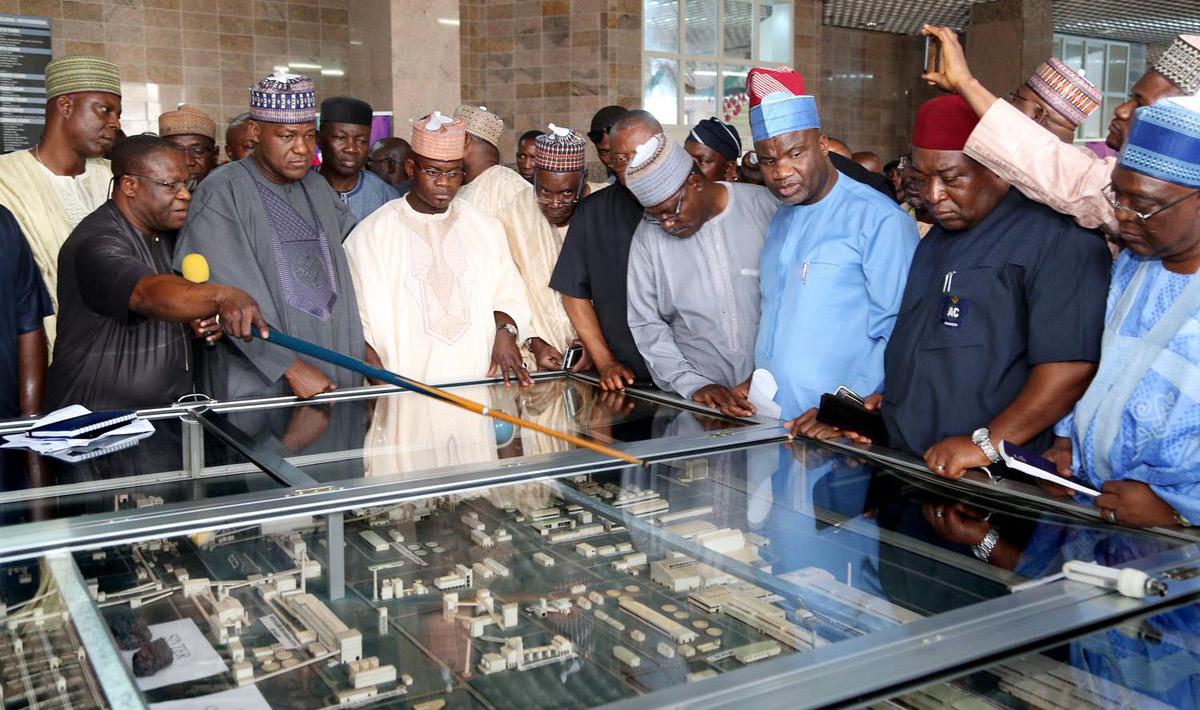
WHAT MAKES REMANUFACTURING
IDEAL FOR AJAOKUTA
For remanufacturing to happen, cores must be available. It must be possible to disassemble the cores. And there must be labour and access to customers.
We have assessed the challenge with the Ajaokuta Steel Company Limited and concluded that the barriers to remanufacturing can be overcome.
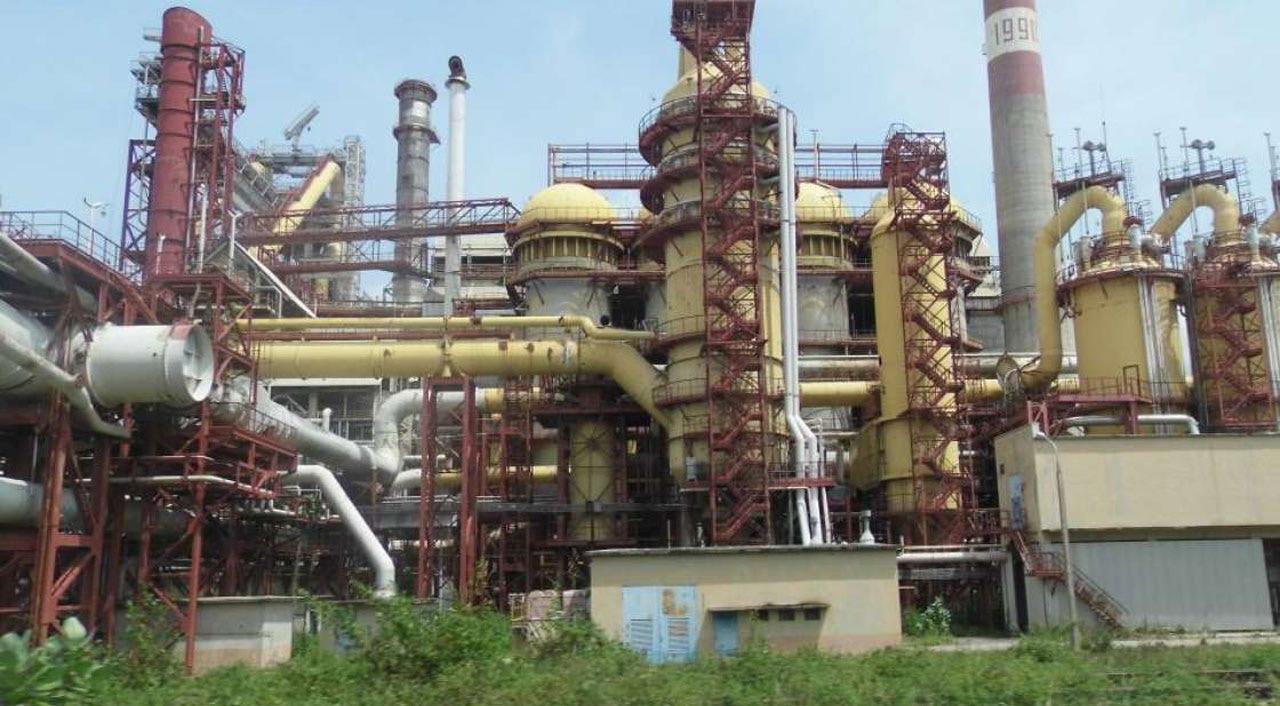
First, the broken-down components in the steel facility form the remanufacturing cores. Most of these mechanical components (bit.ly/3JSDt3O) such as gearboxes, conveyor belts, cranes and blast furnaces can be disassembled and remanufactured.
The steel plant would serve as the original equipment manufacturer (and customer) and a supply route could be created using the road networks around Ajaokuta (bit.ly/3bVImwg), where the plant is located. A long-term transport system should include a rail line to enable access to coal sites, for instance.
Nigeria has a young population (bit.ly/3QOQBJD) that could provide the unskilled and skilled labour for remanufacturing.
HOW TO REVIVE THE STEEL PLANT
For effective engineering management, we propose that Tyazpromoexport, the Russian company that first installed the Ajaokuta Steel plant, should work with Nigerian engineers to remanufacture the plant. The same company has successfully installed steel plants in Egypt, Algeria, Pakistan and India (tyazh.ru/en/projects).
We recommend the following broad steps:
• Audit and assess worn-out and broken-down components;
• Determine what can be remanufactured and at what cost;
• Assess supporting stakeholders —independent remanufacturers, local routes, raw materials, facilities and labour;
• Remanufacture identified parts;
• Procure parts that cannot be remanufactured; and
• Install remanufactured and newly procured parts.
We understand that Ajaokuta Steel Company Limited faces other challenges. These include the politicisation of the steel project (bit.ly/3bT0OWm), the Russia–Ukraine crisis (bit.ly/3SR0Uyr), and the resulting geopolitical fallout.
However, with over $8 billion already invested, zero production and the corroding of the facility, there is an urgent need to revive the steel complex. Remanufacturing presents an excellent opportunity to resuscitate it in a green, efficient and sustainable manner.
Okorie
Okechukwu
Lecturer: Sustainable Manufacturing University of Exeter
Nnaemeka Vincent Emodi Postdoctoral Research Fellow University of Queensland Business School
Members of the House Committee on Steel on an assessment tour of Ajaokuta, 2018
76 AFRICAN Business Quarterly • Issue 12 MANUFACTURING
Ajaokuta Steel Plant Image
source: Business Post Nigeria; TheGuardianNigeria
COMMITTED TO QUALITY
Lengwati Electrical was established in 2000 as a black economic empowered engineering company by the late Success Moabi Lengwati. He had been in the industry for 20 years at that time. As an experienced postgraduate technologist and installation electrician, and from a previously disadvantaged community, he felt he could utilise his skills to the available market, be a leading company in empowering and sharing his skills with other PDIs and contribute to the economic growth of the country.
Since its establishment, the company has provided top-class electrical and mechanical services all over South Africa: from installing electrification for Eskom projects in KwaZulu-Natal, to installing switch gears for Enoch Mgijima Local Municipality in the Eastern Cape. It has offices in Gauteng (head office), Mpumalanga and KZN.

The business is now under the leadership of Success’s wife, Matshidiso Lengwati, who holds the position of director. She has continued the good work of her husband, with
the company receiving numerous accolades. In 2019, Lengwati Electrical won the Progressive Women in Business: Start-up Business of the Year Award; in 2021, it was recognised as the Top Gender Empowered Company by Standard Bank’s Top Women; and this year, Matshidiso was a finalist for Top Entrepreneur of 2022 in the Top Empowerment Awards.
technical working environment; once they are qualified, Lengwati Electrical offers them employment. It also identifies and upskills employees who require further training and development.
In addition, Lengwati Electrical has committed to developing upcoming SMMEs. With each contract the company is awarded, it appoints subcontractors to aid in their development in the engineering sector. It has thus far developed five such electrical companies. Lengwati Electrical always identifies up-and-coming suppliers that are BBBEE-complaint.
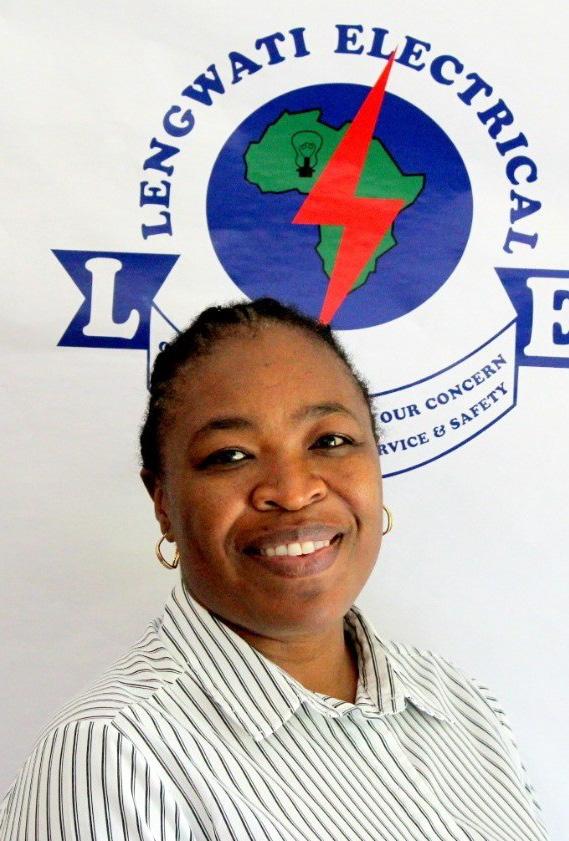
Each year, it supplies food hampers and clothing to an underprivileged home in the community.
Its business strategy is to provide superior engineering services that rely on innovation as the common differentiator. The elements of the company’s business strategy are: innovation, project management & support services, as well as leadership.
Its services include electrical, mechanical, building and others such as PABX installation, radio network maintenance, crane load transportation and fire detection, among others.
But Lengwati Electrical also takes its social responsibility seriously. It is the company’s fundamental interest and aim to stimulate engineering careers among young students, thereby playing a meaningful role in the transformation of society.
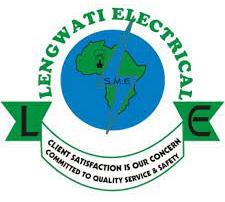
It has partnered with Izibuko the Bridge Training Consultancy to train students in the
CONTACT DETAILS
Tel: 011 310 3008 | Cell: 072 419 4556
Fax: 011 310 3009
E-mail: info@lengwatielectrical.co.za lengwatielectrical.co.za
Issue 12 • AFRICAN Business Quarterly 77 ADVERTORIAL
Lengwati Electrical provides top-class electrical, mechanical, building and other services in the engineering sector
Lengwati Electrical has the necessary resources, capacity and experience to meet all customer requirements.
MATSHIDISO LENGWATI Lengwati Electrical Director
AMAZING TING
South Africa must reinvigorate sorghum as a key food before it is lost

The world’s food systems have developed in a way that is not serving health and sustainability. People are increasingly eating industrially produced foods that are low in nutrients and high in fats and sugars. For example, in South Africa between 2005 and 2010, sales of snack bars, ready meals and noodles all rose by more than 40%. These are associated with increasing levels of obesity and diet-related non-communicable diseases like diabetes.
The diets of people living in poverty are typically monotonous, dominated by refined cereals with impacts on nutrition, especially for children. Healthy diets remain unaffordable for most South Africans.
The way food is produced, processed and transported also has environmental impacts. Among these are loss of biodiversity, high levels of water extraction, and greenhouse gas emissions.
At the heart of the food system’s problems is a lack of diversity. Power is consolidated in the hands of a few mega-corporations. Growing single crops in a big area makes them susceptible to shocks. And the world relies on four main staple crops—wheat, rice, maize and soybean—to meet most food needs.
There have been widespread calls for the food system to change. The question is how.
In our research project on sustainable and healthy food systems, we set out to explore some options. We looked at the South African, English and Indian food systems and how they could become more sustainable, healthy and fair. In particular, we explored how to make these systems more diverse by growing local and indigenous foods.
We found that the benefits and value of indigenous foods in the African context have not been fully understood. Knowledge of how to use these foods is being lost from one generation to the next.
So we decided to do a deep dive into one specific crop indigenous to the African continent: sorghum. In South Africa, it is also known by names like ting ya mabele and amazimba
78 AFRICAN Business Quarterly • Issue 12 AGRICULTURE

Issue 12 • AFRICAN Business Quarterly 79 AGRICULTURE
FOLLOWING THE TING
Sorghum is one of the most important cereal grains for food consumption in Africa. Africa is the world regional leader in total production of sorghum at 25.6 million tonnes, but it has the average lowest yield at 967 kilogrammes per hectare. It is indigenous to the continent’s savannas and there is archaeological evidence in the Sahara of the use of sorghum dating back 8 000 years.
Sorghum is as nutritious as maize and has high drought tolerance. This makes it a resilient option for farmers to plant under changing climatic conditions.
Sorghum also has traditional significance. Umqombothi or utshwala is a beer traditionally made from maize and sorghum by the family matriarch for special occasions. As well as traditional beer, the Tswana people of South Africa also make a fermented porridge (ting ya mabele) from sorghum.


Despite these benefits and traditional significance, production of sorghum in South Africa has declined, with a peak of around 700 000 tonnes in the 1980s to a low of 100 000 in the later 2010s.
There is also a need to overcome its perception as a backward or poor man’s food, and its association with drunkenness which was reinforced during apartheid to denigrate indigenous food and traditional practices.
From encounters with a range of South Africans connected through sorghum by either its consumption, processing or production, we learnt of three key interventions that could be made to reinvigorate this food. They involve availability, affordability and appeal.
NEW LIFE FOR SORGHUM
There is a need to focus research on improving sorghum production in collaboration with small-scale farmers to allow them to adapt to new local conditions under climate
change. This can also improve yields to be more competitive with maize, which has globally received much more research funding for crop improvement.
Making sorghum a zero-rated tax foodstuff so that it can compete with maize on the shelf could make it more competitive. As a rough comparison, the cheapest house-brand mabele meal product in one retailer’s online store is R26.99 ($1.58) for 2kg, whereas a brand of maize meal is R22.49 ($1.32) for 2.5kg.
INNOVATION MEETS TRADITION
Another important intervention is around product innovation and, through this, increase in demand, to offer a more guaranteed market to farmers. Once local production can be increased, this should reduce dependence on sorghum imports. As a respondent in our research said: “If sorghum can be bought at the same price as maize, then people will start to shift their consumption because of its health benefits and because its indigenous heritage has marketing potential.”
Another respondent said, “You need to create aspirational products. It shouldn’t be considered poor man’s food; if you ask many people in [South Africa] about sorghum, they come up with two associations: beer and the ‘drunk uncle’; and poor man’s food, ‘porridge’.”
Sorghum products— newly developed ones and reconfigurations of traditional
gastronomy—must meet modern consumers’ need for convenience and aspirational preferences. Then there could be a revolution in the sorghum market. Public procurement of sorghum, for example in schools, could not only teach children about these crops but provide a more diversified and healthy diet while enabling a market for farmers.
As a third respondent told us: “Most people have a positive story about sorghum: we need to tap into tradition and culture... People remember things, what grandmother would eat. There is a lot of marketing in the stories—it’s tradition. It’s gogo [granny].”
Ting ya mabele is registered on Ark of Taste (bit.ly/2zu0iHa). This features a collection of artisanal products steeped in culture, but also at risk of extinction as the traditional practices upon which they are based are lost or the species from which they are made become endangered.
The potential loss of sorghum from the South African food system has implications not only for climate adaptation and agrobiodiversity but for nutrition security, cultural practices and a sense of identity.
Our research highlights that a strong cultural link to sorghum remains in South Africa. If an enabling policy environment for research and innovation could be broadly interpreted, this may invigorate a richer engagement with sorghum—not just as a commodity but as a culturally significant food that could help build resilience in local food systems.
Laura
Associate Professor Global Change Institute University of the Witwatersrand
Pereira
80 AFRICAN Business Quarterly • Issue 12 AGRICULTURE
There is a need to overcome its perception as a backward or poor man’s food, and its association with drunkenness
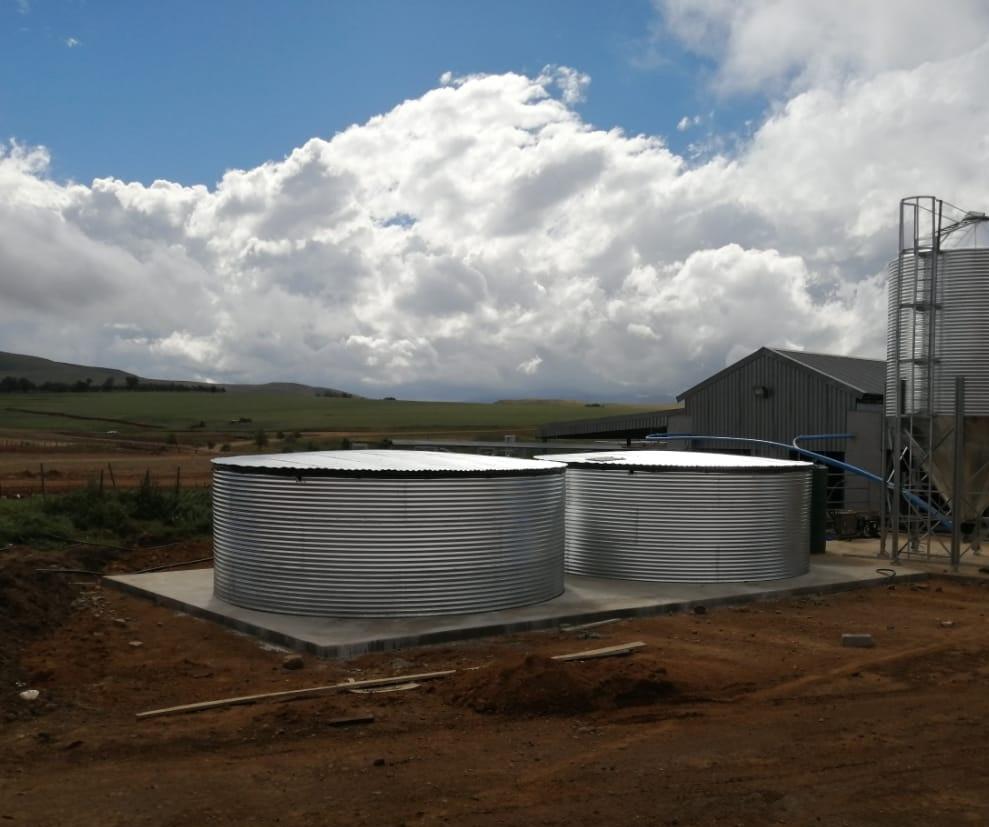


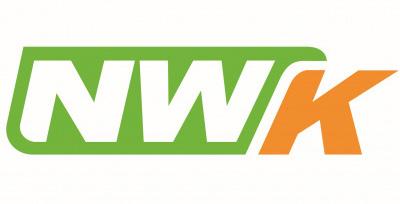
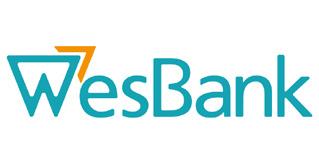
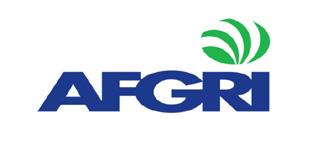

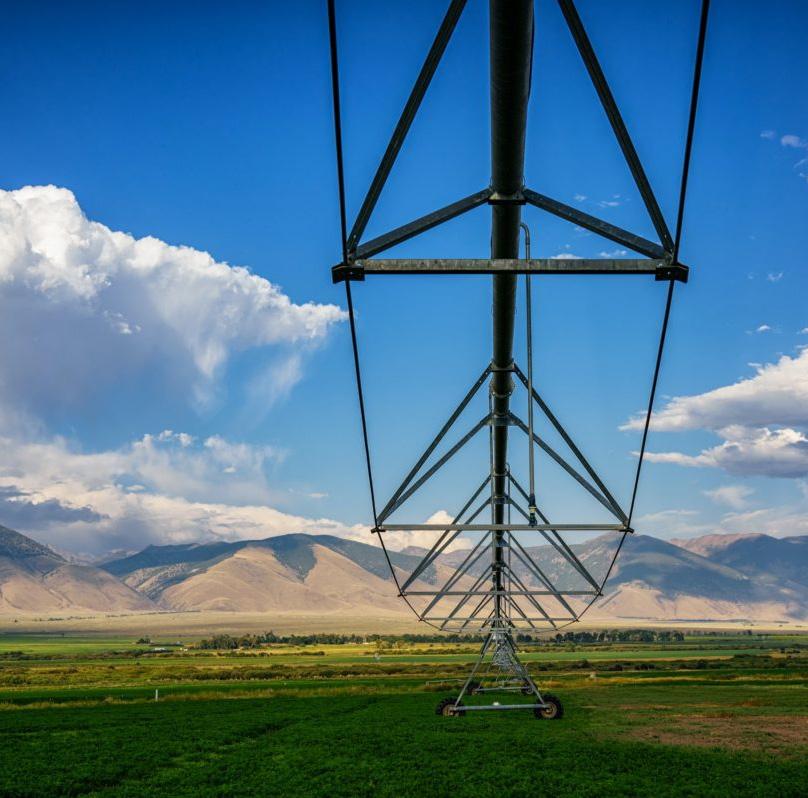
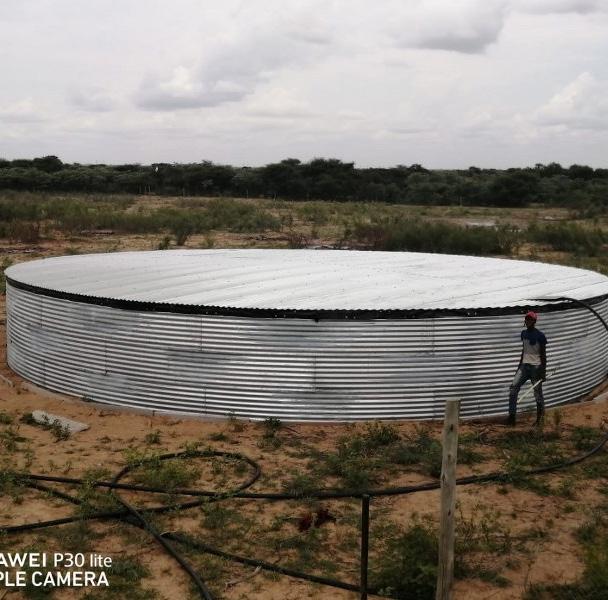
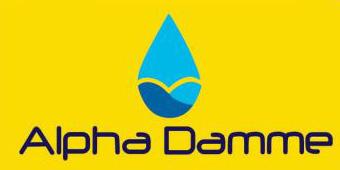
• POTABLE WATER TANKS • AGRICULTURAL TANKS • ZINC DAMS • LININGS FOR CONCRETE AND ZINC DAMS • FIRE FIGHTING WATER STORAGE • PIVOT IRRIGATION • EARTH DAM LINERS OUR CONTACTS CINDY - 072 227 5522 - cindy@alphadamme.co.za RULIE - 084 690 5525 - rulie@alphadamme.co.za www.alphadamme.co.za ZINC DAMS WATER TANKS PLACE ORDER TODAY!!! Now Accredited by:


Your business has something special to offer and our job is to give your customers a way to discover you and your brand online. And still have time for your family
We help you develop your story and your voice and connect with the clients who want to do business with you. We like to talk about your business as much as you enjoy sharing it with others. That means we treat your business like it’s our own. We get down to the nitty gritty and find out as much as we can in an initial free consultation with you where you let us in on the journey you’ve taken up to this point and the goals you have, moving forward. We’ll be actively by your side all the way because your success is our success. Chat with us on WhatsApp Visit our website
Let’s chat about your business!
Ultimately, the digital economy is at the heart of the technologyenabled protection and implementation of human rights

84 AFRICAN Business Quarterly • Issue 12 DIGITAL ECONOMY

Greater investments are needed to unlock the power of the digital economy
INNOVATORS
WAITING Issue 12 • AFRICAN Business Quarterly 85 DIGITAL ECONOMY
THE
ARE
South Africa’s trouble is not a lack of innovation. It is investment and support for entrepreneurs and small businesses that is the major stumbling block preventing the country from harnessing the transformative power of the digital economy.

The digital economy refers to connected services and devices that unlock new efficiencies and enable greater access to services for individuals and communities, including Internet of Things (IoT) technology, data and data analysis, artificial intelligence (AI), and machine learning.
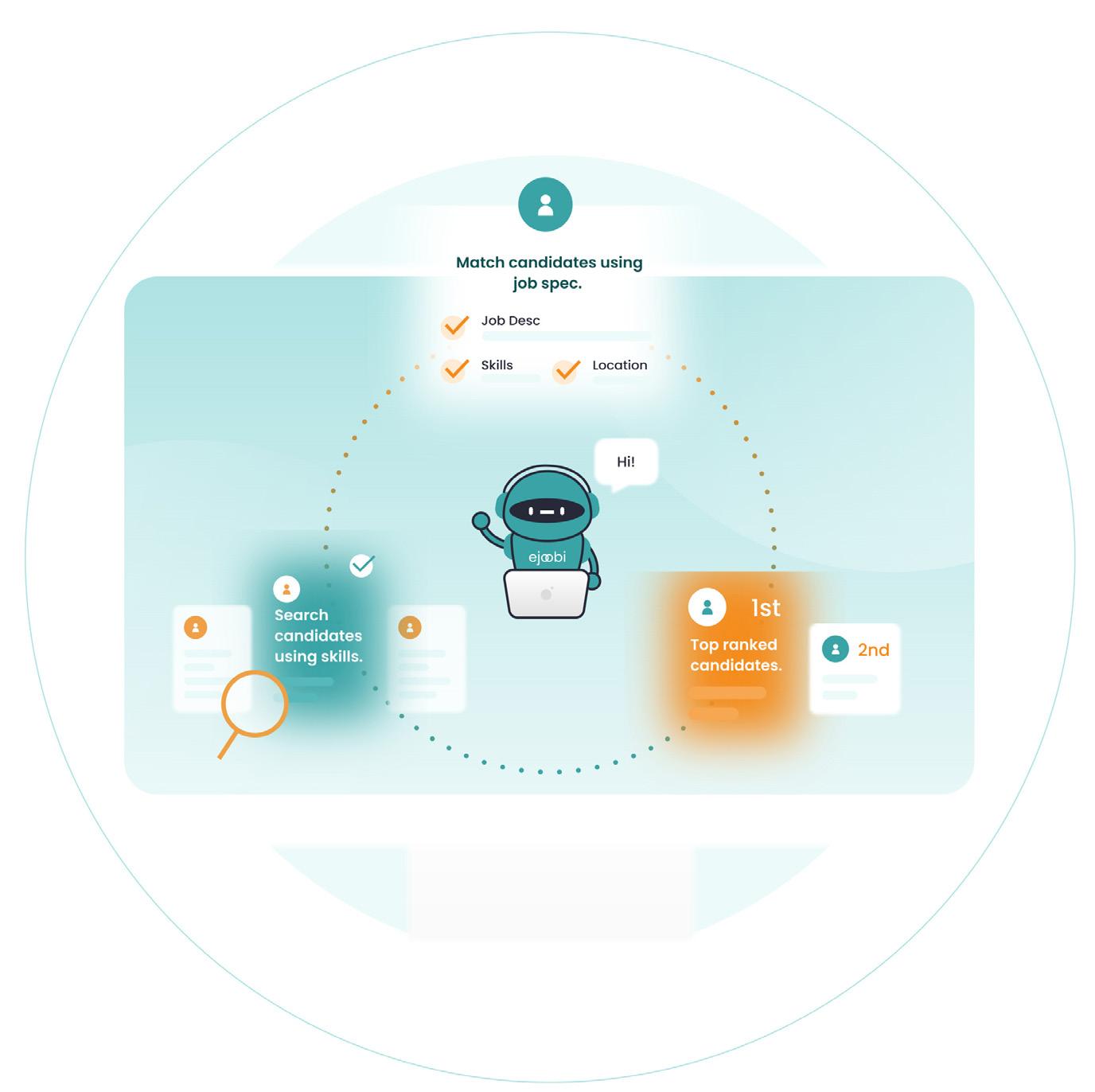

While these technologies may be considered part of the Fourth Industrial Revolution, the truth is that they are inextricably linked to a continuous digital revolution that began taking place before the term was coined, and which will continue well into the future.
Far from a ‘nice to have’, innovators and startups within the digital economy space are already solving the country’s most pressing economic and developmental challenges: from basic needs such as water, sanitation and energy, to mitigating unemployment and enhancing local industry competitiveness.
As a case in point, The Innovation Hub’s Digital Economy unit recently ran an energy management pilot project in collaboration with a female-owned startup, Concepts4.0, at three foundries in Gauteng which aimed to demonstrate the power of advanced manufacturing interventions.
Historically, the local foundry industry has been very traditional in its approach—a fact that has seen it becoming increasingly uncompetitive, forcing a rising number of foundries to close. But through implementing sensors and IoT-related technology to monitor, track and manage energy consumption, this project shaved a total of R10 million from these foundries’ annual energy bill, significantly boosting their economic viability and potentially saving jobs.
Another success story has been the eJoobi intelligent recruitment platform (www.ejoobi.com), pictured above, which draws on the power of AI and USSD mobile services to democratise access to employment opportunities and alleviate unemployment. To use the platform, all individuals need to do is upload their CVs onto the platform at an Internet shop, and from then on they can apply to jobs using USSD services—eliminating the need for a smartphone or data.
86 AFRICAN Business Quarterly • Issue 12 DIGITAL ECONOMY
Our Strategy Our Vision
Our Strategy Our Vision
To be the premier Oil and Gas and energy related industry body in South Africa and Sub-Saharan Africa.
To be the premier Oil and Gas and energy related industry body in South Africa and Sub-Saharan Africa.
Our Mission
Our Mission
The South African Oil & Gas Alliance (SAOGA) is dedicated to developing and promoting a world class upstream and midstream oil and gas and related energy value chain, primarily in South Africa and regionally in Sub-Saharan Africa. We exist for our members.
The South African Oil & Gas Alliance (SAOGA) is dedicated to developing and promoting a world class upstream and midstream oil and gas and related energy value chain, primarily in South Africa and regionally in Sub-Saharan Africa. We exist for our members.
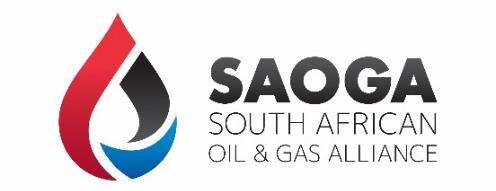
The organisation operates as a partnership between the public and private sectors, receiving public and private sector funding to carry out a range of industry development activities and working to promote the interest of members.
The organisation operates as a partnership between the public and private sectors, receiving public and private sector funding to carry out a range of industry development activities and working to promote the interest of members.
Values
Values
We value the partnerships we have with; Governments, Government entities, Industries, Universities, Private and Public Training Institutions.
We value the partnerships we have with; Governments, Government entities, Industries, Universities, Private and Public Training Institutions.
We value transparency, honesty and integrity. We value the Environment, Health and Safety. We value Human Dignity and Mutual Respect.
We value transparency, honesty and integrity. We value the Environment, Health and Safety. We value Human Dignity and Mutual Respect.
What we do
What we do
Networking and promotion
Networking and promotion
Networking events provide our members valued opportunities to network and promote their products and services locally and on missions to Sub -Saharan African countries and important global oil and gas countries.
Networking events provide our members valued opportunities to network and promote their products and services locally and on missions to Sub -Saharan African countries and important global oil and gas countries.
Our current strategy will see an increase in local, SubSaharan and global networking events and webinars in th e main South Africa cities like; Cape Town, Johannesburg, Durban and Port Elizabeth, and networking into Sub-Saharan African countries like; Mozambique, Angola, Uganda, Nigeria and Ghana. We will also increase reach into the USA, UK and the East by wideni ng and deepening our existing programmes and making it possible for more companies to attend important global oil and gas events and through selected webinars.
Our current strategy will see an increase in local, SubSaharan and global networking events and webinars in th e main South Africa cities like; Cape Town, Johannesburg, Durban and Port Elizabeth, and networking into Sub-Saharan African countries like; Mozambique, Angola, Uganda, Nigeria and Ghana. We will also increase reach into the USA, UK and the East by wideni ng and deepening our existing programmes and making it possible for more companies to attend important global oil and gas events and through selected webinars.
Over and above the companies that are approved by The DTI for funding when we showcase a South African Pavilion at prominent Oil & Gas Conferences & Exhibitions, we will be providing additional companies an opportunity to attend at their own cost. These additional companies will not have a stand at the exhibition, unless they have paid for such a stand independently of the dti funded stand. SAOGA negotiated a special pricing regime for these companies with the se event organisers.
Over and above the companies that are approved by The DTI for funding when we showcase a South African Pavilion at prominent Oil & Gas Conferences & Exhibitions, we will be providing additional companies an opportunity to attend at their own cost. These additional companies will not have a stand at the exhibition, unless they have paid for such a stand independently of the dti funded stand. SAOGA negotiated a special pricing regime for these companies with the se event organisers.
SAOGA plans to increase South African Networking initiatives at relevant South African Pavilions where possible, to create an increased awareness of South African products, services and capabilities.
SAOGA plans to increase South African Networking initiatives at relevant South African Pavilions where possible, to create an increased awareness of South African products, services and capabilities.
Lobbying
Lobbying
SAOGA will continue to lobby Government and Industry in the pursuit of adding value to our members and the sector.
SAOGA will continue to lobby Government and Industry in the pursuit of adding value to our members and the sector.
Capacity Building
Capacity Building
We will continue to lead the charge in supporting the Oil and Gas industry in South Africa through capacity building initiatives like; training initiatives, strategic skills development and enterprise development to improve global competitiveness. We will continue to develop our ever popular MOGA skills portal. Work is commencing to build a supplier database for the purpose of enhancing supply and demand matching for oil and gas projects in Sub-Saharan Africa. Job creation will continue to be in focus. SAOGA will also be launching an Oil and Gas Professional Body shortly.
We will continue to lead the charge in supporting the Oil and Gas industry in South Africa through capacity building initiatives like; training initiatives, strategic skills development and enterprise development to improve global competitiveness. We will continue to develop our ever popular MOGA skills portal. Work is commencing to build a supplier database for the purpose of enhancing supply and demand matching for oil and gas projects in Sub-Saharan Africa. Job creation will continue to be in focus. SAOGA will also be launching an Oil and Gas Professional Body shortly.
Our Leadership
Our Leadership
SAOGA is overseen by an independent volunteer Board of Directors representing industry and key stakeholder entities, with Mthozami Xiphu as chair.
SAOGA is overseen by an independent volunteer Board of Directors representing industry and key stakeholder entities, with Mthozami Xiphu as chair.
Adrian Strydom, Chief Executive Officer and Alain Kerr, Business Development and Marketing Executive are responsible for the executive management of SAOGA.
Adrian Strydom, Chief Executive Officer and Alain Kerr, Business Development and Marketing Executive are responsible for the executive management of SAOGA.
Pasts Events:
Pasts Events:
# SAOGA’s In Person Networking Breakfast: The Role of Sasol in the Just Energy Transition - 28 April 2022
# SAOGA’s In Person Networking Breakfast: The Role of Sasol in the Just Energy Transition - 28 April 2022
SAOGA Breakfast Webinar: Draft Upstream Petroleum Resources Development Bill Update - 21 July 2022
SAOGA Breakfast Webinar: Draft Upstream Petroleum Resources Development Bill Update - 21 July 2022
# South African Oil and Gas Alliance and Africa House : Group Visit to Namibia - 25 to 27 July 2022
# South African Oil and Gas Alliance and Africa House : Group Visit to Namibia - 25 to 27 July 2022
# 2nd Annual Southern Africa Oil and Gas Conference & Expo 2022 #SAOGC2022 – 15 & 16 September (This event was hosted by Department of Mineral Resources and Energy SA, Petroleum Agency S.A. and South African Oil & Gas Alliance.)
# 2nd Annual Southern Africa Oil and Gas Conference & Expo 2022 #SAOGC2022 – 15 & 16 September (This event was hosted by Department of Mineral Resources and Energy SA, Petroleum Agency S.A. and South African Oil & Gas Alliance.)
SAOGA Active Working Groups:
SAOGA Active Working Groups:
# Port Cluster Leadership Team – (PCLT)
# Port Cluster Leadership Team – (PCLT)
# SAOGA Gas Economy Leadership Team
# SAOGA Gas Economy Leadership Team
# SAOGA Energy Modelling Task Team.
# SAOGA Energy Modelling Task Team.
# Marine Oil and Gas Academy – (MOGA)
# Marine Oil and Gas Academy – (MOGA)
If you would like to participate in any of the above working groups please contact Alain Kerr on akerr@saoga.org.za or the below landline number.
If you would like to participate in any of the above working groups please contact Alain Kerr on akerr@saoga.org.za or the below landline number.
For more information on the South African Oil & Gas Sector , please contact SAOGA on
or consult our website www.saoga.org.za
021 425 8840
For more information on the South African Oil & Gas Sector , please contact SAOGA on 021 425 8840 or consult our website www.saoga.org.za
The Digital Economy unit alone boasts 120 such startups within the Innovation Hub’s portfolio, each with the potential to leapfrog developmental hurdles and deliver outsized returns for government and private company investors. What is missing in order to unleash the full might of the innovation ecosystem are persistent complaints such as seed funding, access to market opportunities, advisory support, and mentorship.
Notably, turning innovations into sustainable, commercially viable enterprises that contribute to the economy and create jobs means that ideas must be driven by demand to secure uptake of services or products. This in turn requires matching solution seekers with solution providers, and giving providers the seed funding and technical support needed to develop prototypes to demonstrate value.
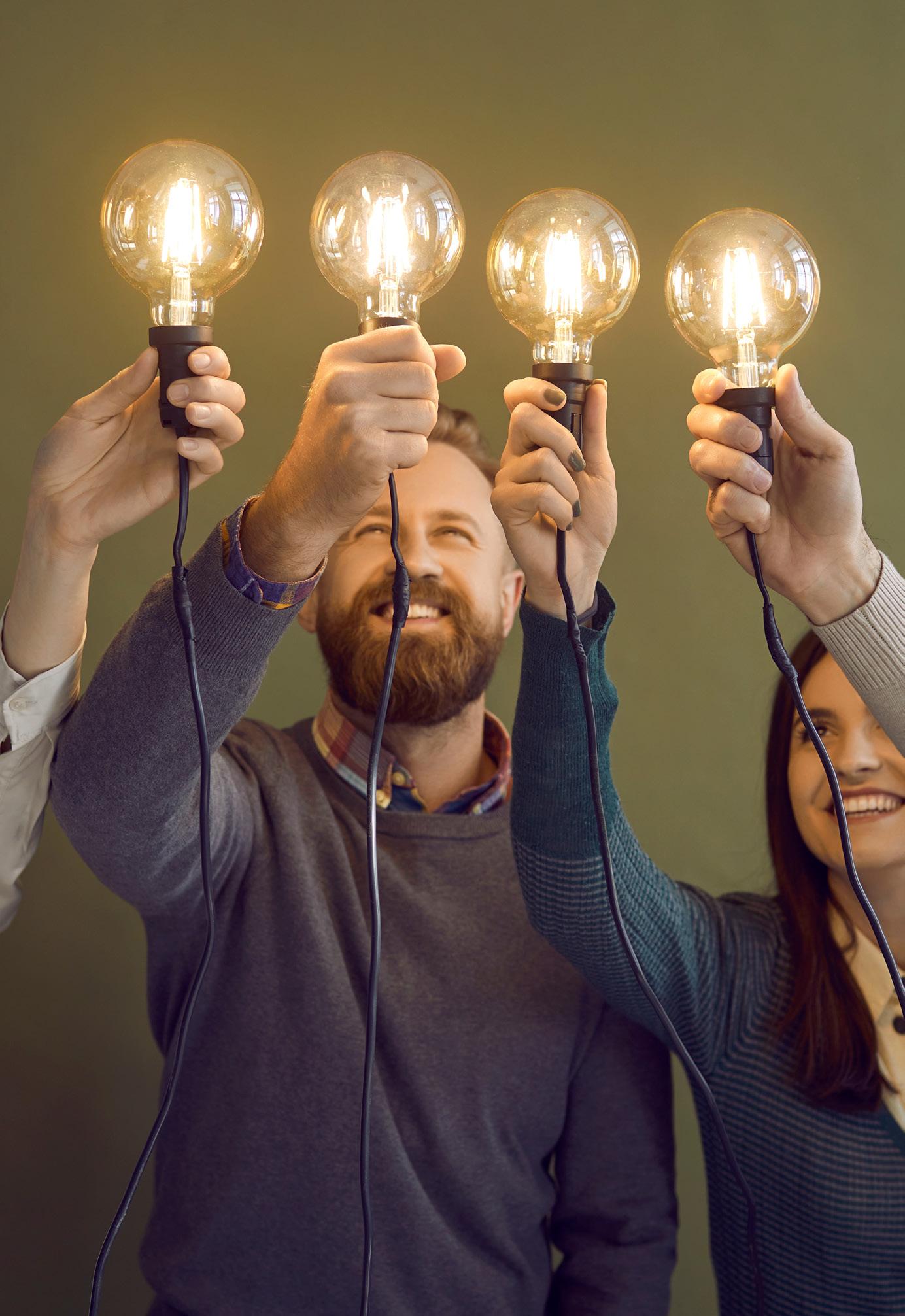
To address this challenge, the Digital Economy unit currently runs an open innovation solution exchange programme known as OpenIX (www.openix.co.za), which acts as a Cupid-like initiative: matching startups and small, medium and micro enterprises with organisations in the public and private sector. After receiving a brief from the client, potential service providers are invited to submit their proposals for evaluation, which are then short-listed and finally selected for funding for pilot projects.
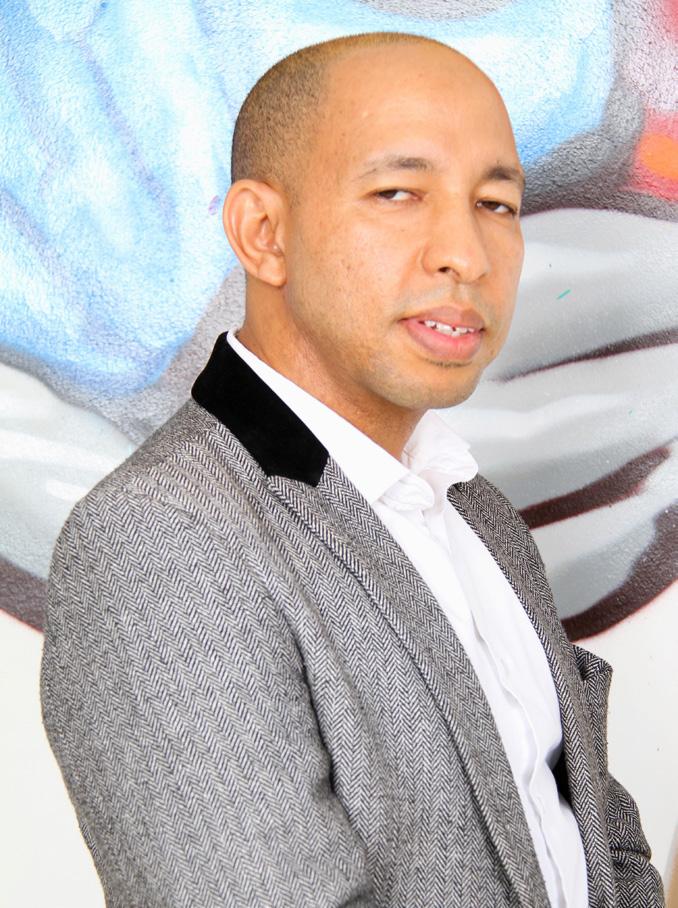
This programme is already making significant strides. One such startup is currently assisting the Public Protector South Africa to develop and implement a complaints management system to enhance service delivery and provide better support for citizens. Another helped develop a solution for recycling sanitation water at rural schools, which significantly reduced their water bill and ensured a continuous cycle of water was available for sanitation purposes.
This said, much more needs to be done.
The Innovation Hub is already developing a Smart Industry Centre to provide strategic infrastructure and comprehensive technical support for innovators within the digital economy. This will feature a product development laboratory, startup facilities, hotdesking, additive manufacturing or 3D-printing resources, and low-volume manufacturing facilities for developing test products to position startups for off-take agreements or greater investments from the government and other private investors.
But private sector clients now need to come on board by bringing their business to small businesses and startups, creating new market opportunities. Likewise, the government should
aim to roll out these types of centres across the country to provide the support needed to ensure our global competitiveness, and finally address the social evils of unemployment, poverty and inequality.
Ultimately, the digital economy is at the heart of the technology-enabled protection and implementation of human rights including the right to basic services, education and employment opportunities. Innovators are waiting to answer South Africa’s most urgent questions—we simply need to ask.
Dr Andrew de Vries General Manager: Digital Economy The Innovation Hub
Private sector clients now need to come on board by bringing their business to small businesses and startups, creating new market opportunities.
88 AFRICAN Business Quarterly • Issue 12 DIGITAL ECONOMY
Dr Andrew de Vries

special economic zone

The Atlantis Special Economic Zone Company
(ASEZCo) is driving sustainable development and job creation in the area by harnessing the opportunities in a growing green economy.
The ASEZCo, with its greentech theme, is a unique SEZ that speaks to the needs of investors in greentech. It is a key element in the Western Cape government’s Economic Recovery Plan and the scheduling of the company as a provincial business enterprise bodes very well for its role as a game changer in the renewable energy and green technology sectors of the Western Cape’s economy. With the ASEZCo forming part of a mature and effective investment ecosystem in the Western Cape, your investment is sure to land in a credible administration in an efficient and cost-effective manner. Atlantis presents itself as the ideal location from which to compete in Africa’s green technology markets by offering green infrastructure, a strong support base from government, as well as fruitful business relationships for investors, as you work closely with the locals and help uplift the community. This mutually beneficial relationship is a good foundation for sustainable productivity and success. The ASEZCo has an “out-of-the-box” approach to tailoring an investment package suited to investor needs. With resilience in mind, your purpose-built facility is sure to stand the test of time and contribute significantly to the reduction of carbon emissions, water use and waste minimization.
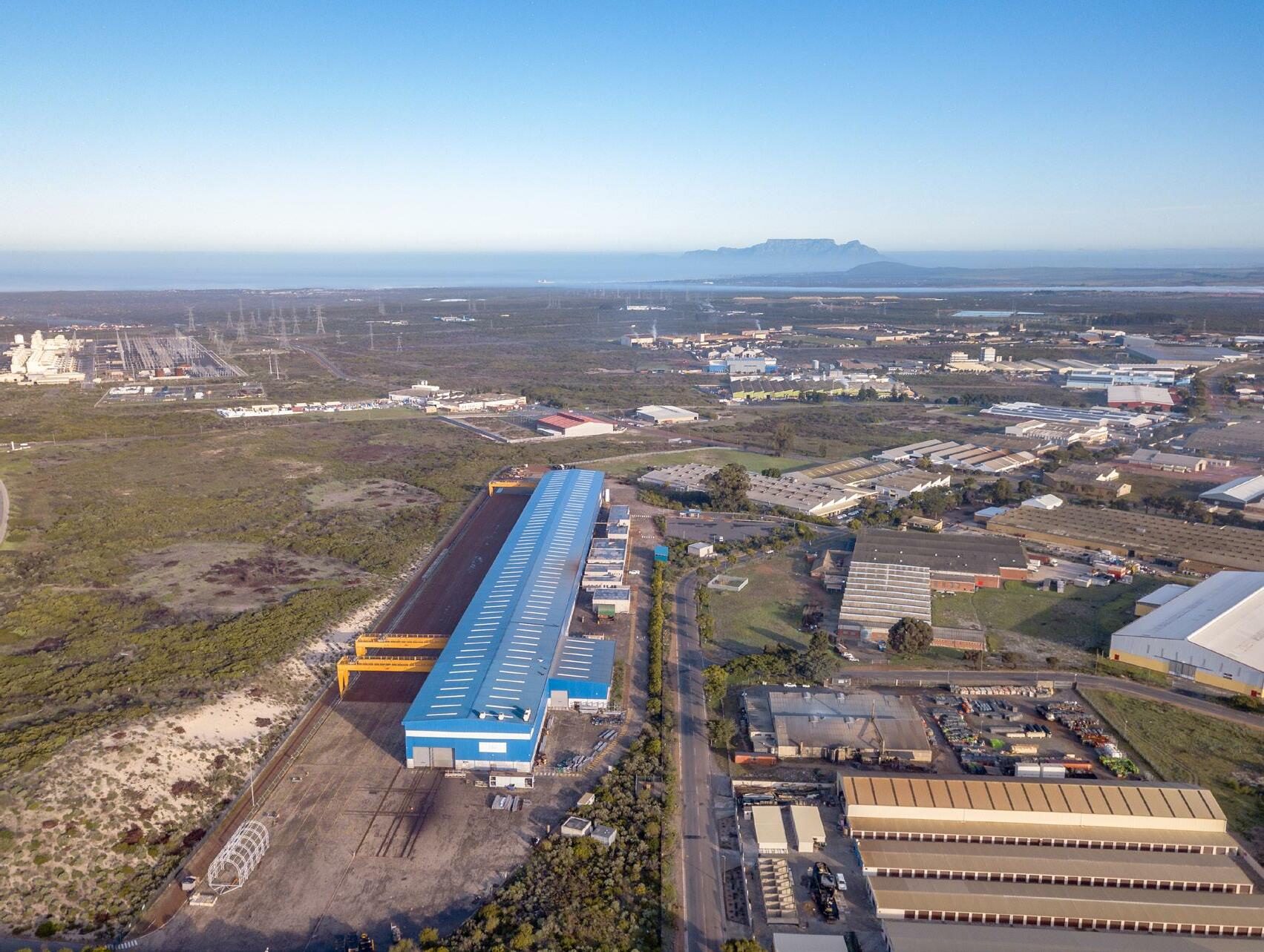
For more information on what we are doing as an organisation to assist a greener economy visit our website at www.atlantissez.com or send us an email to info@atlantissez.co.za

































































 Certified Partner of
Certified Partner of






























































































































































































